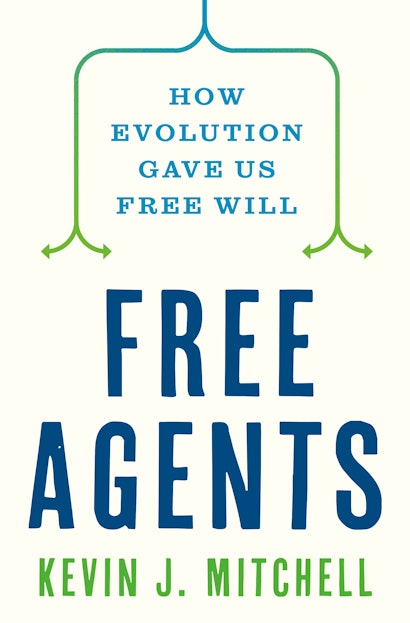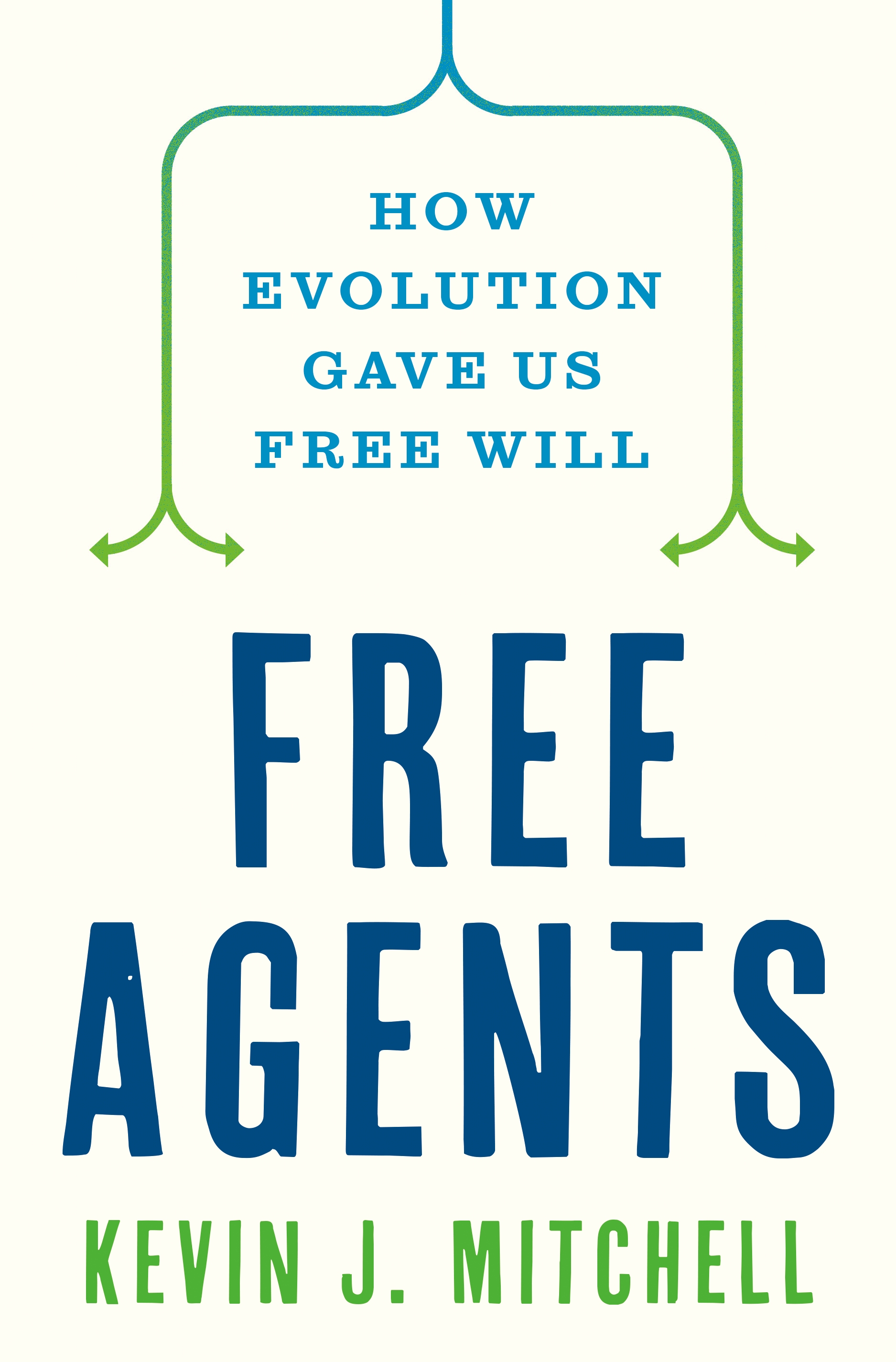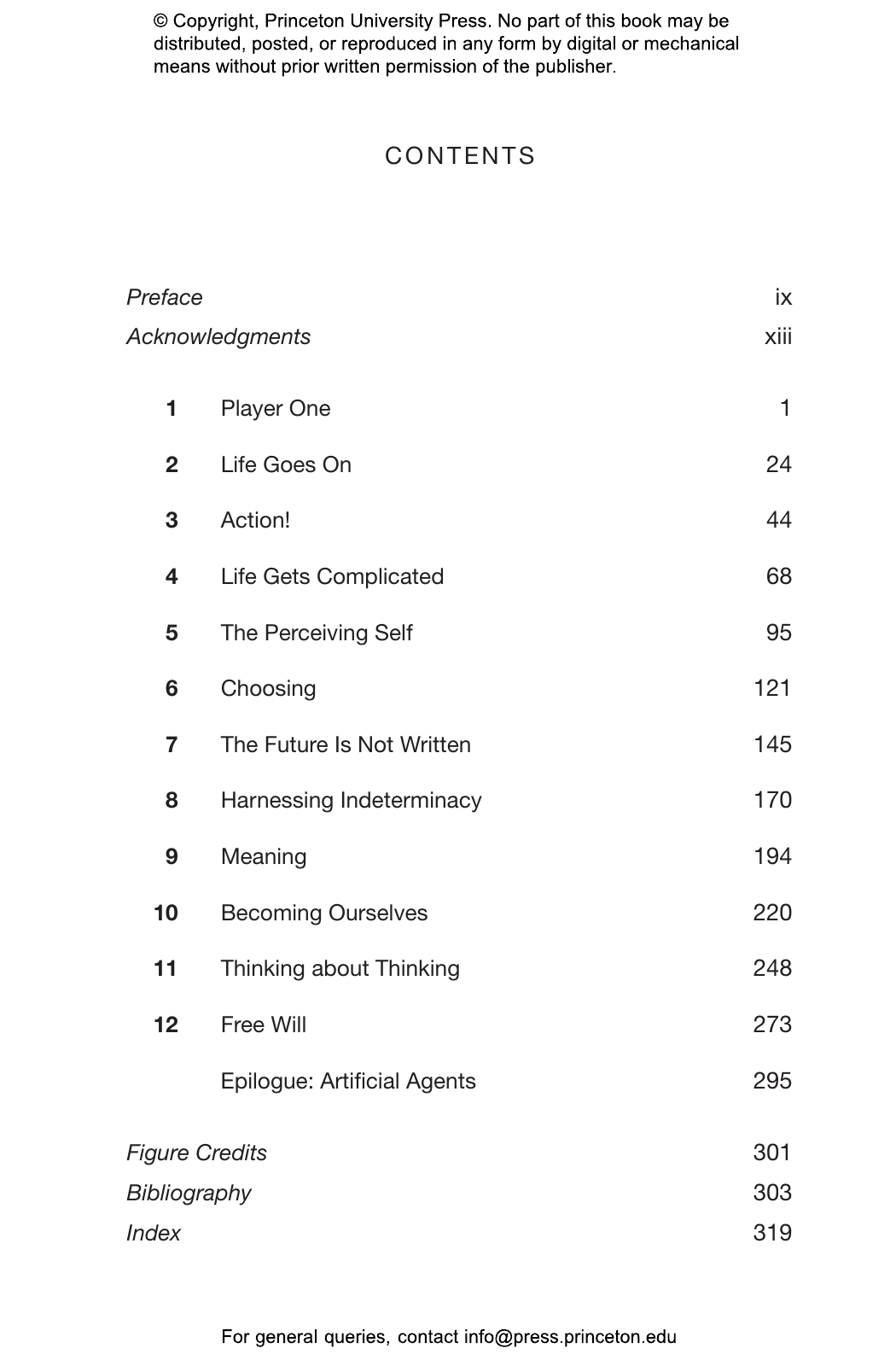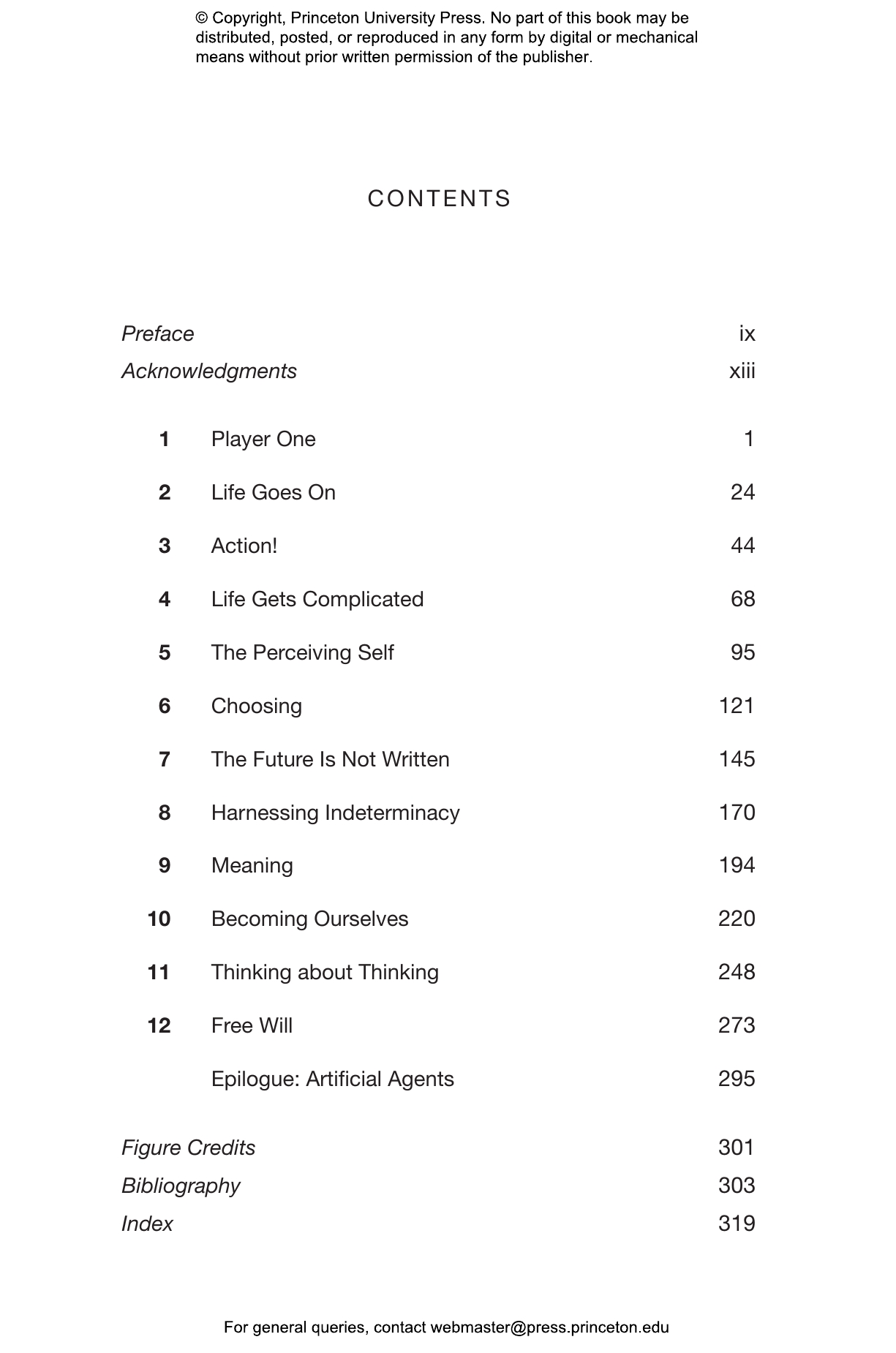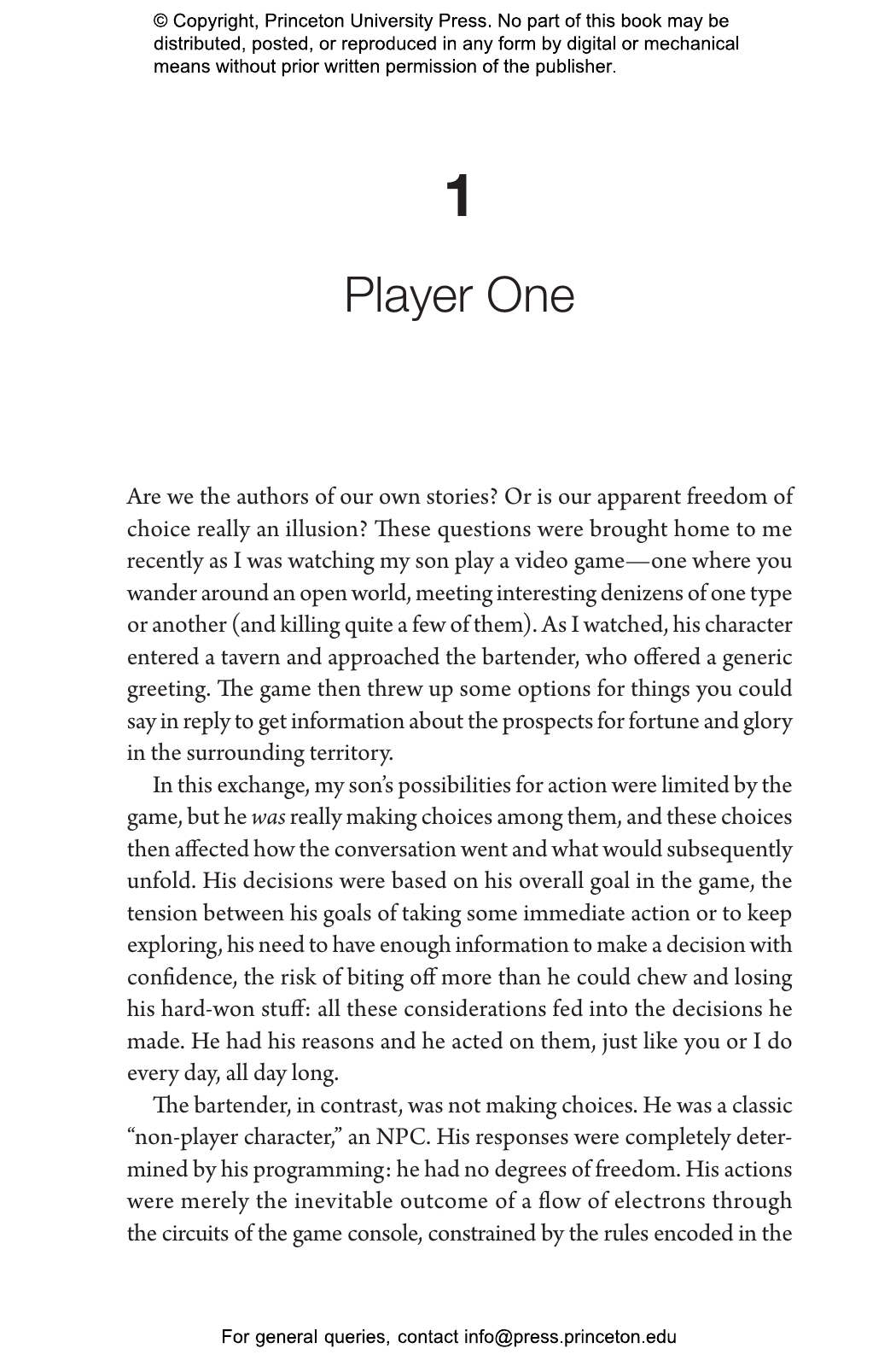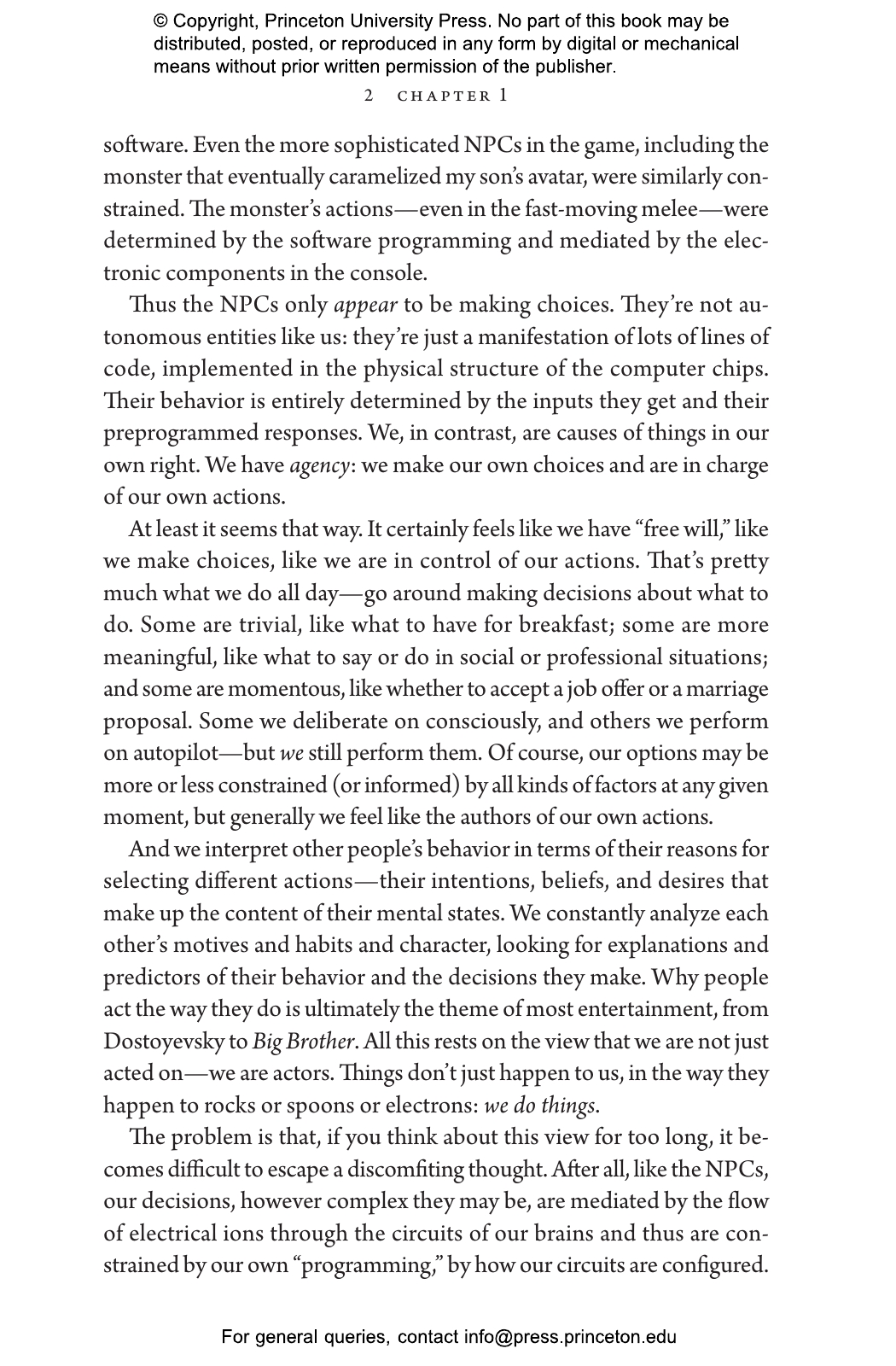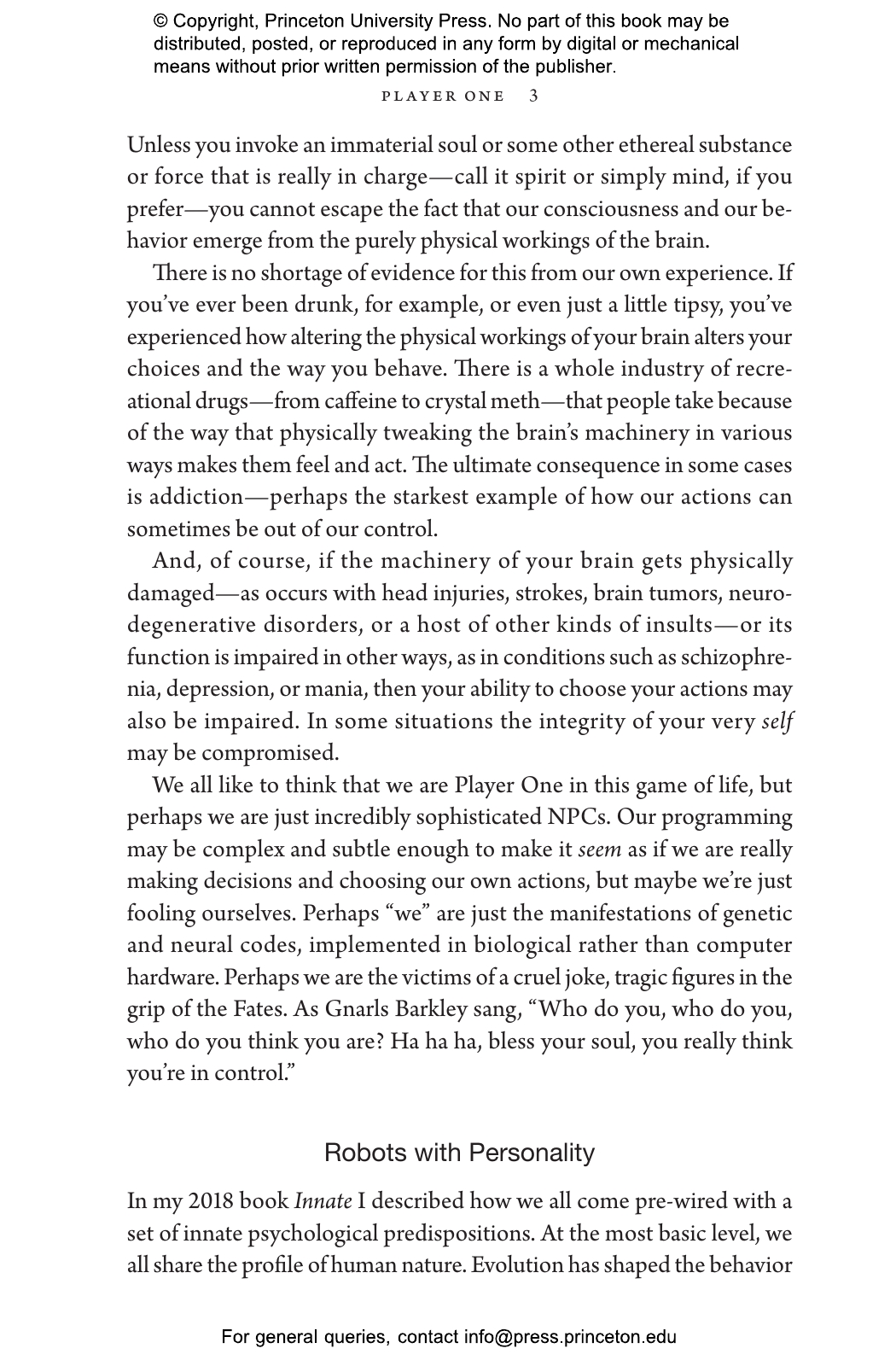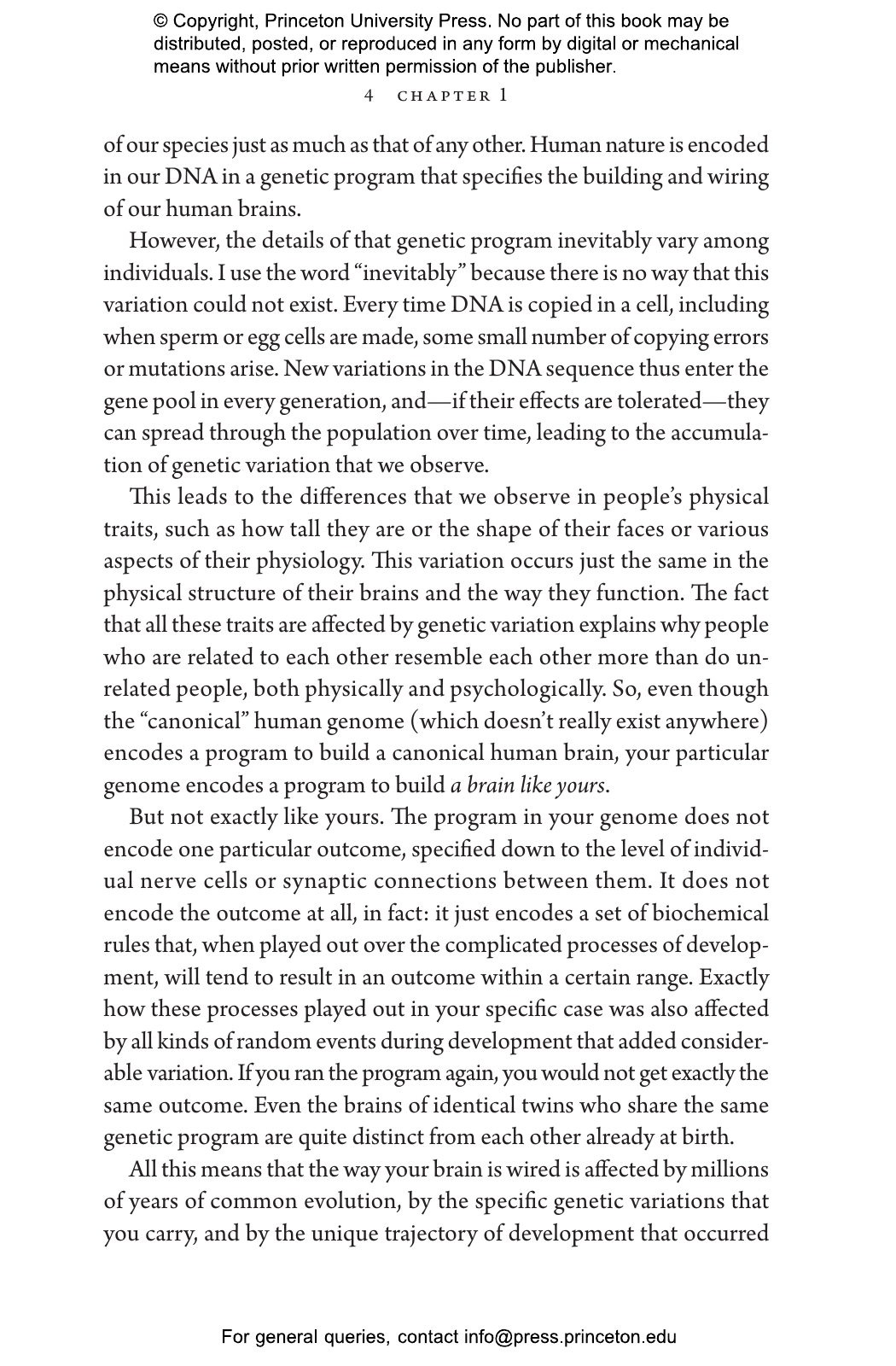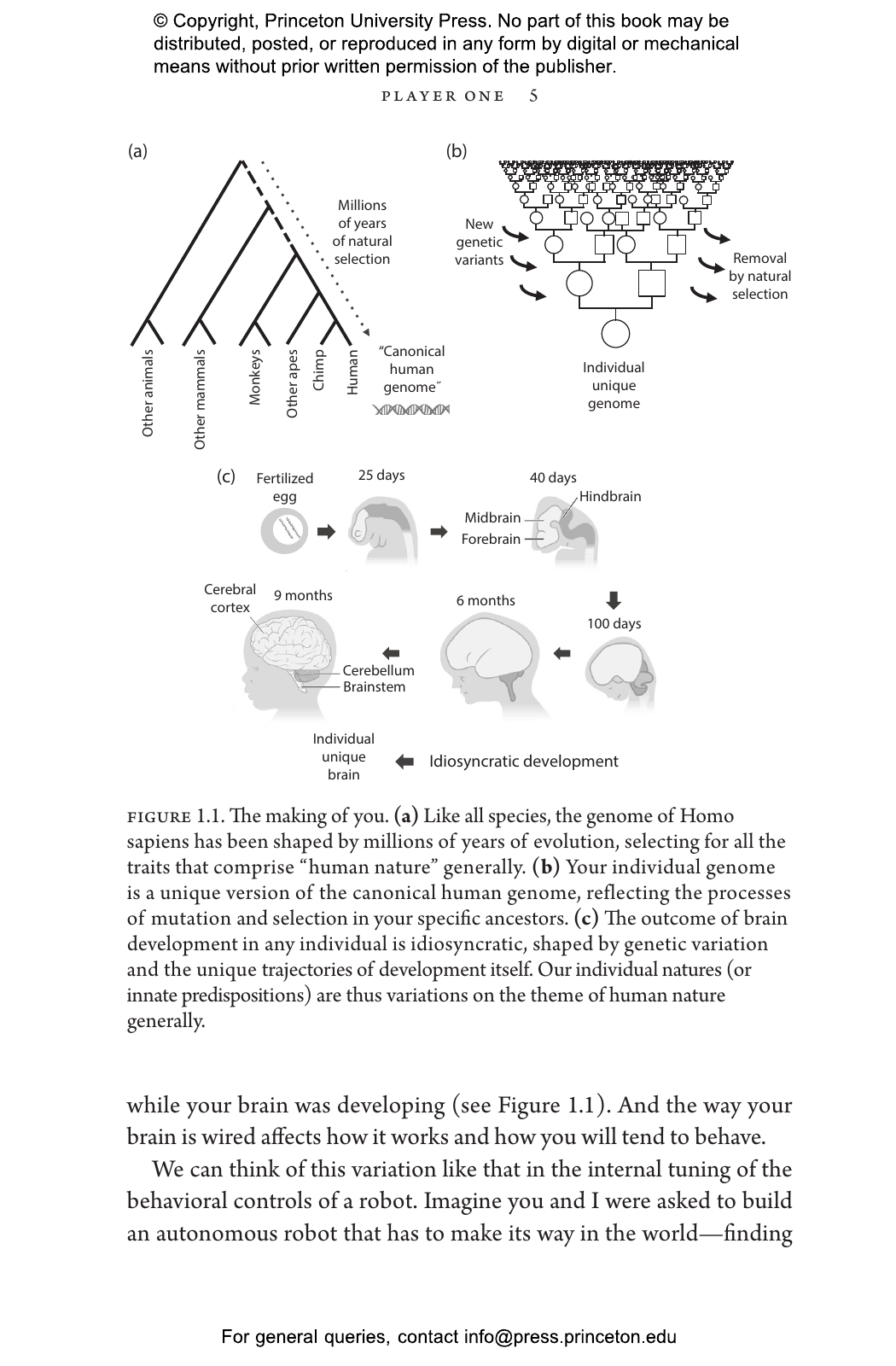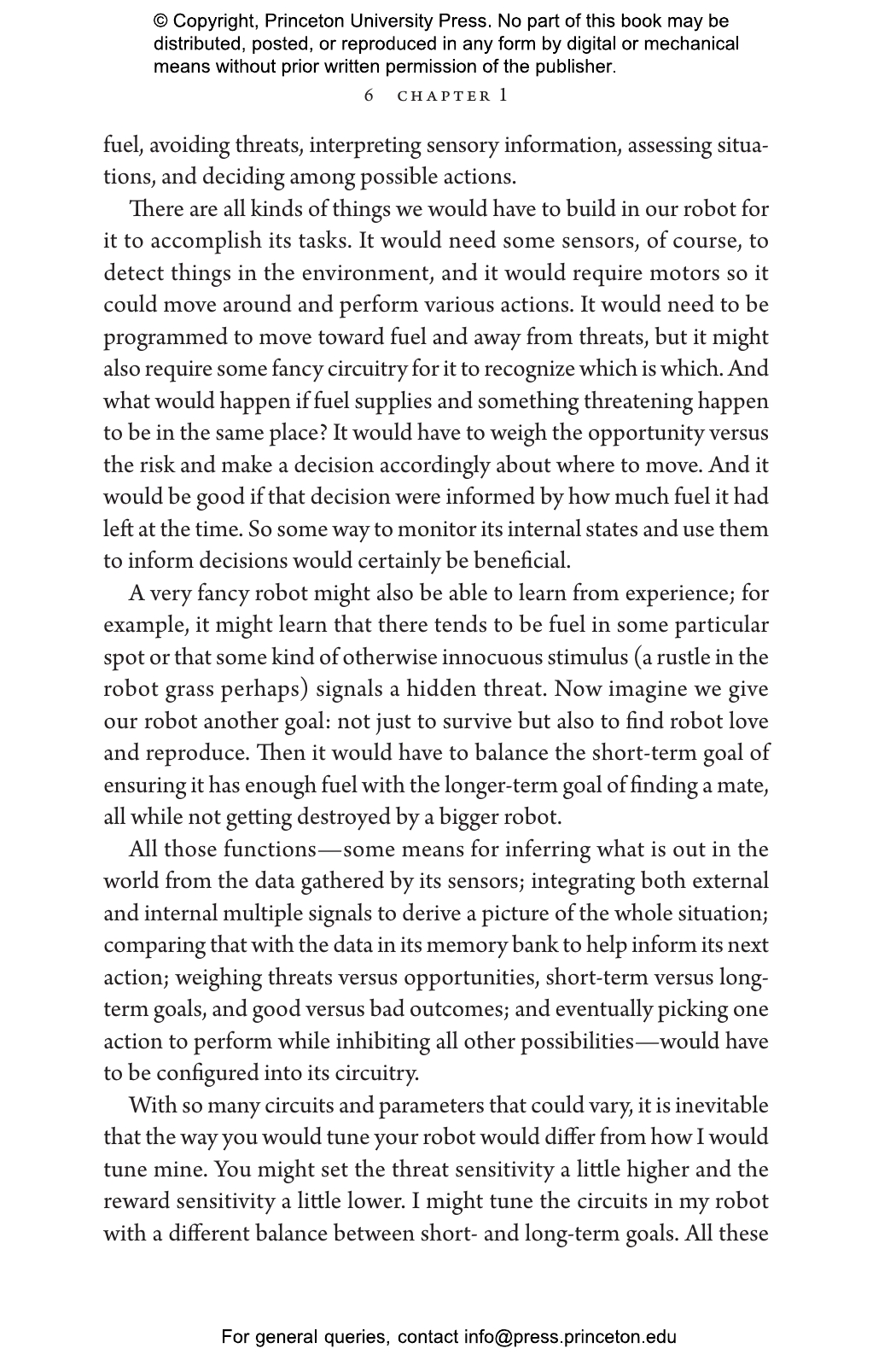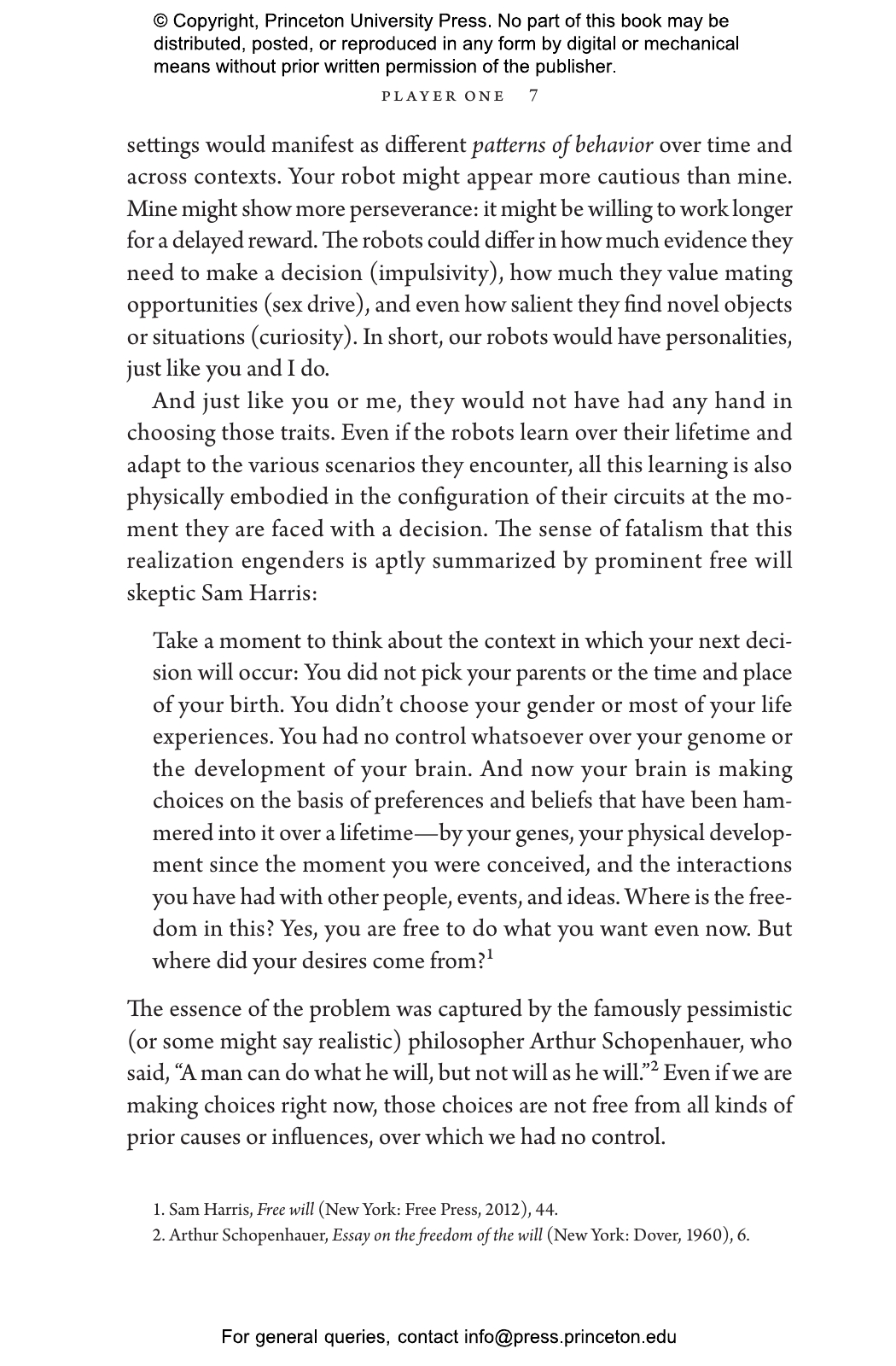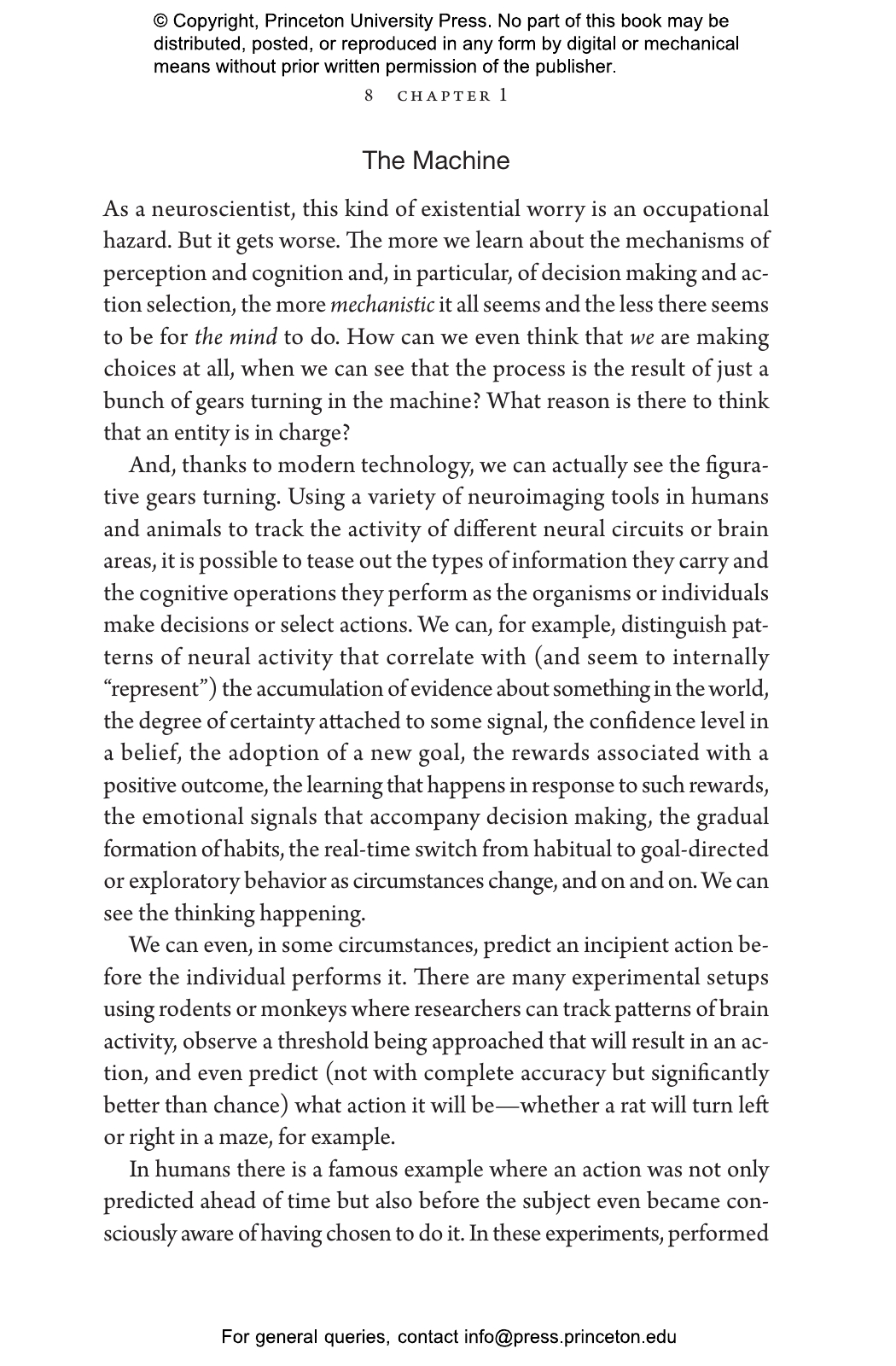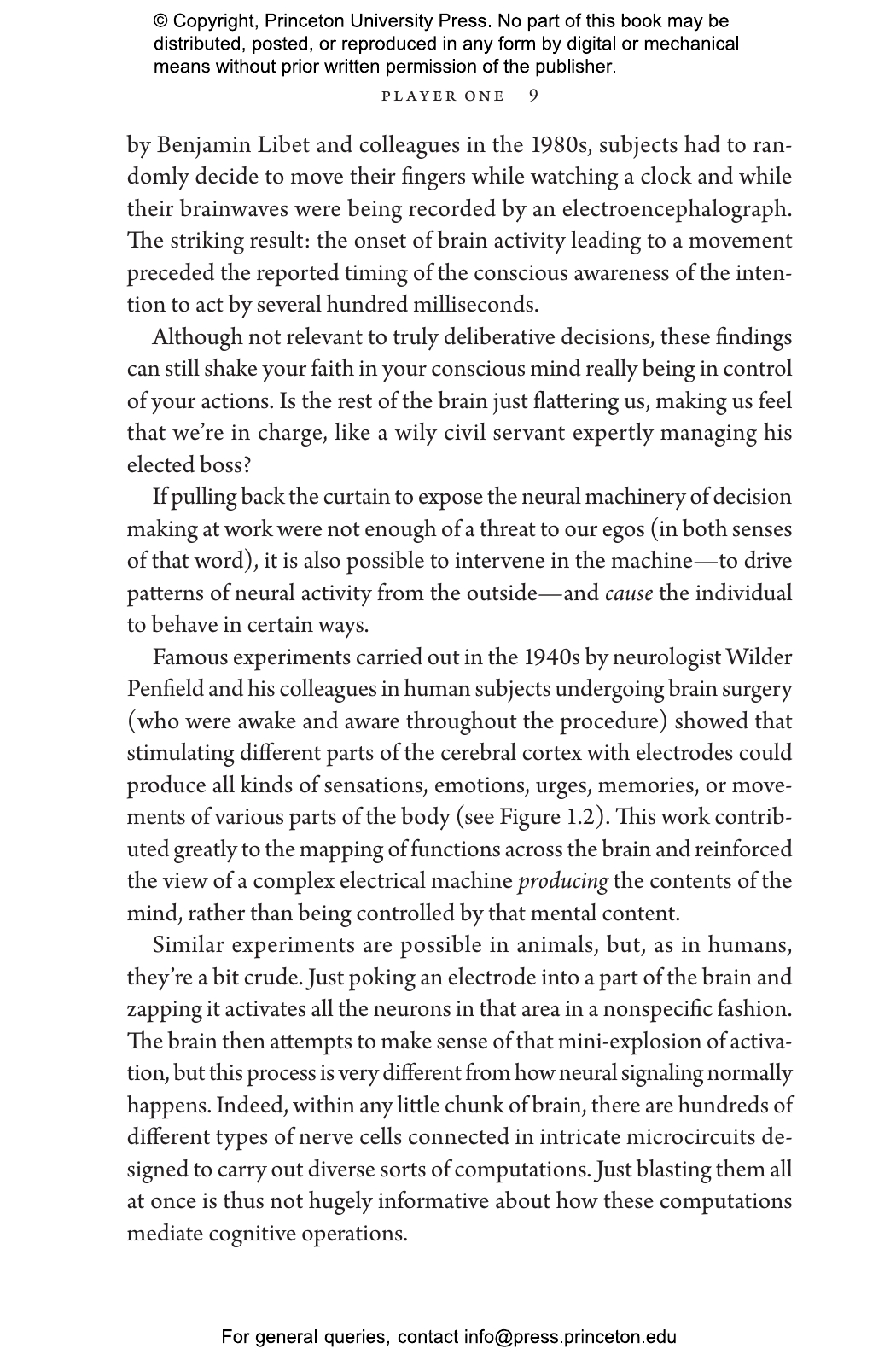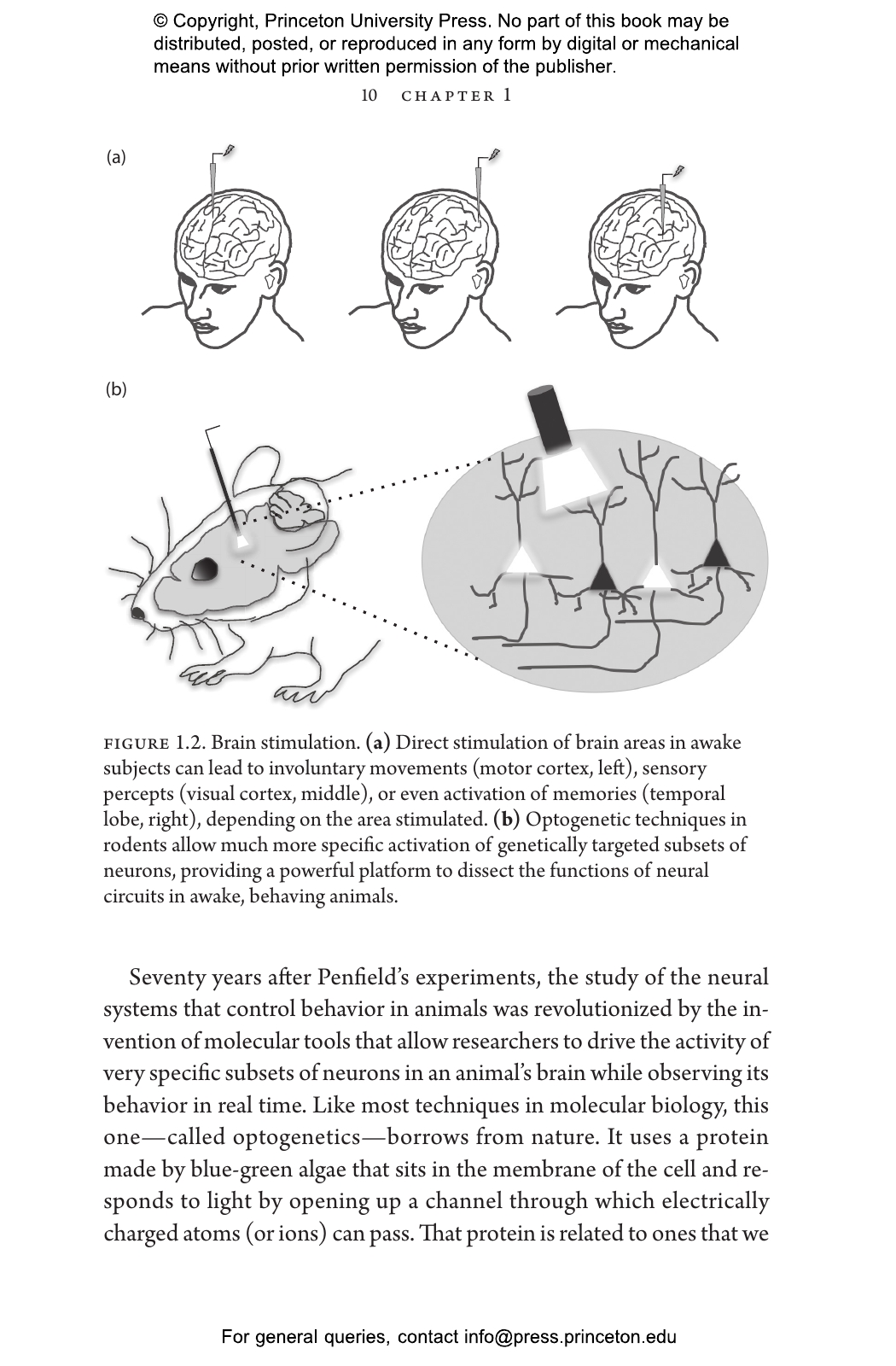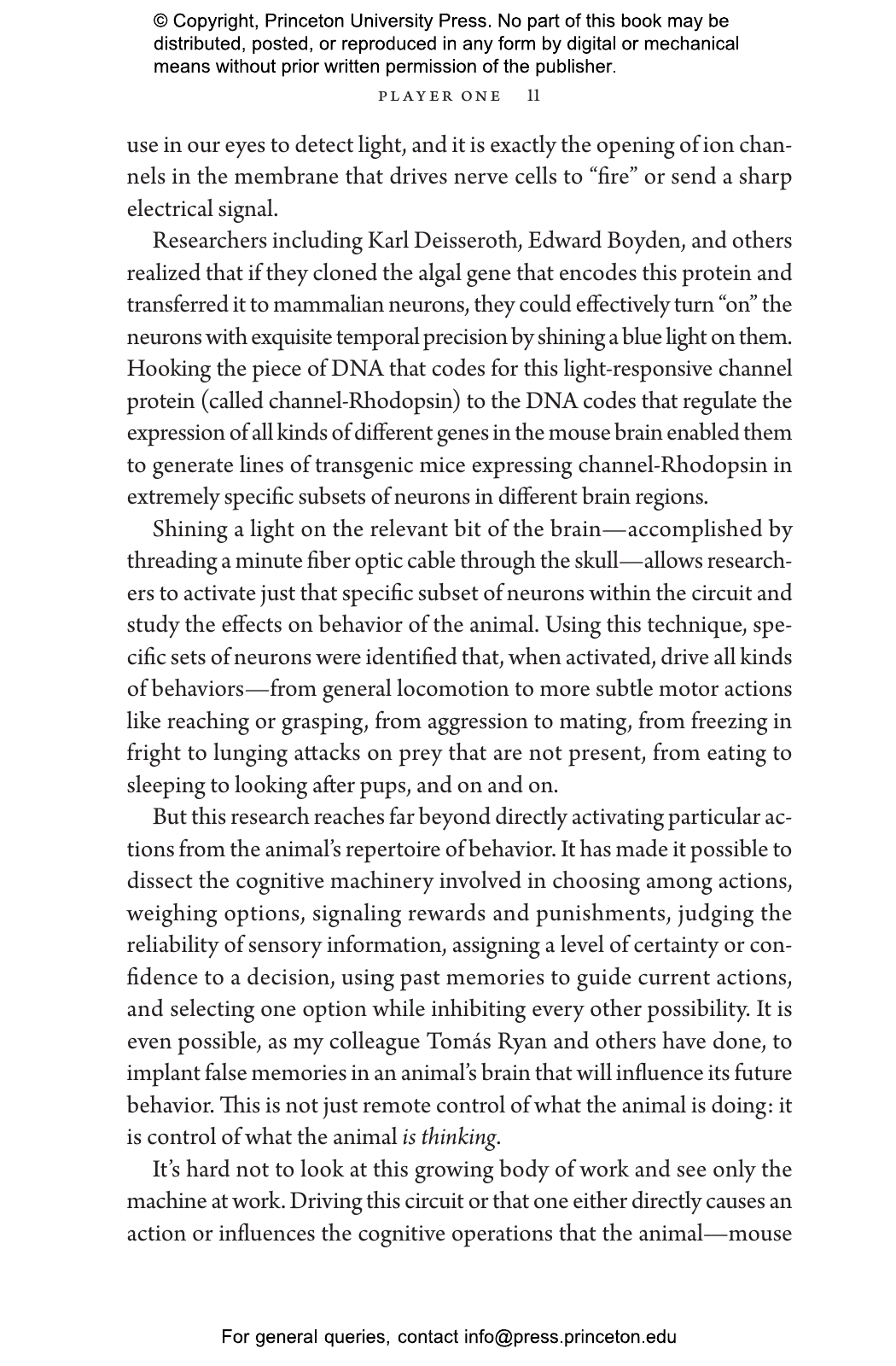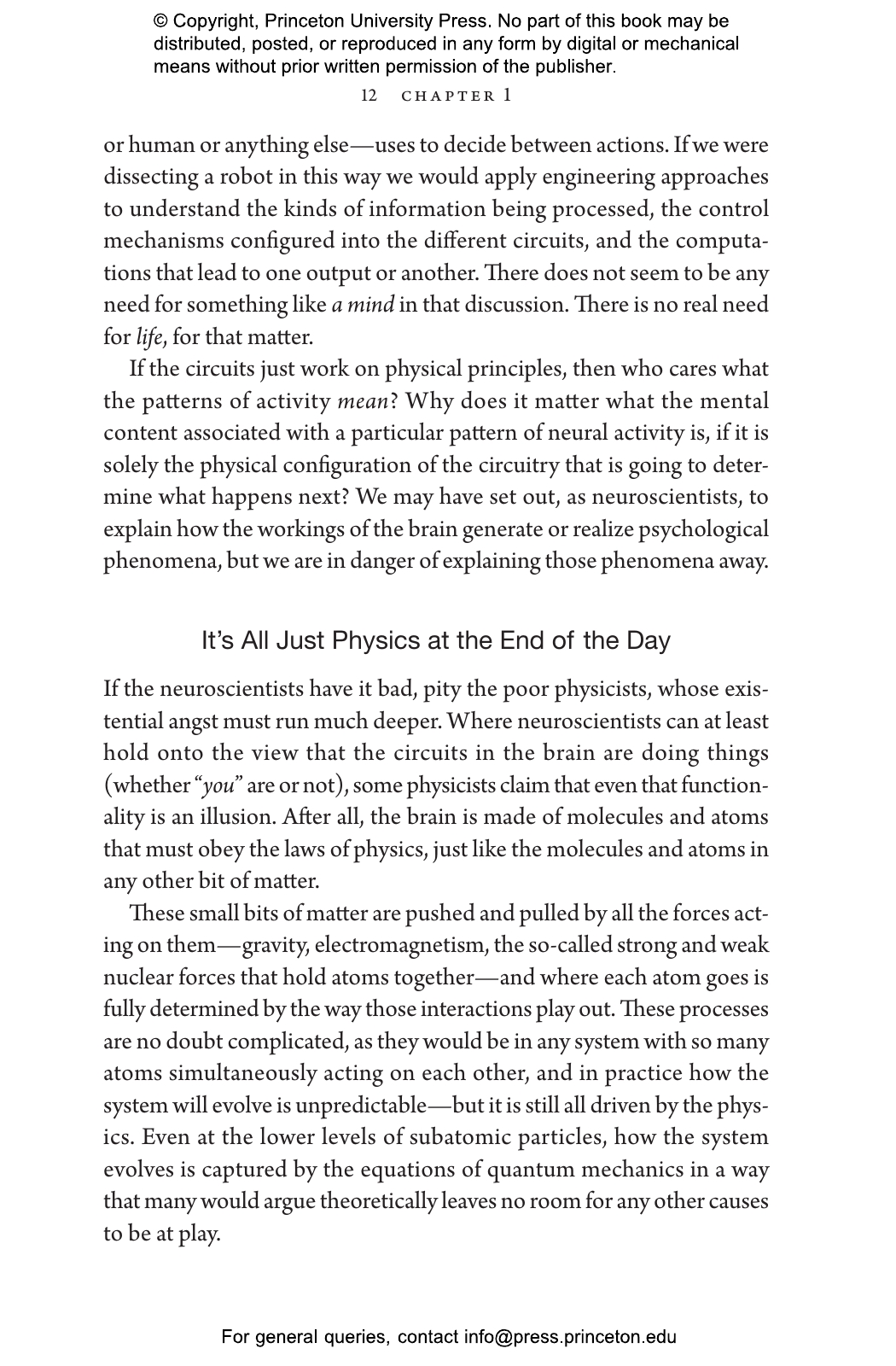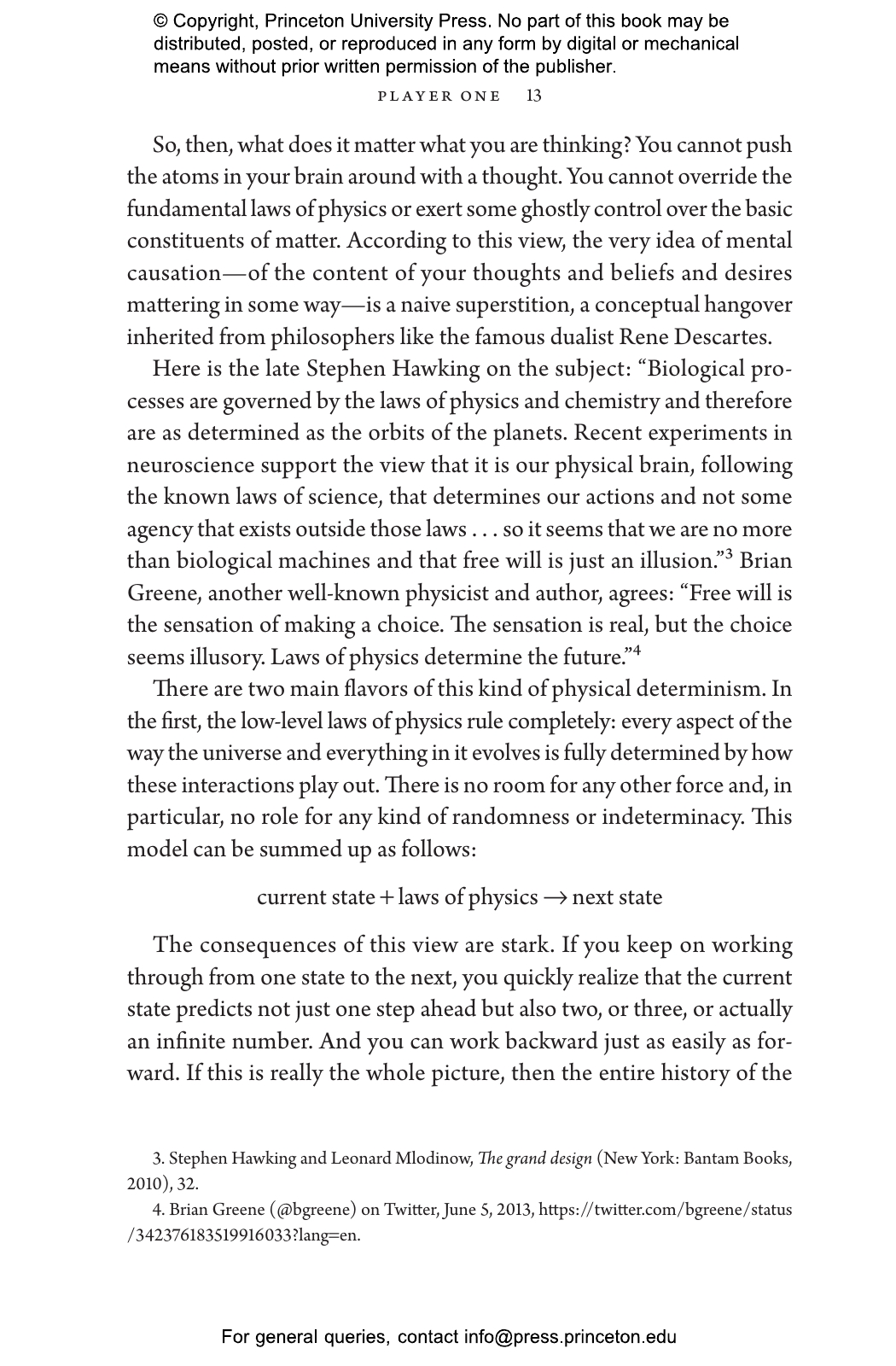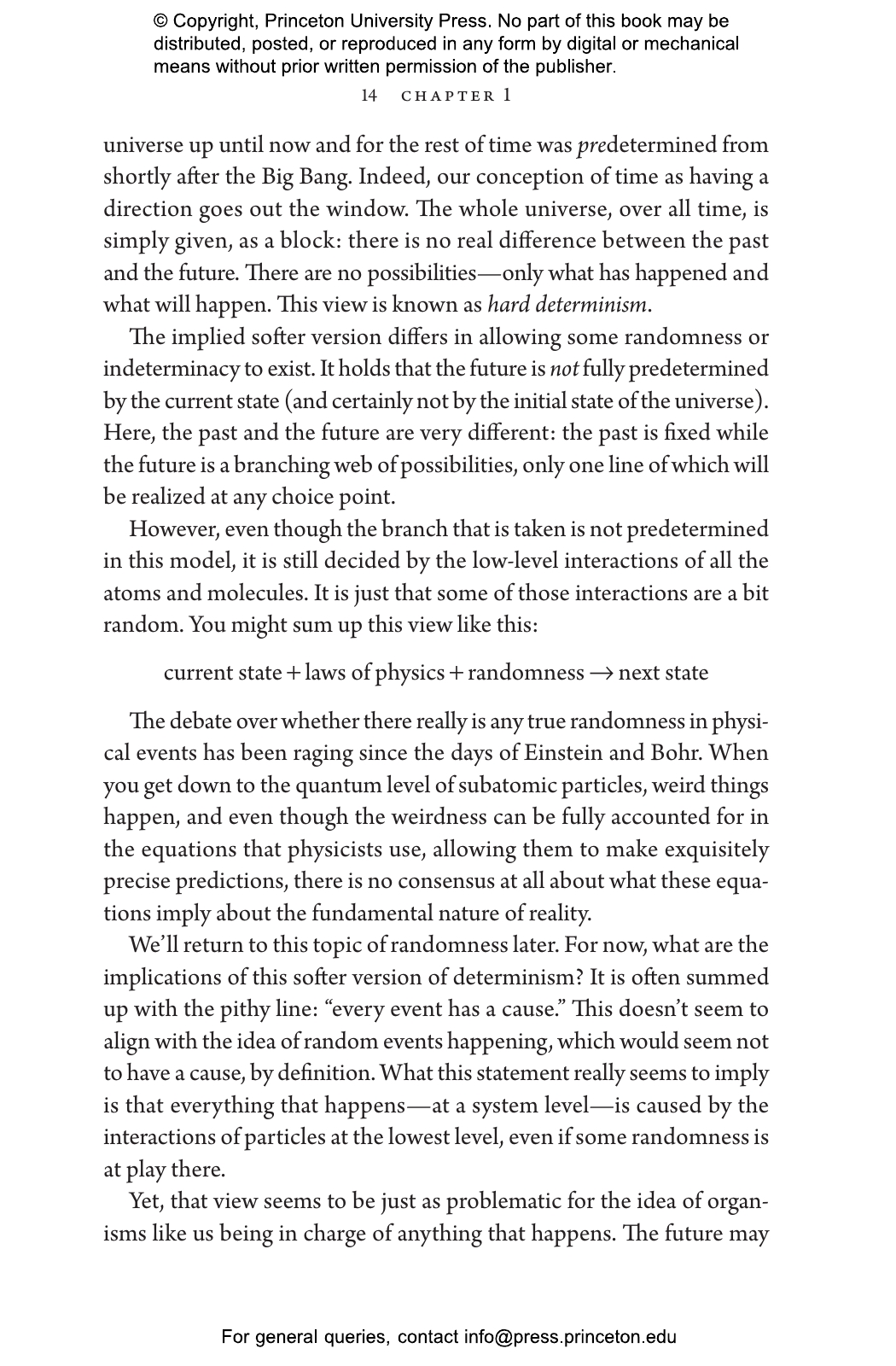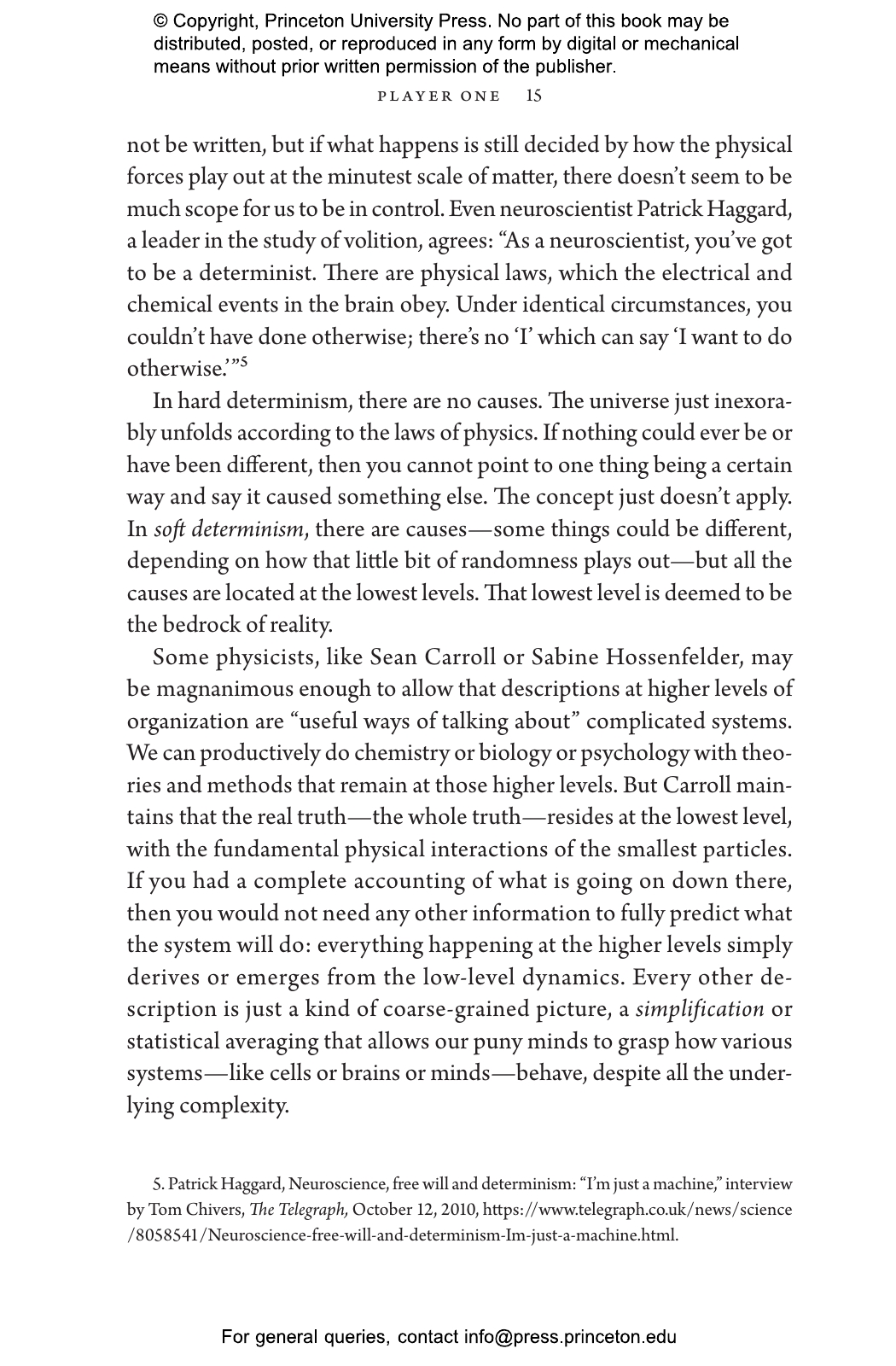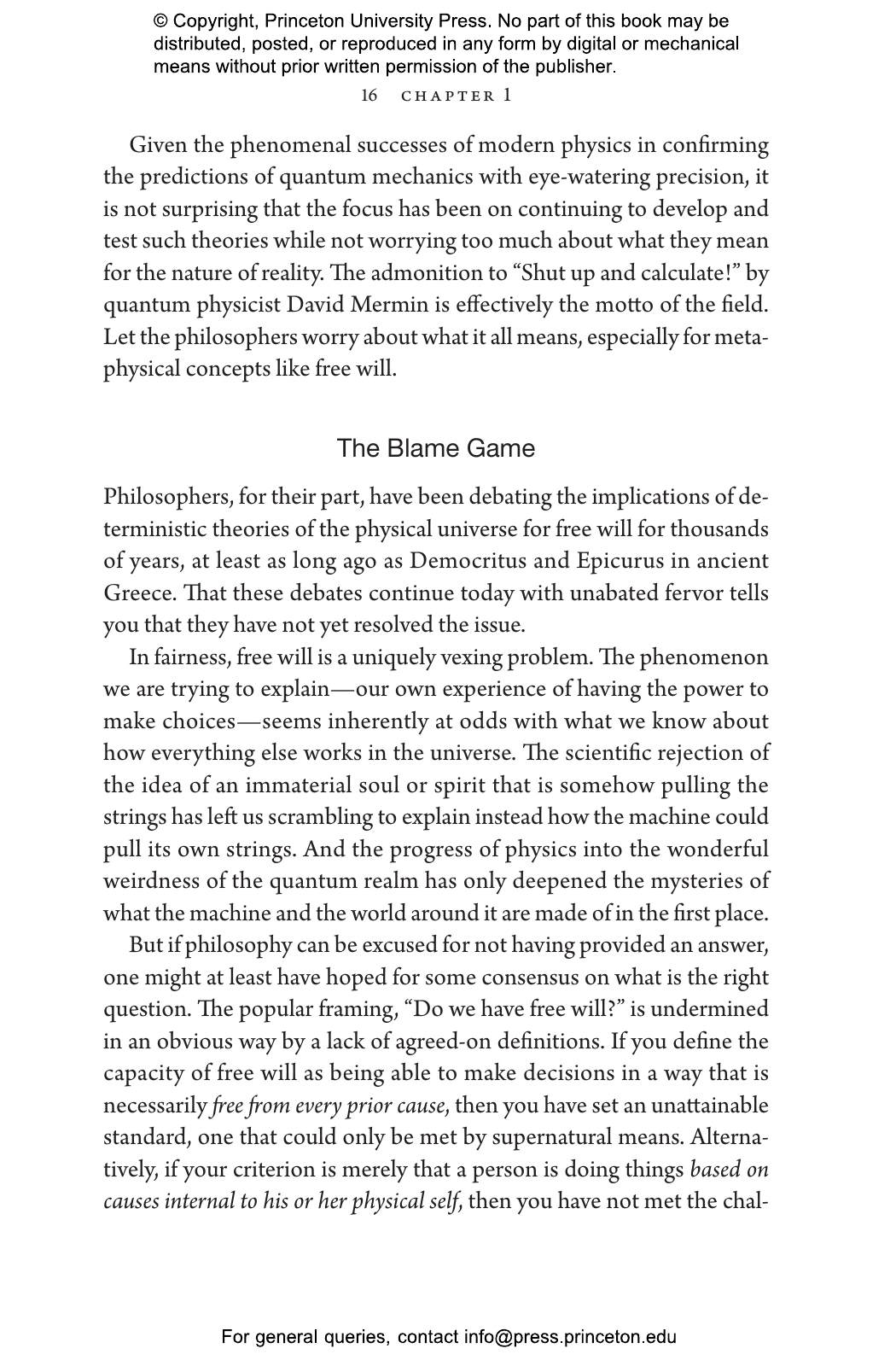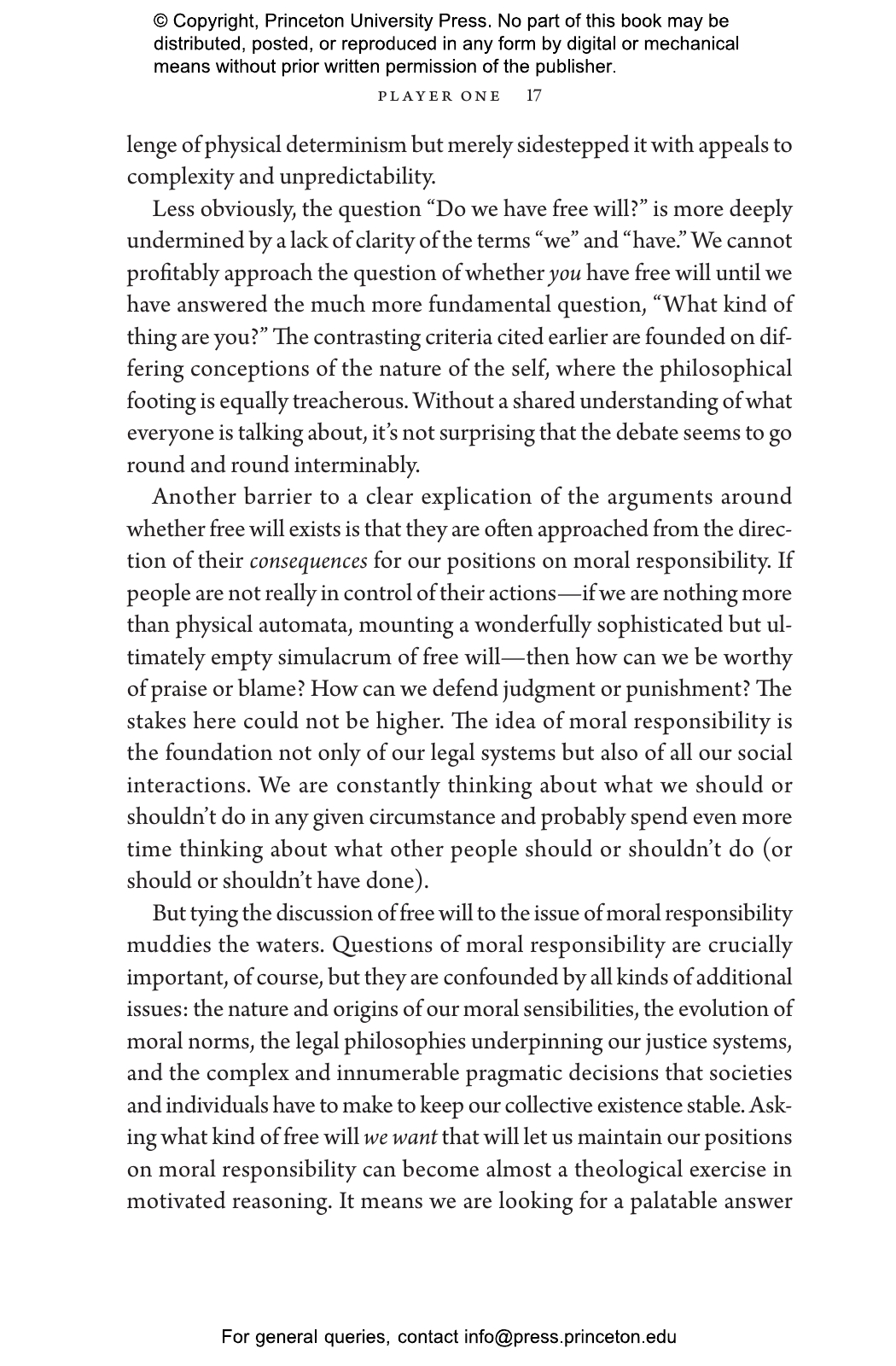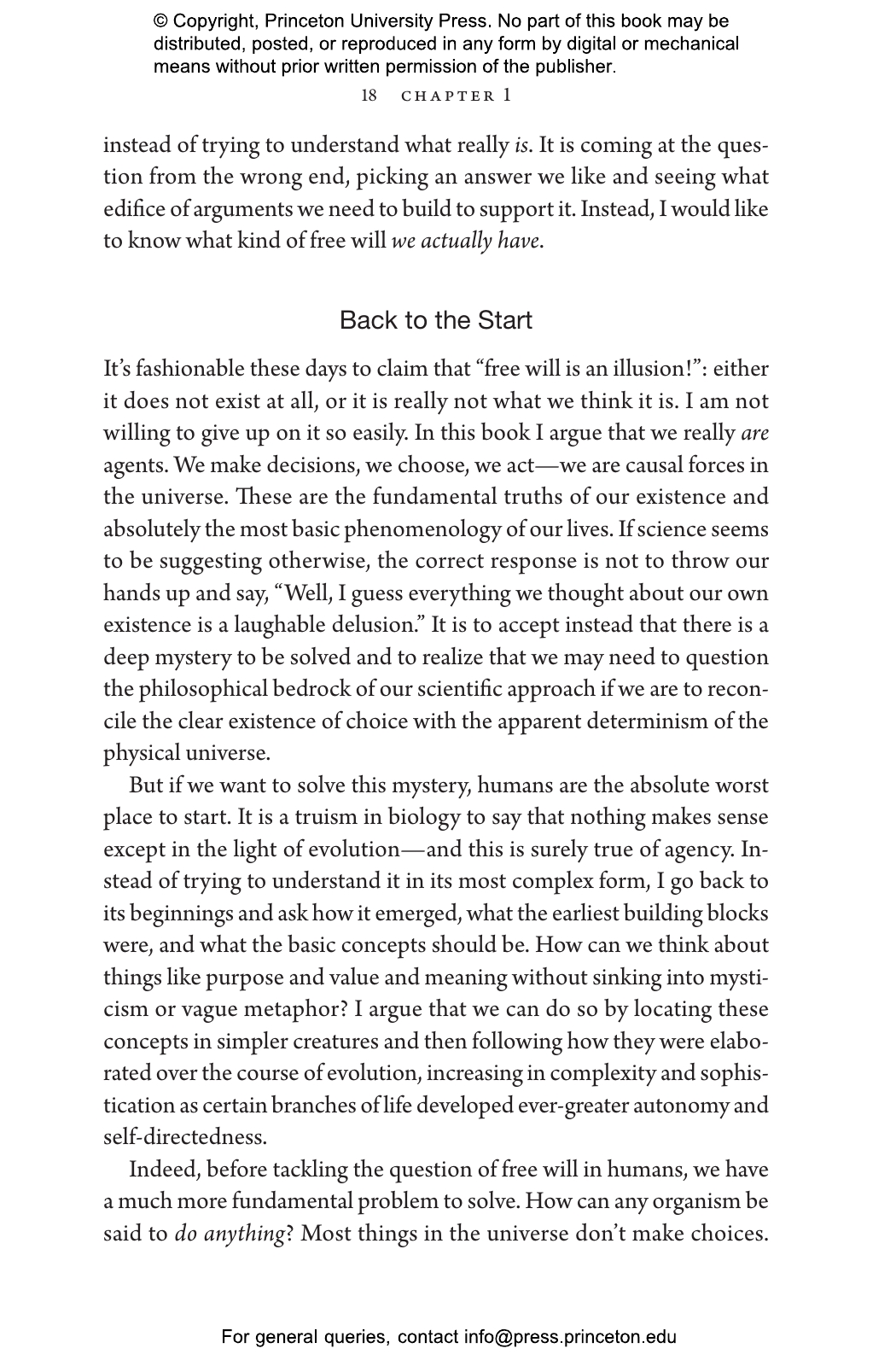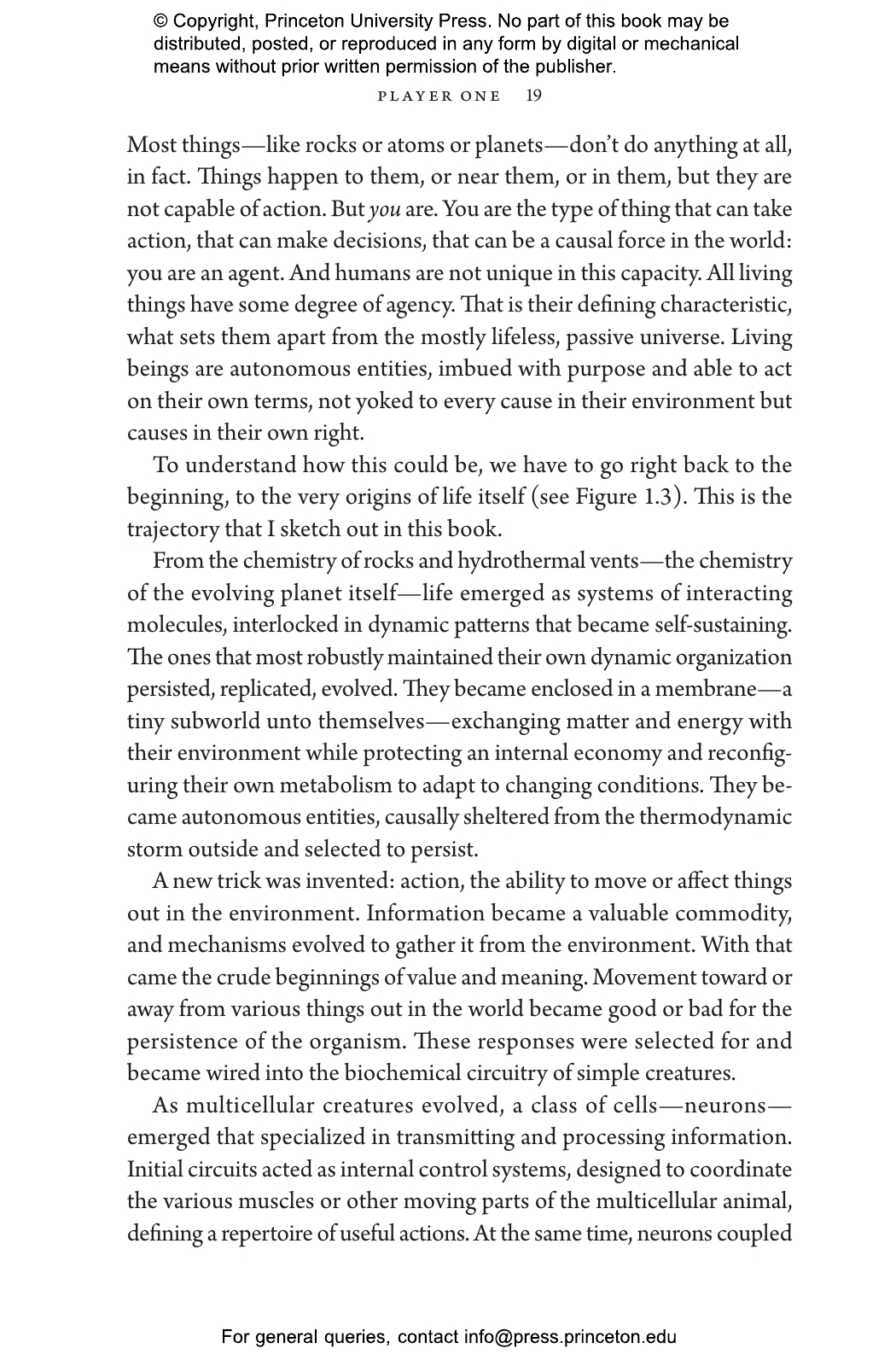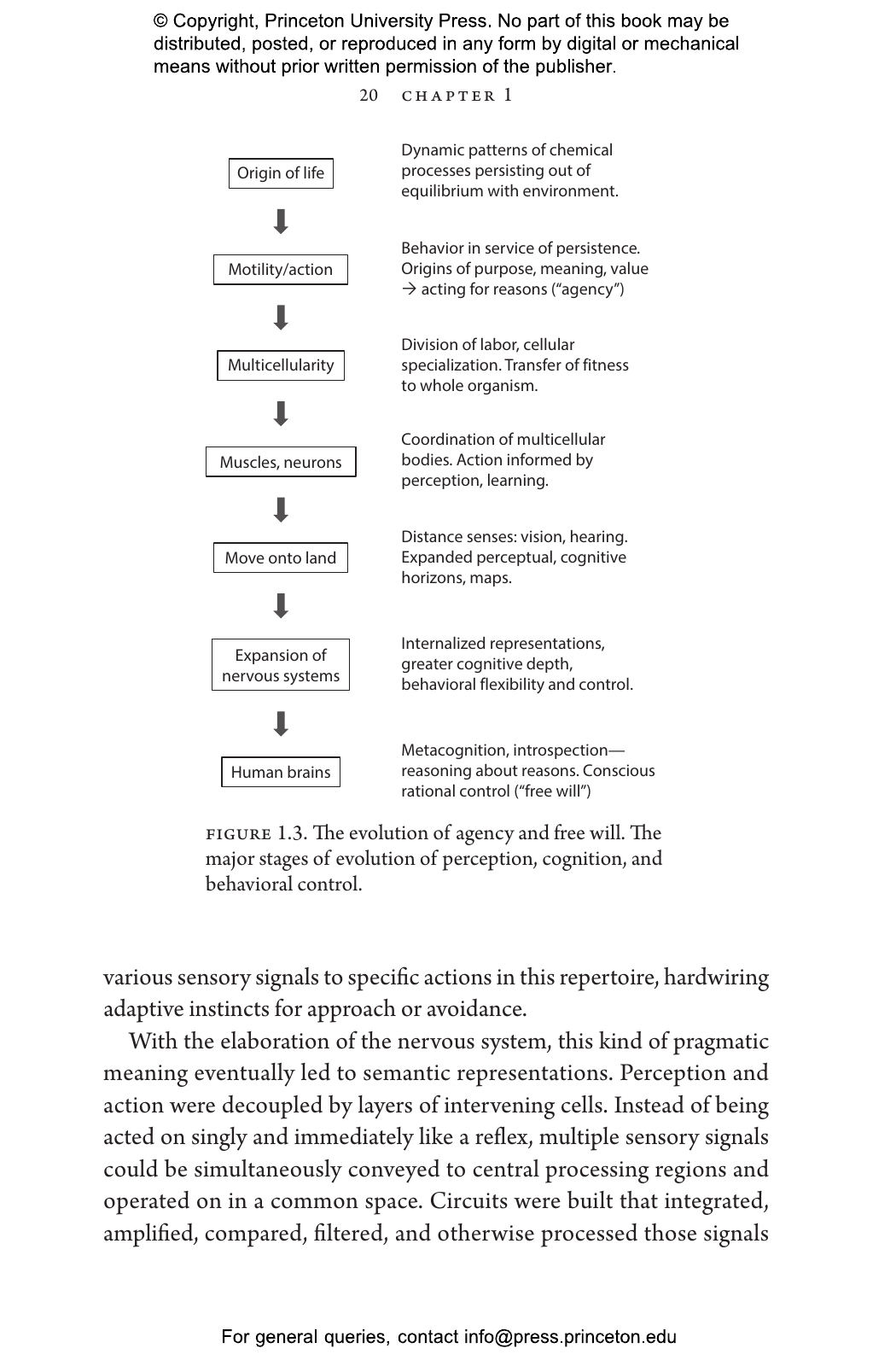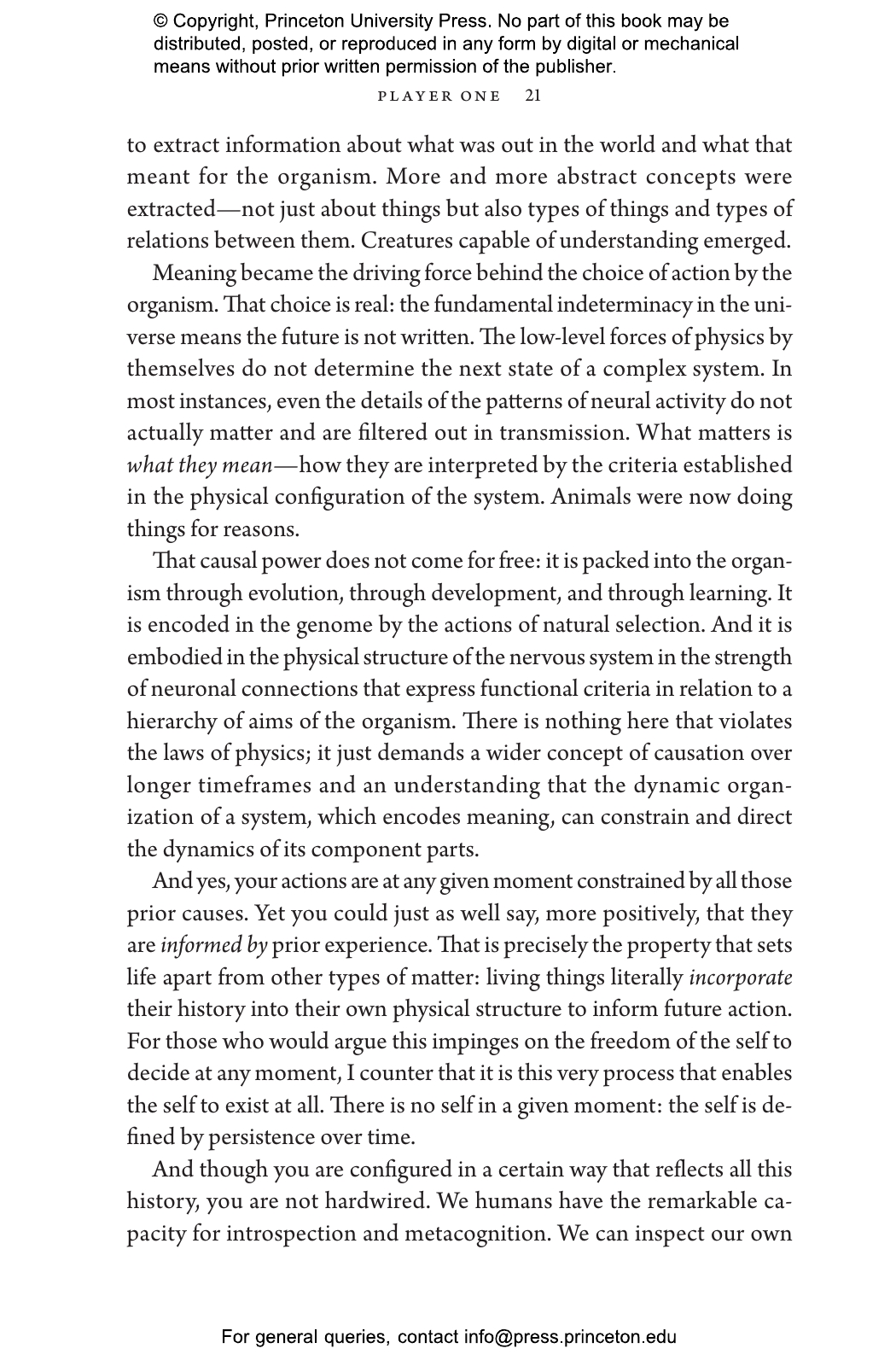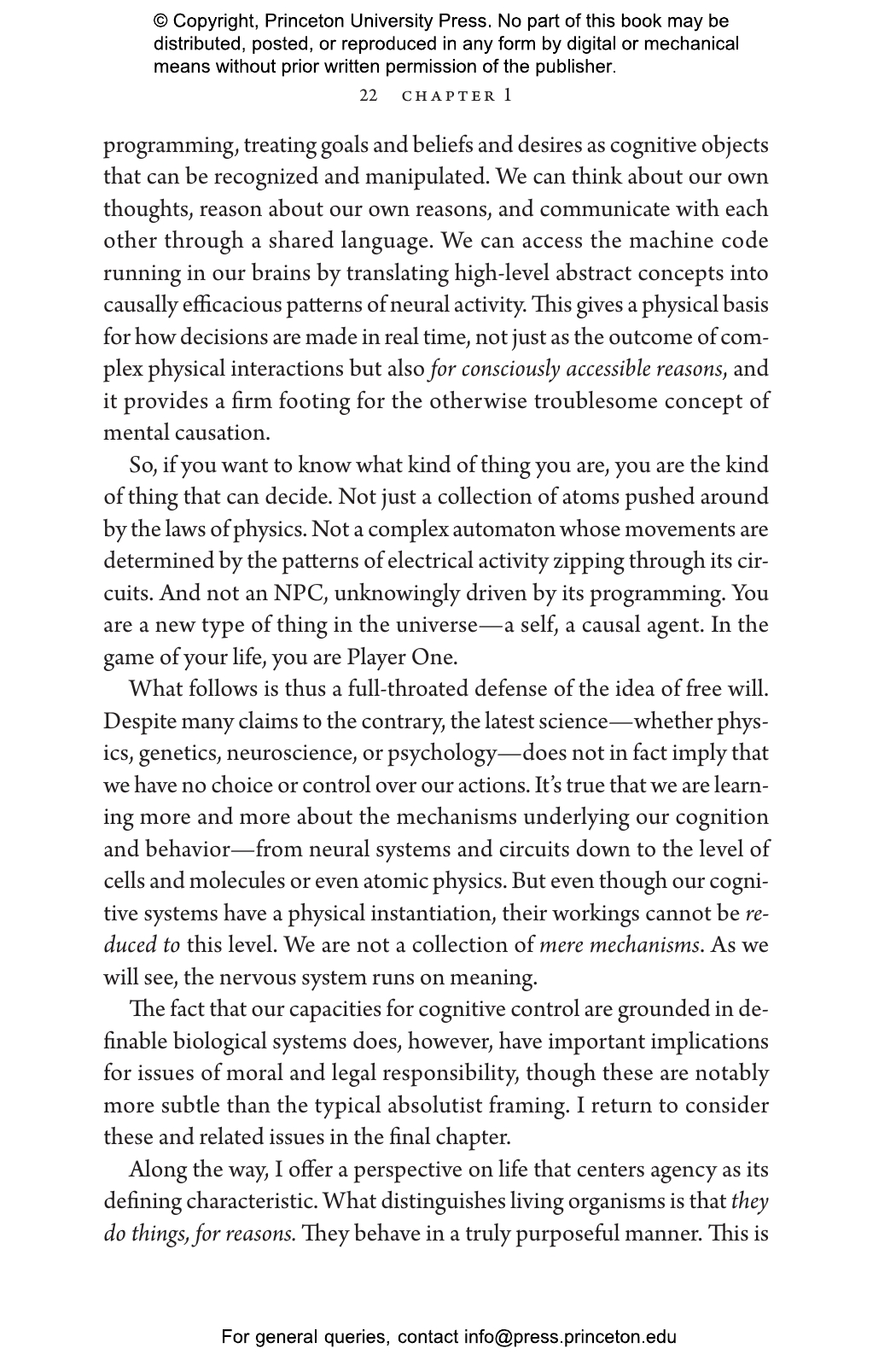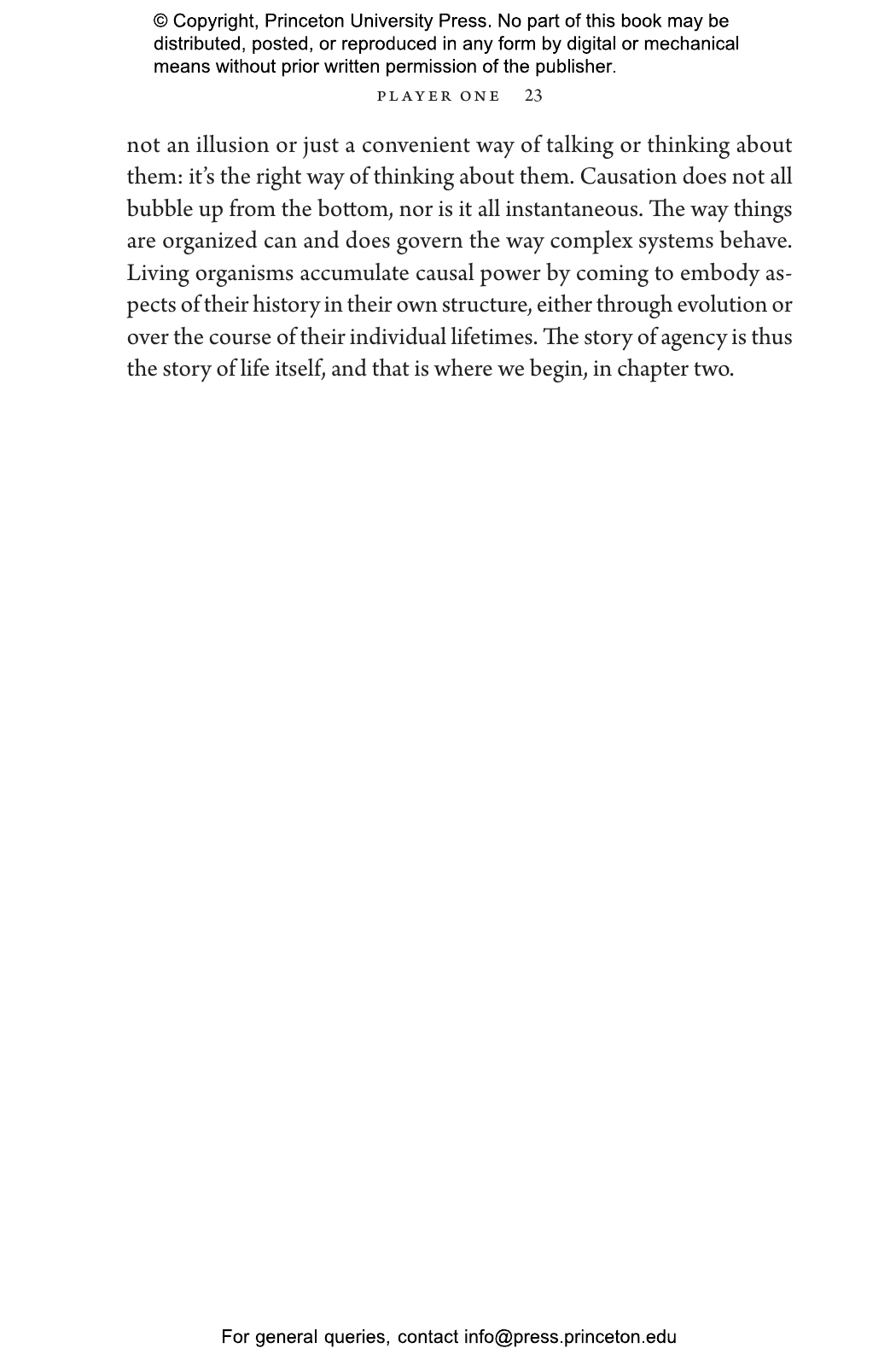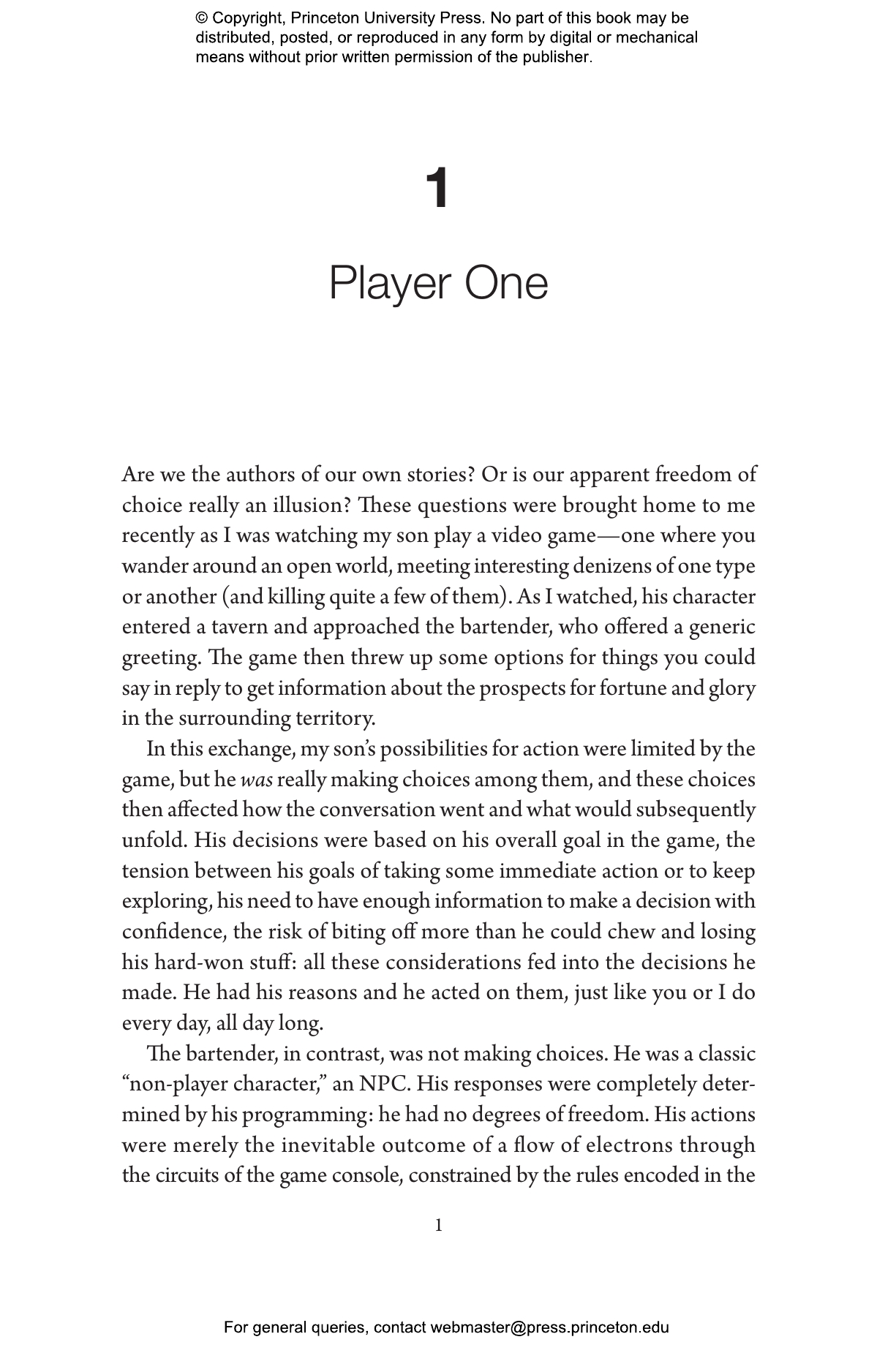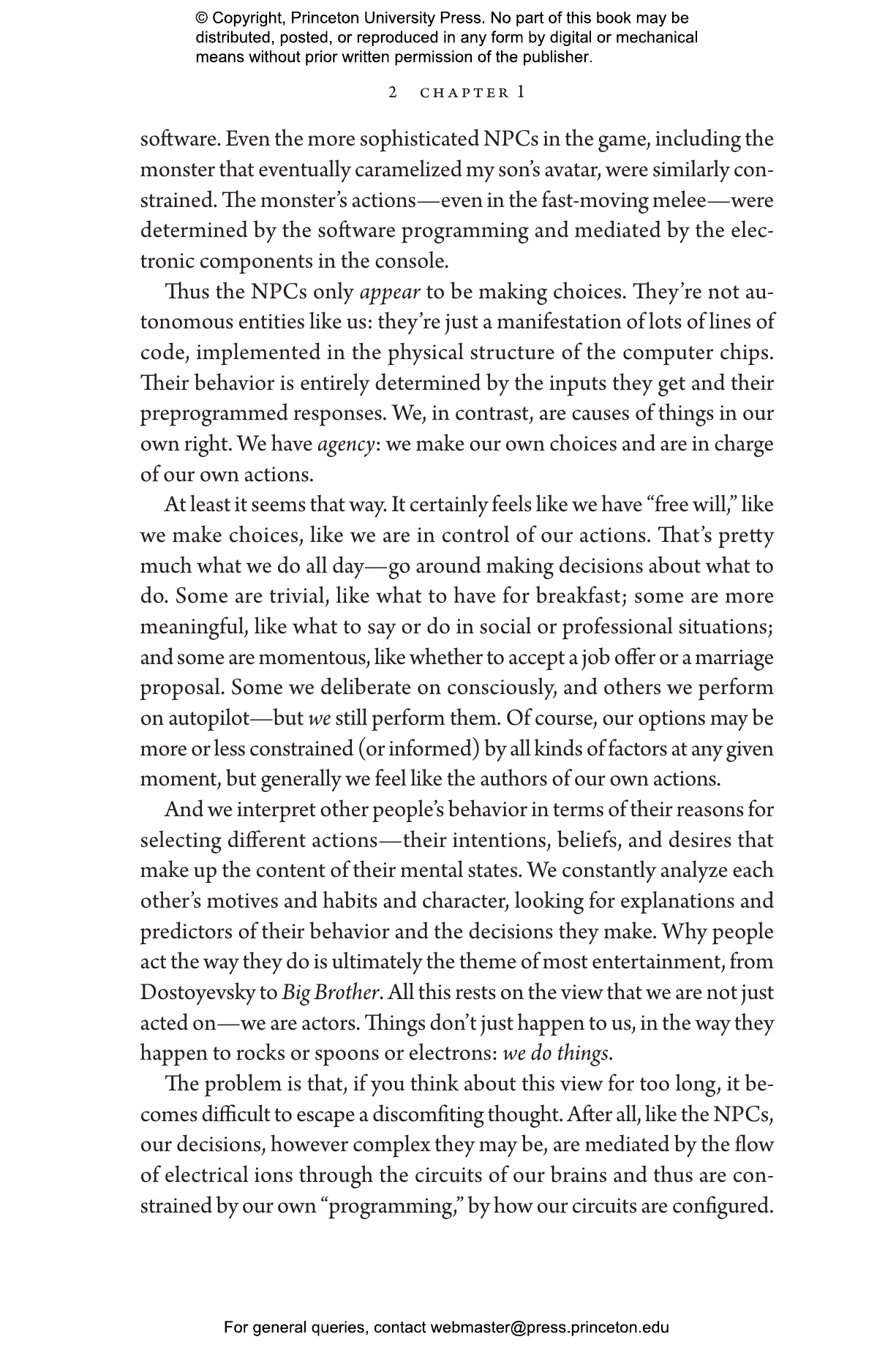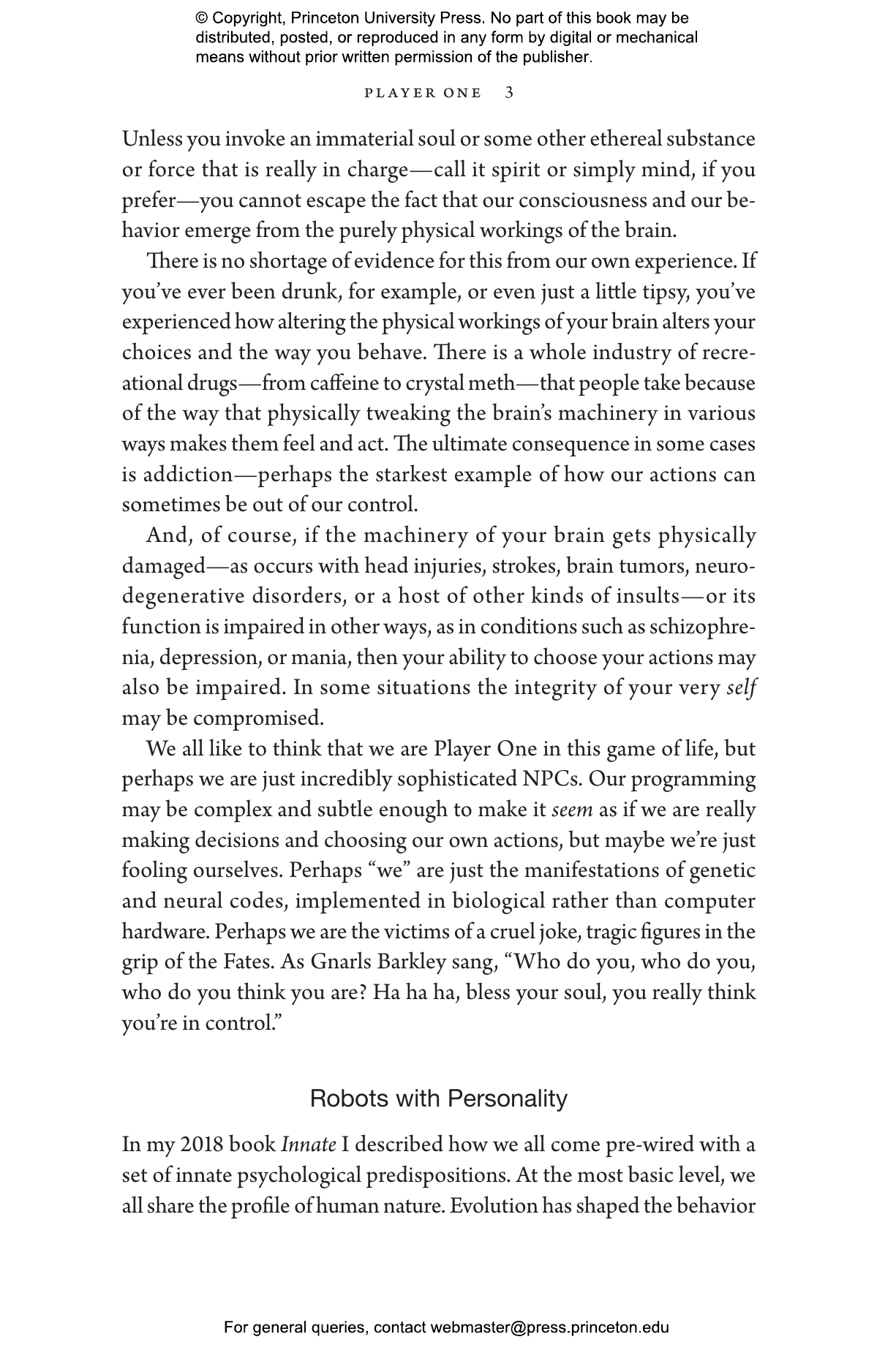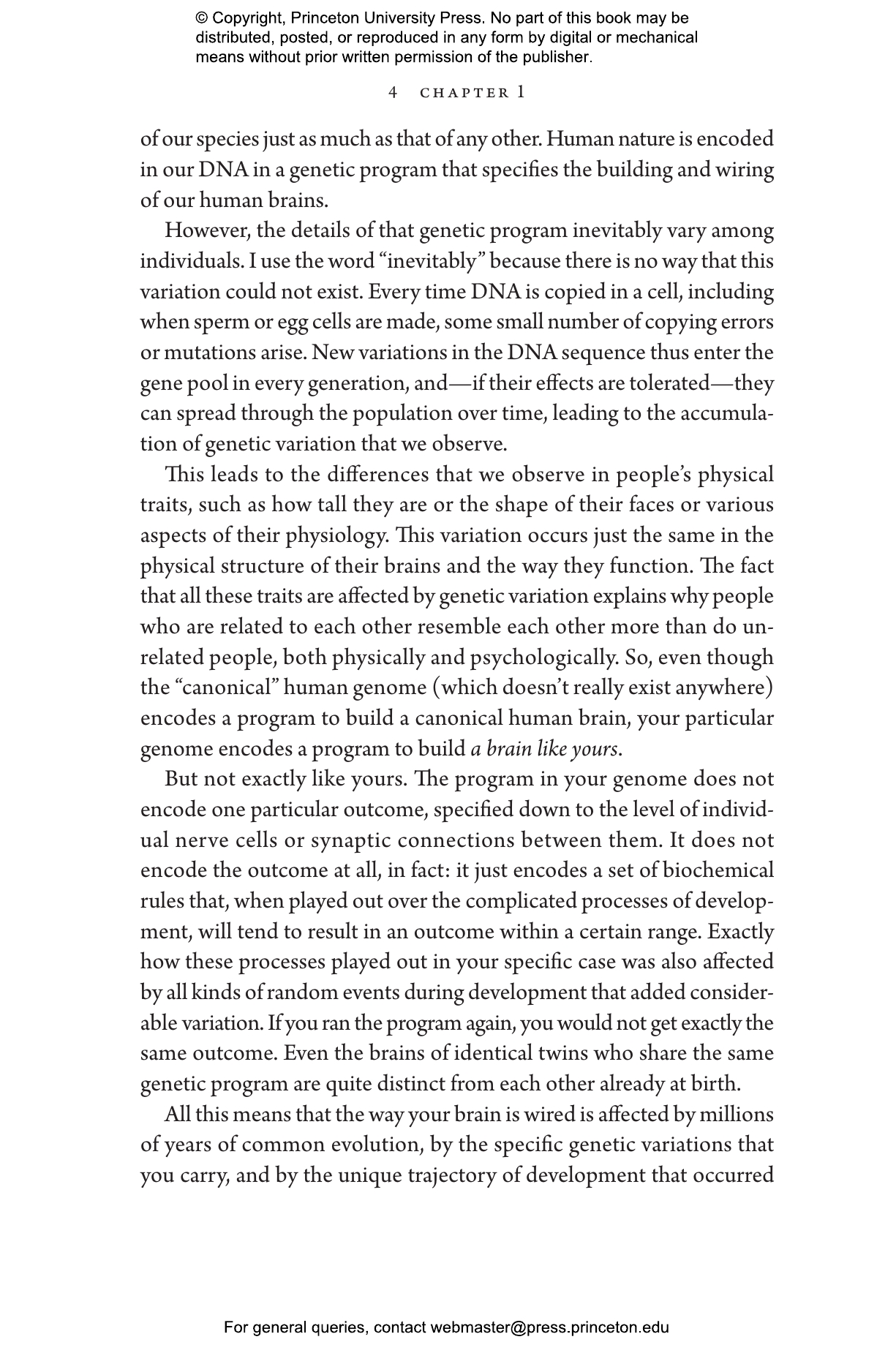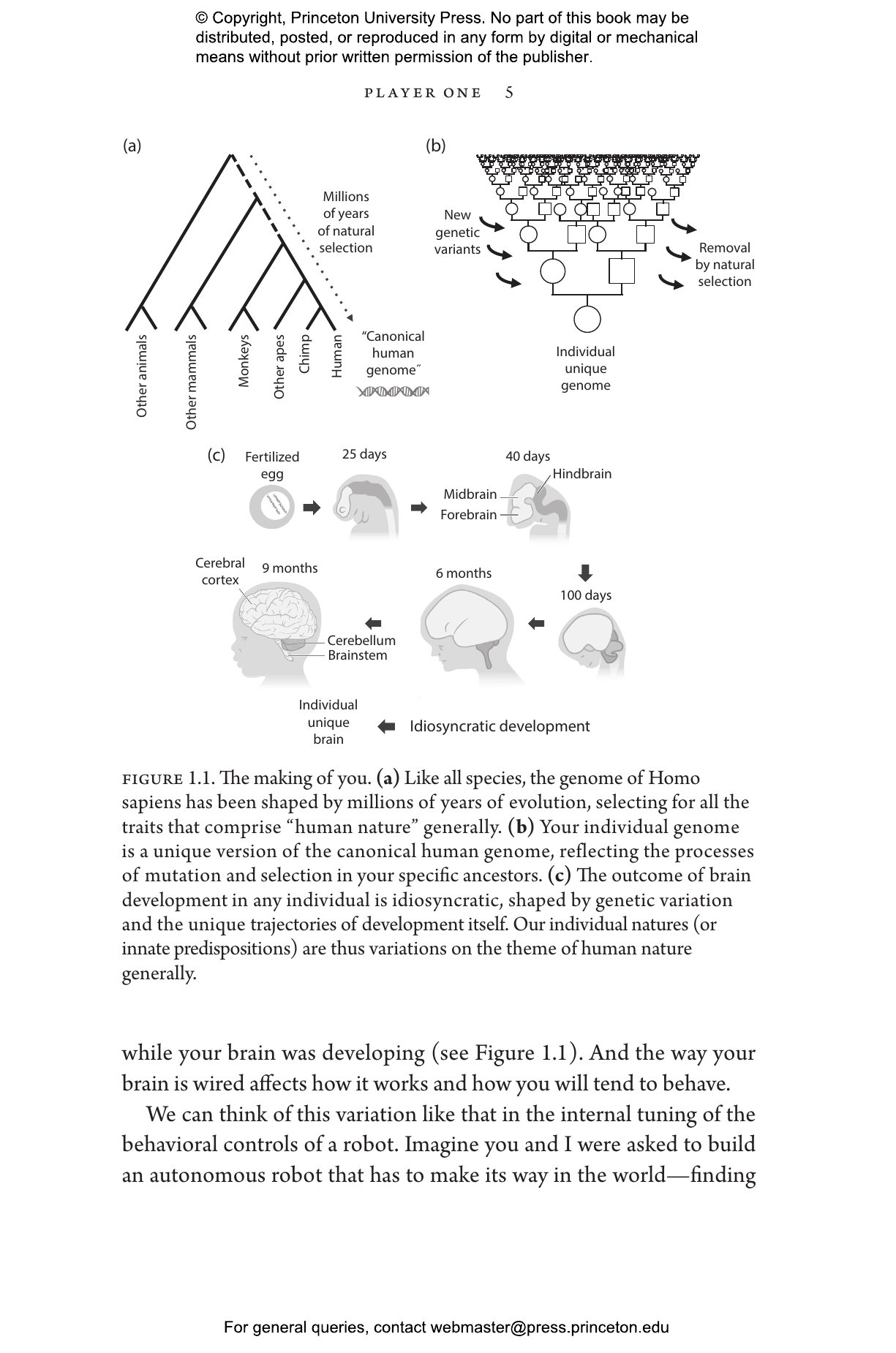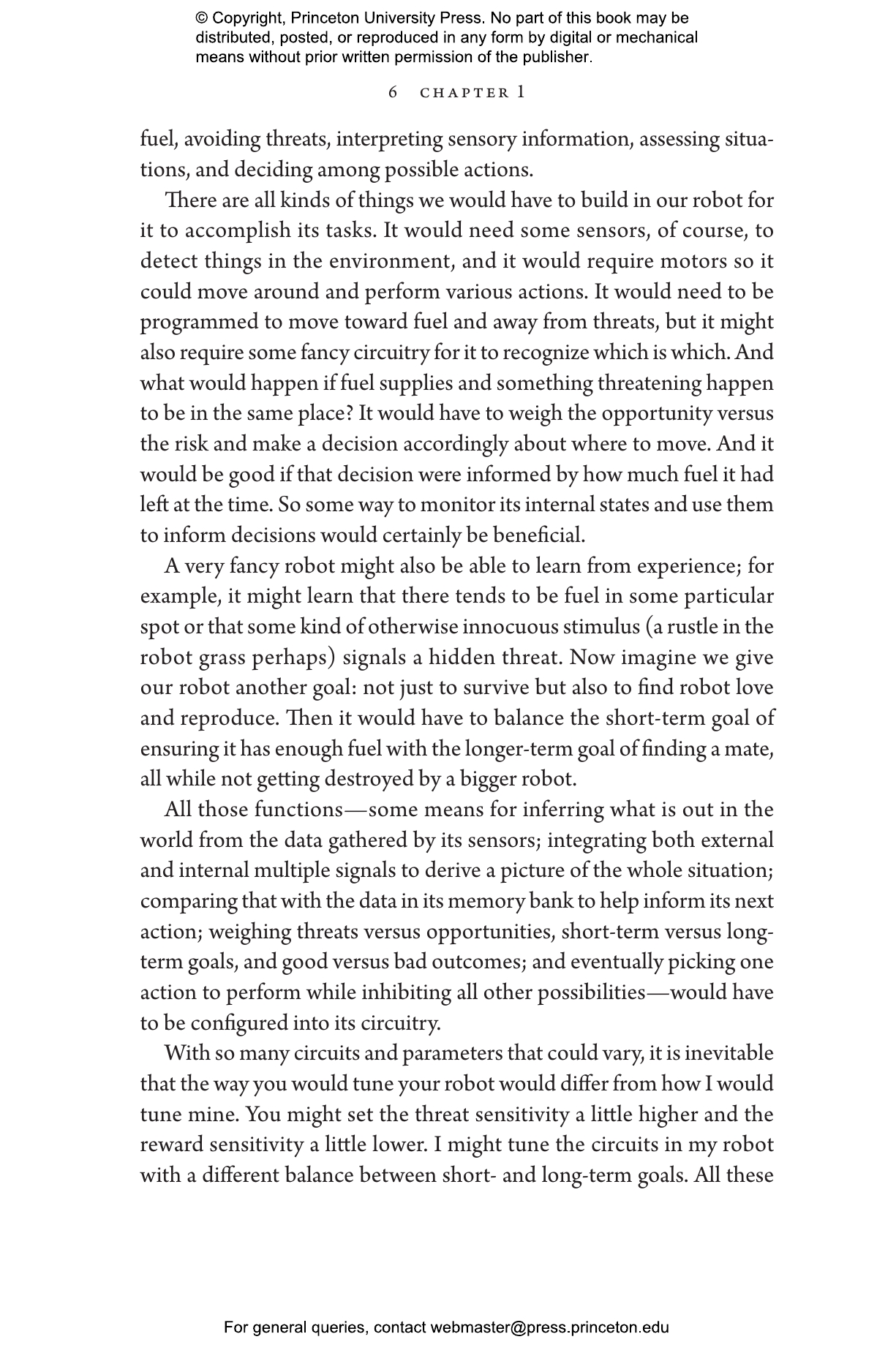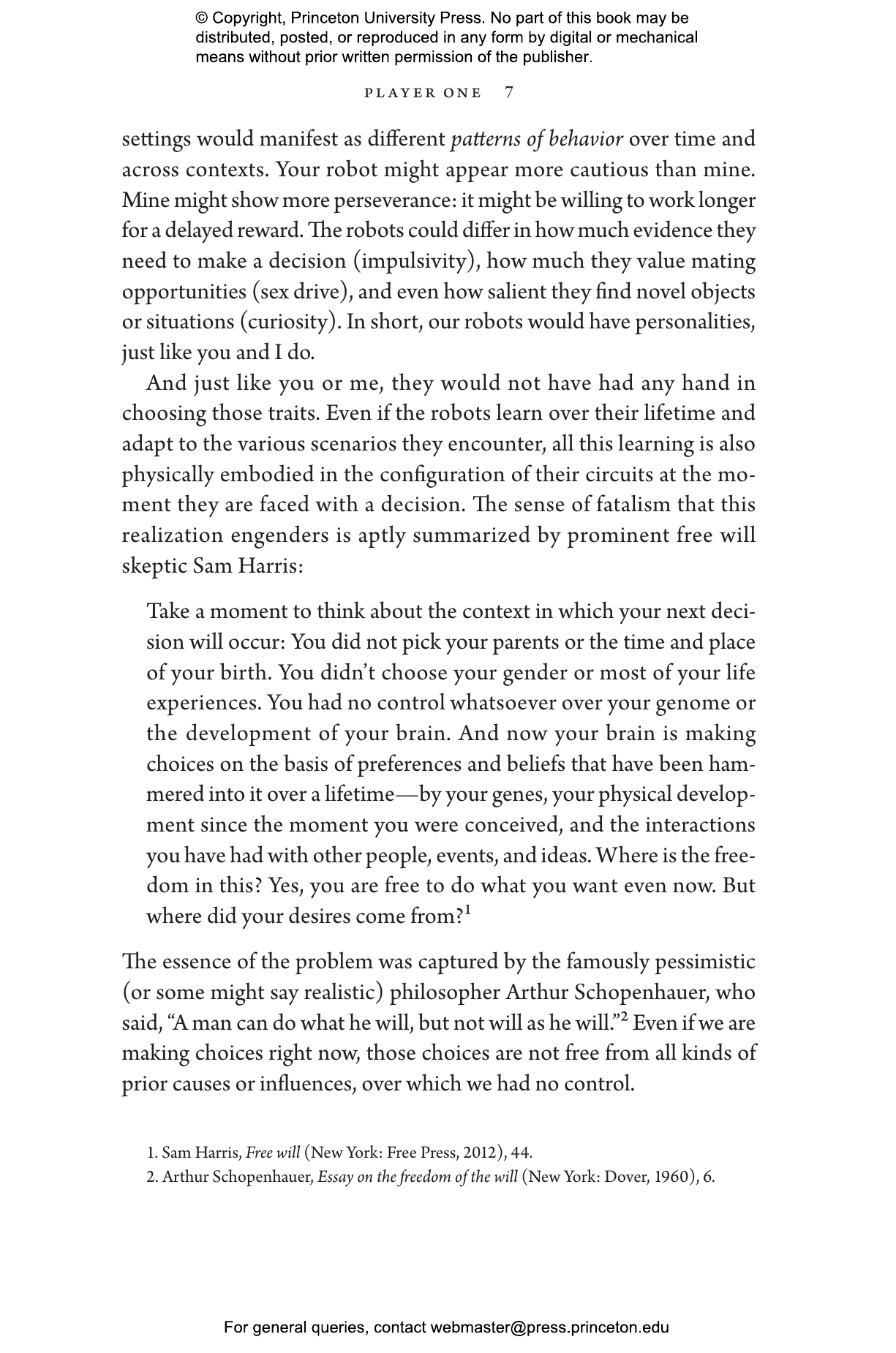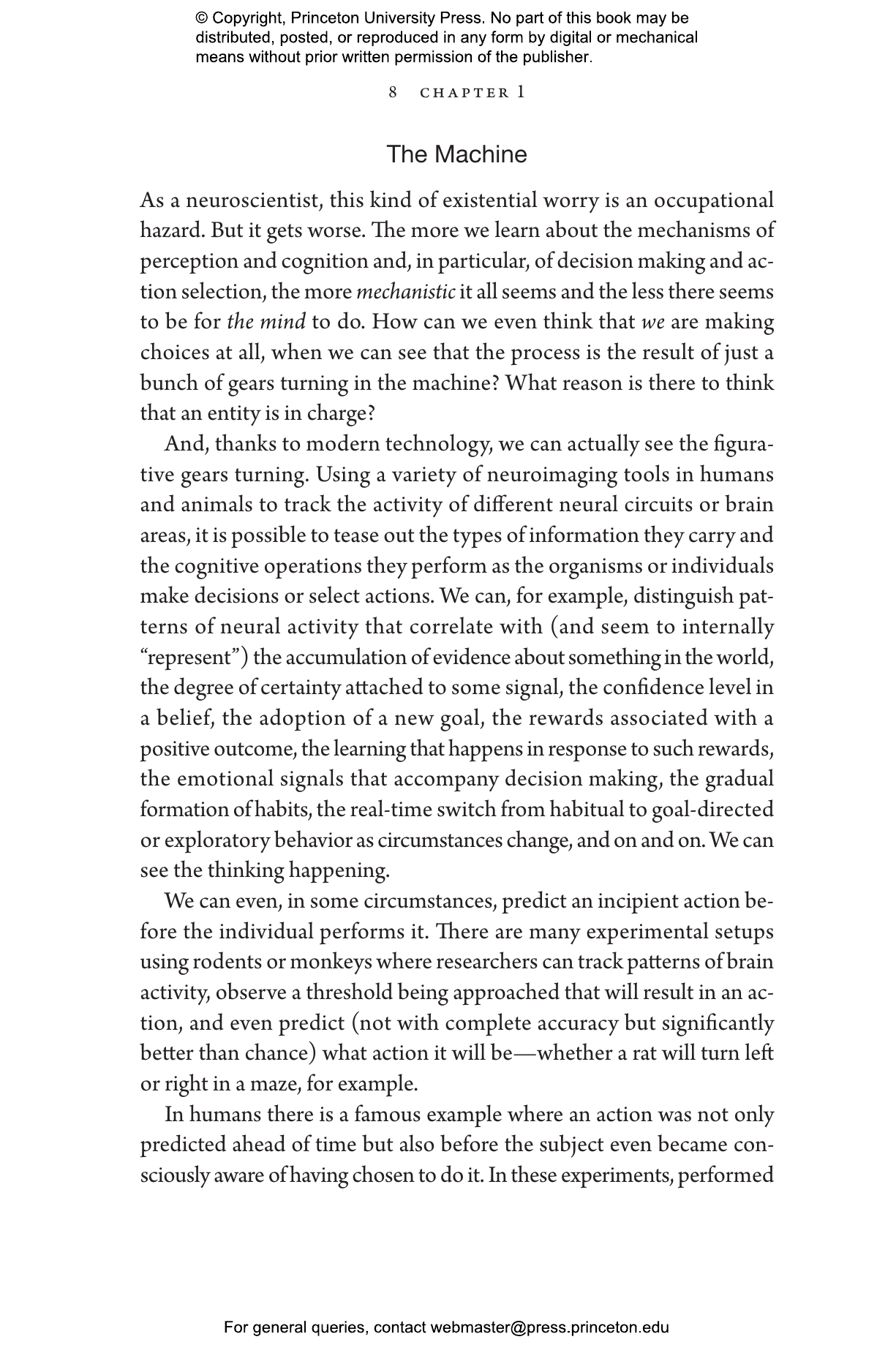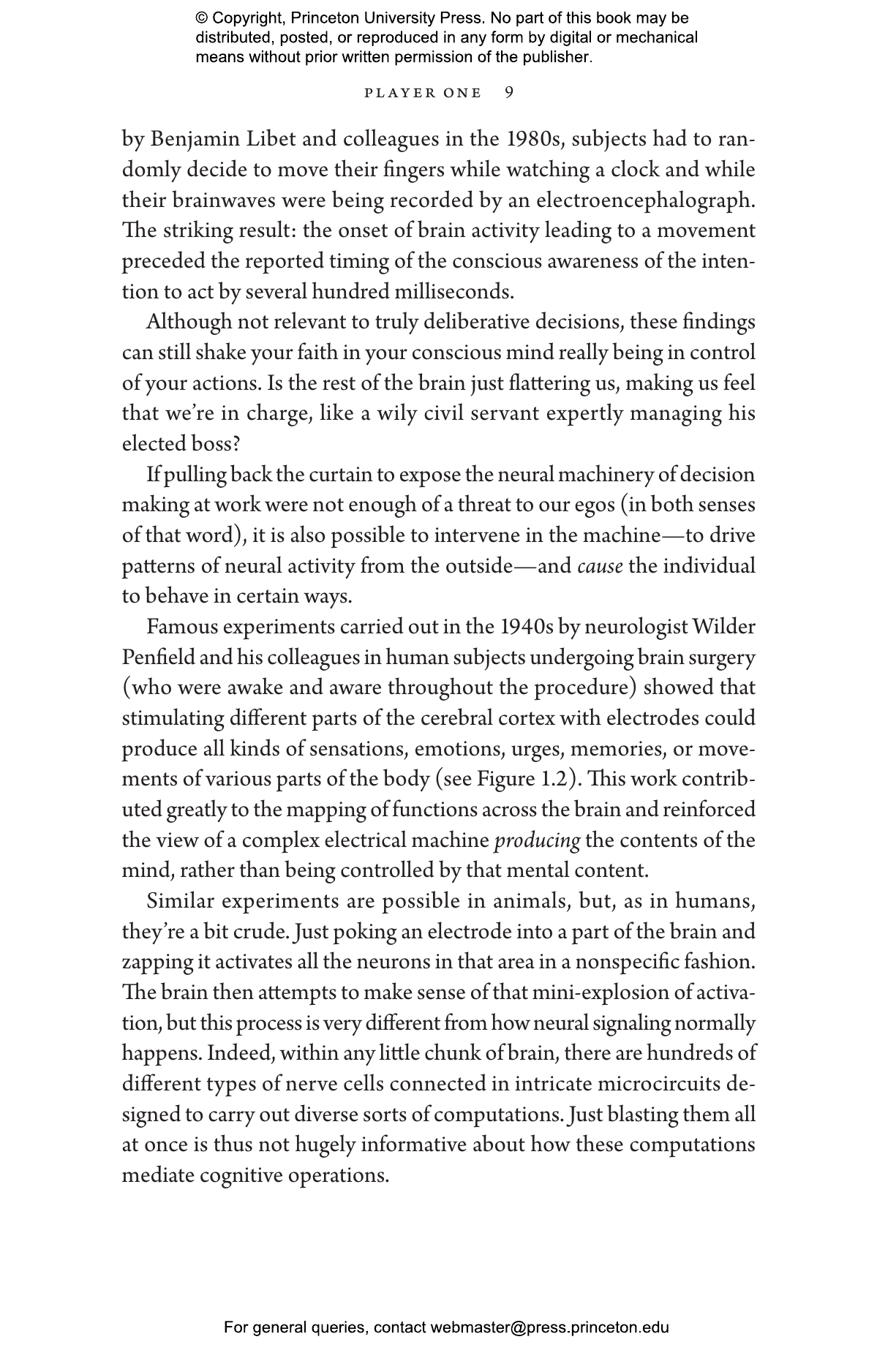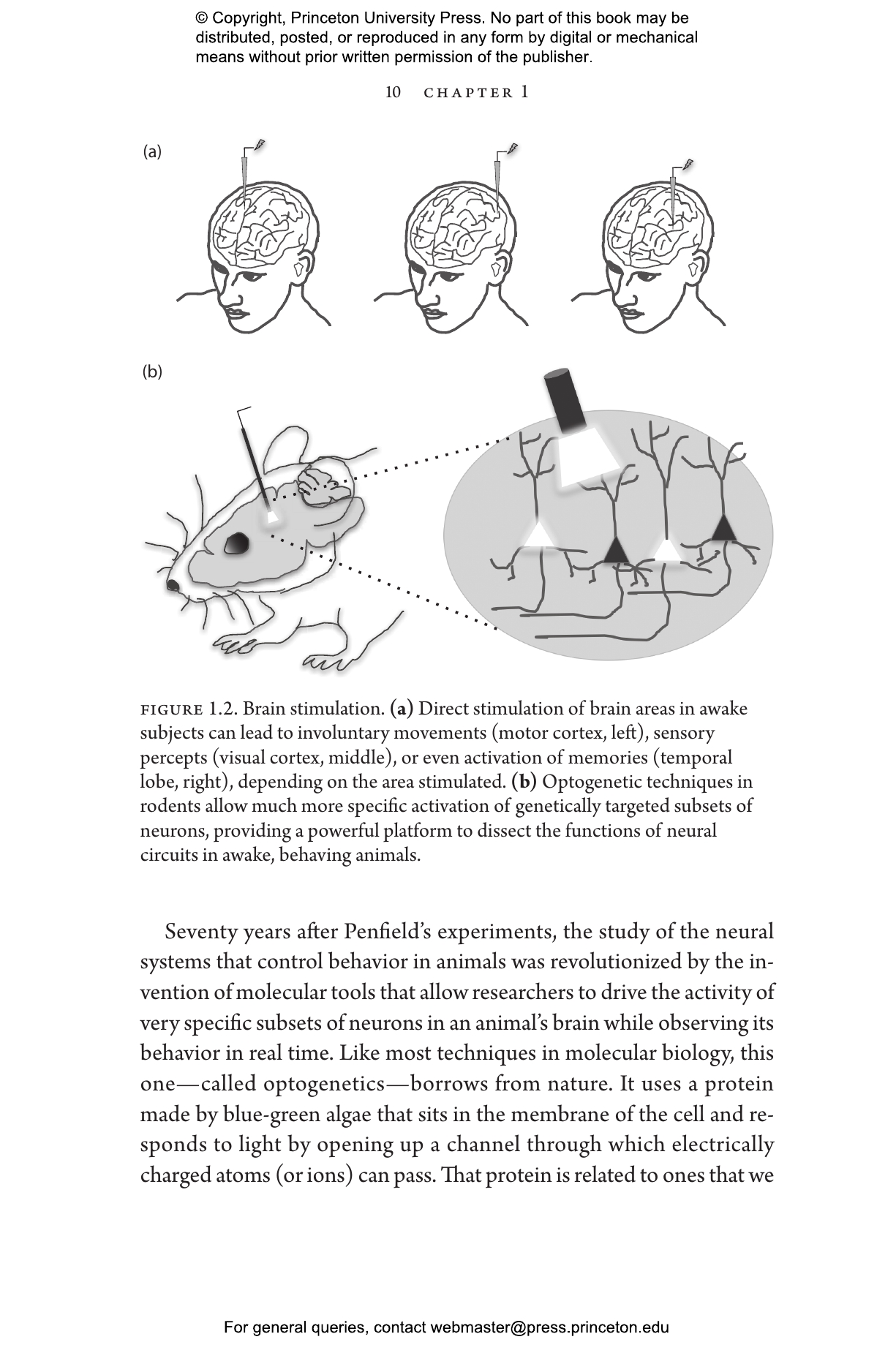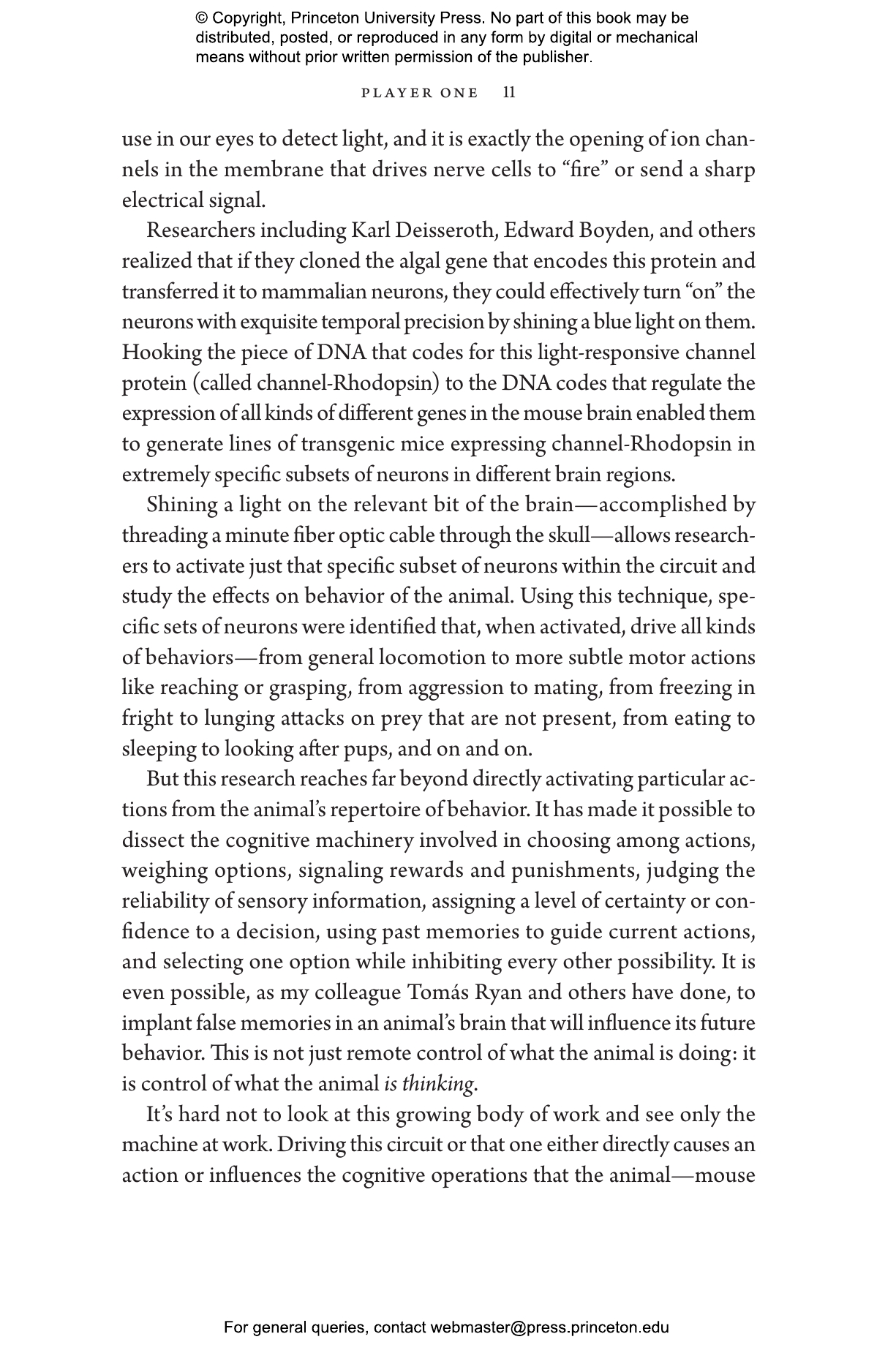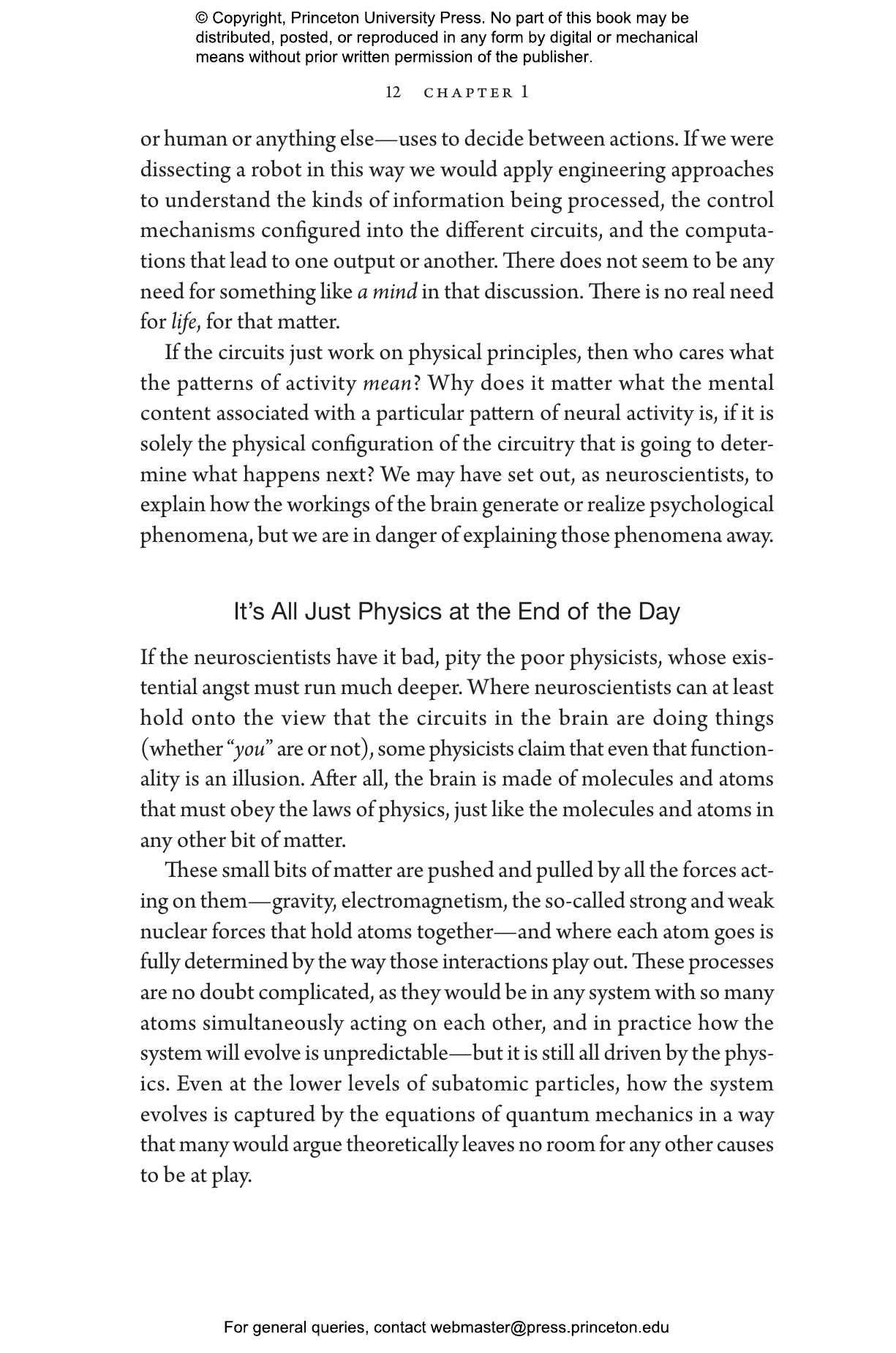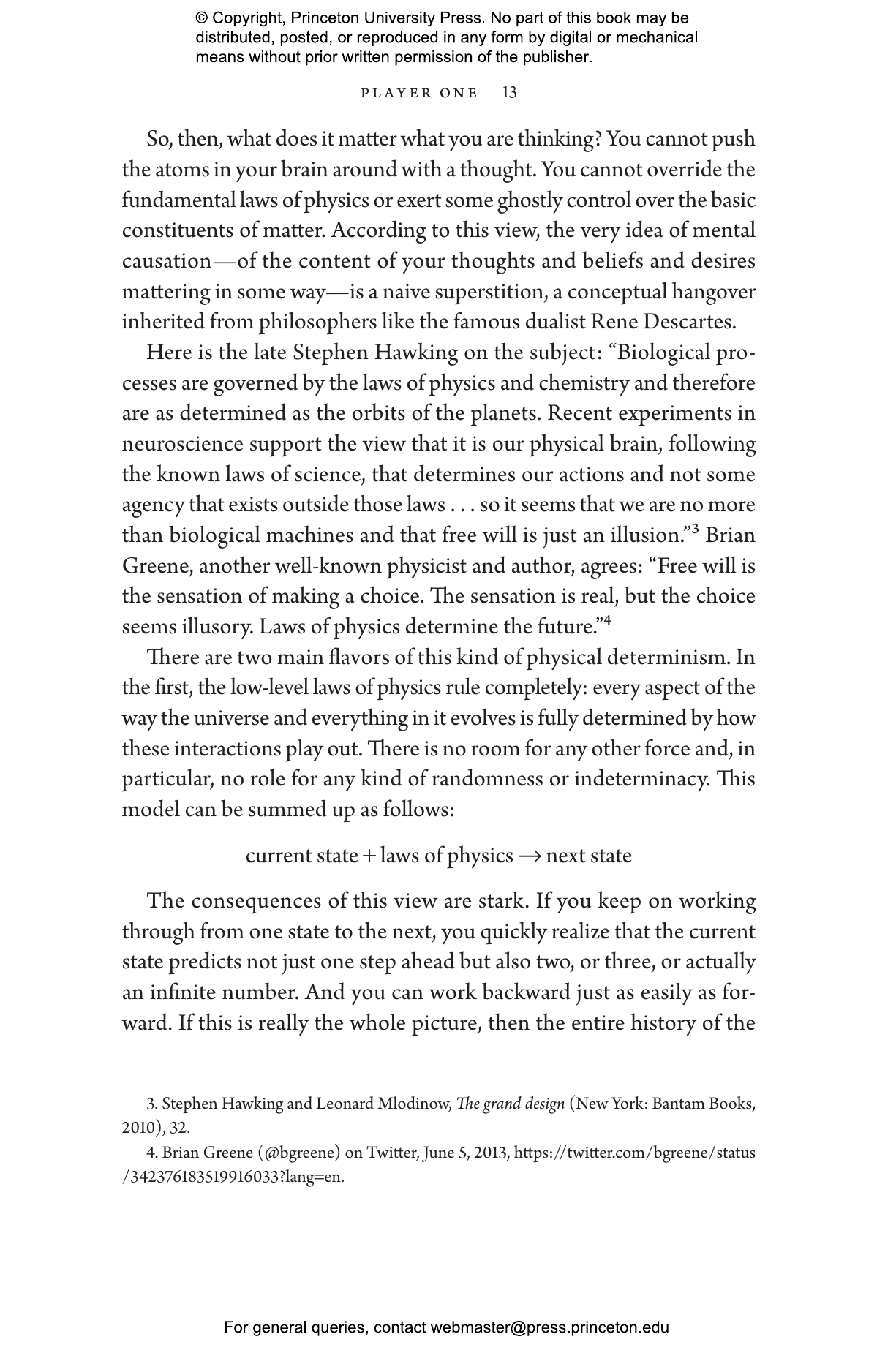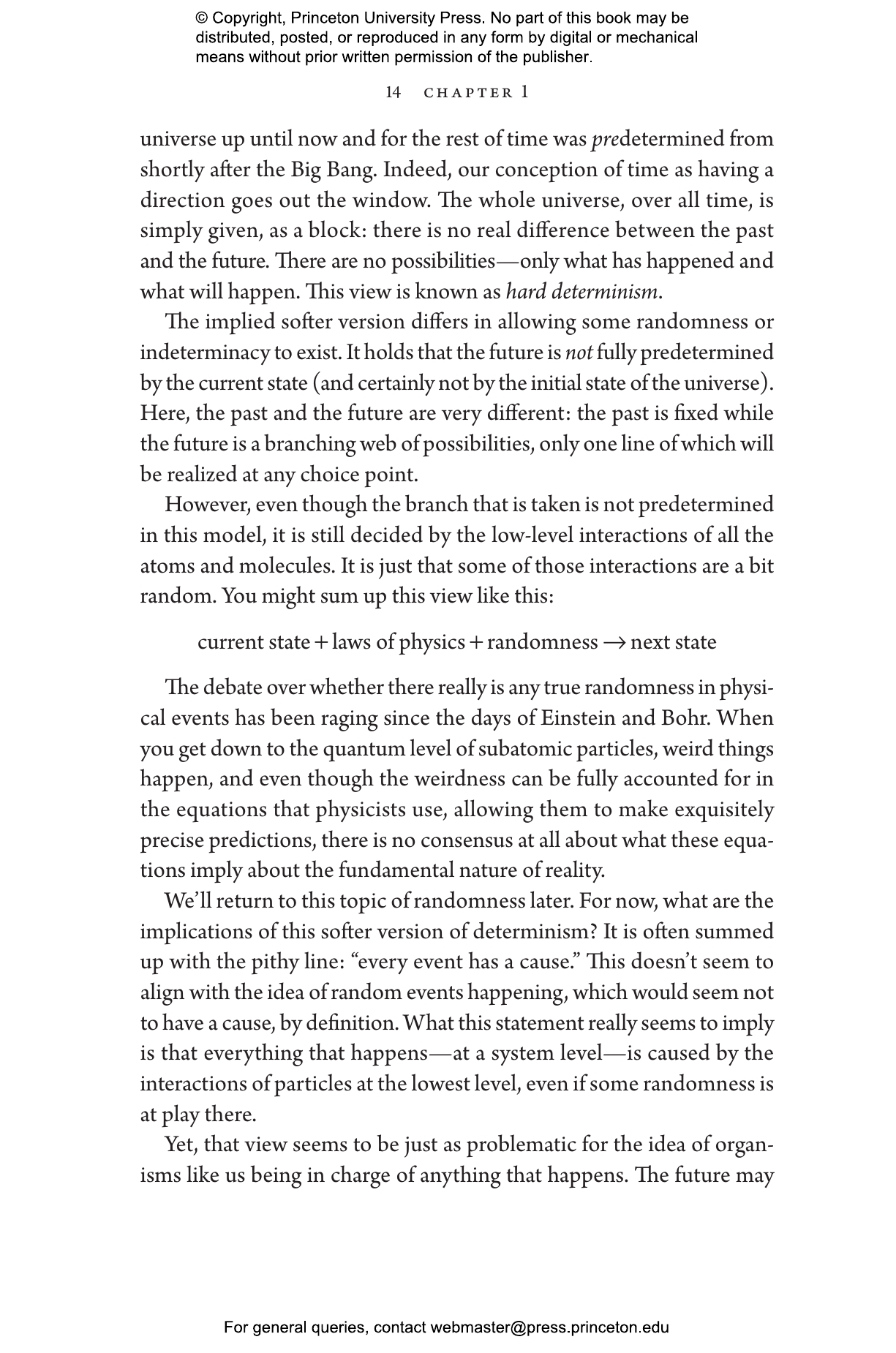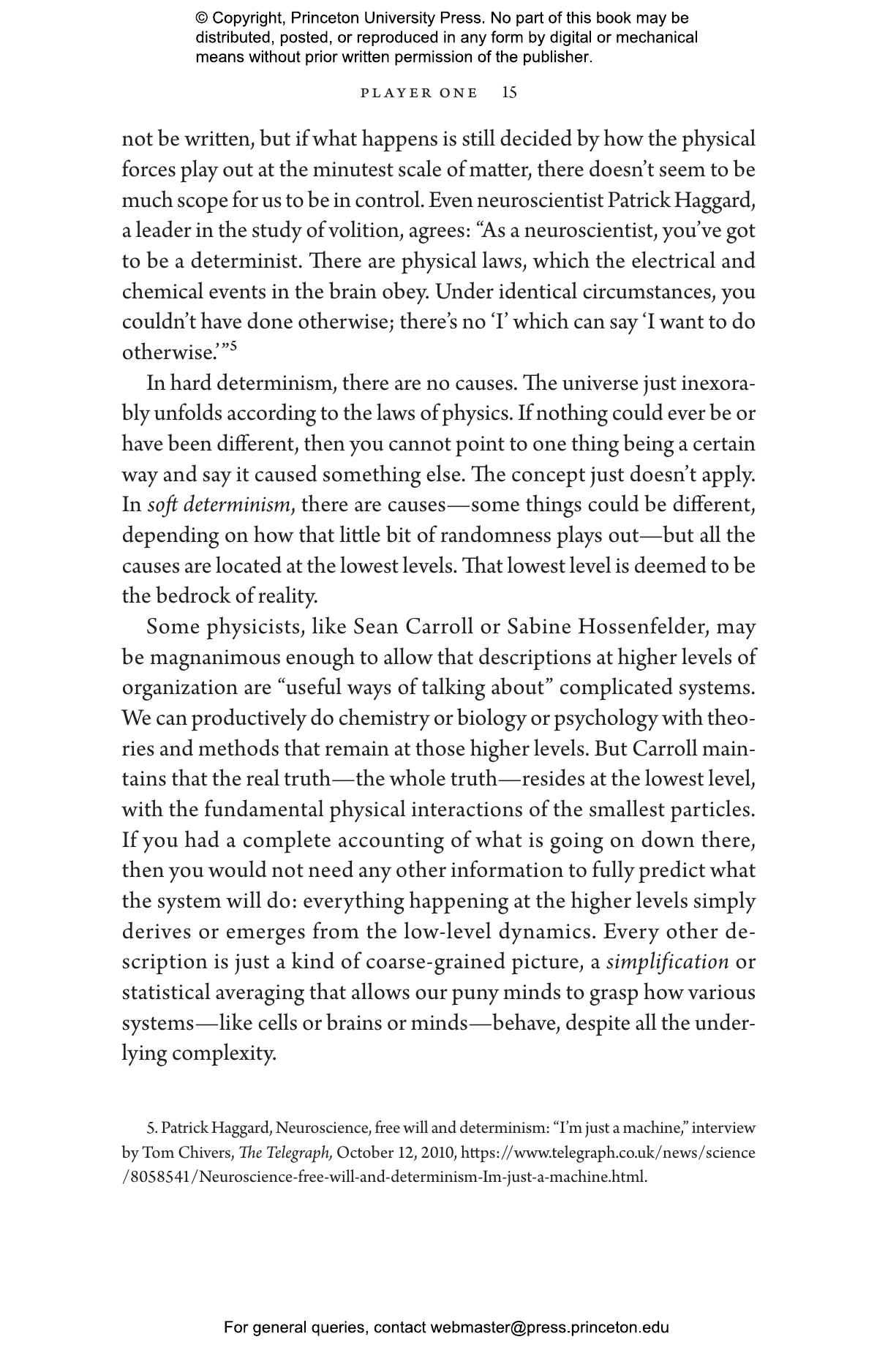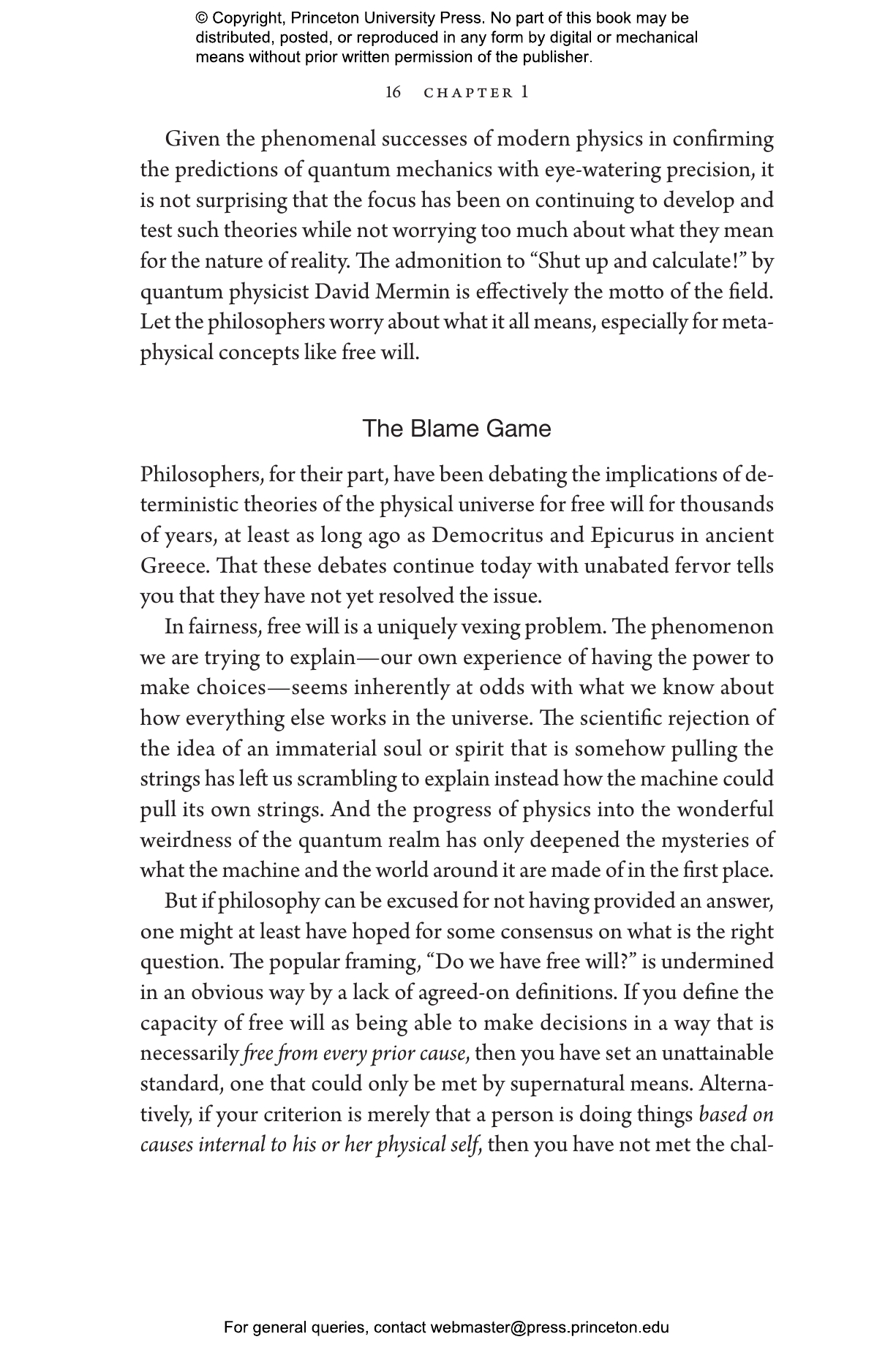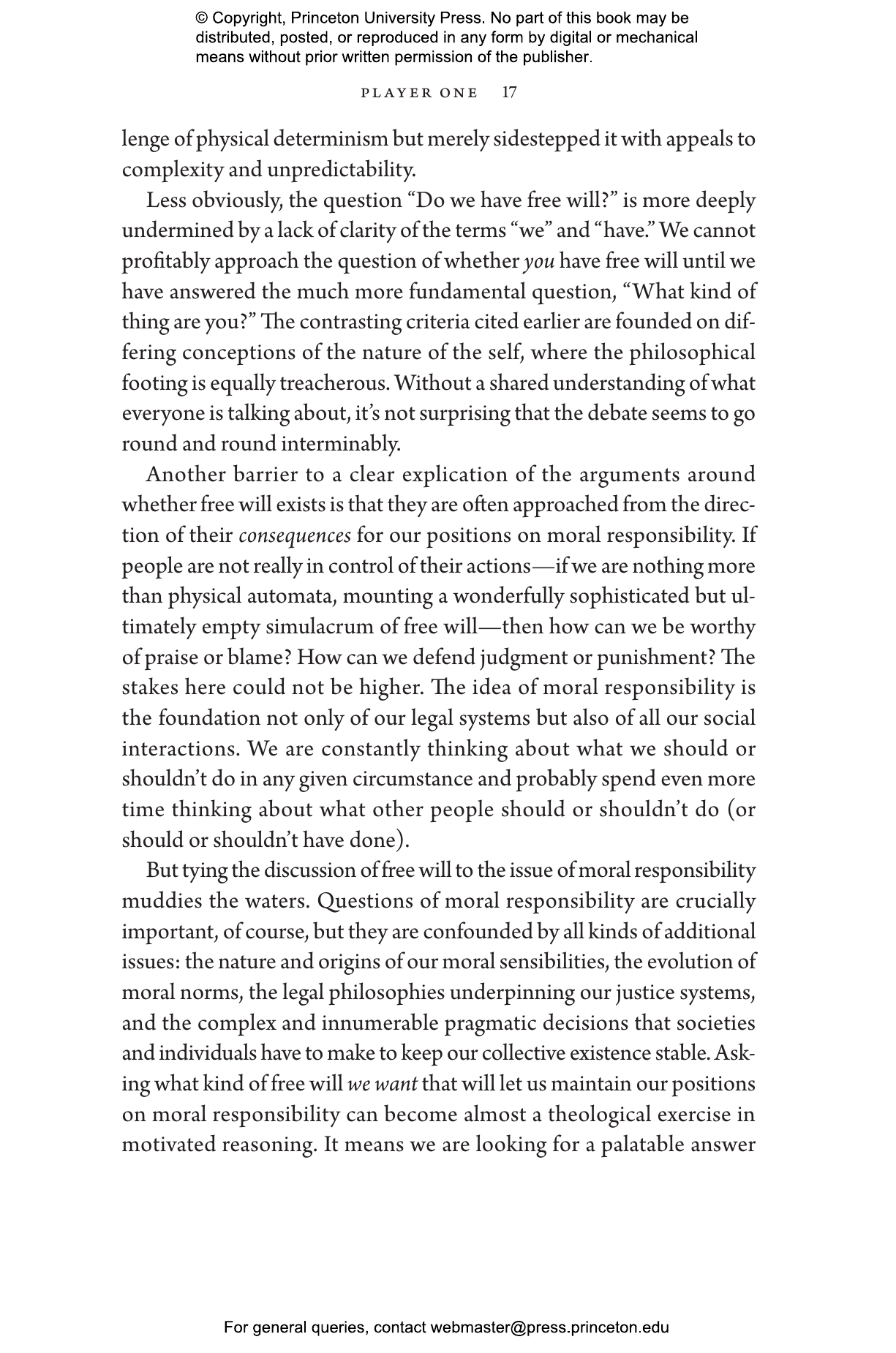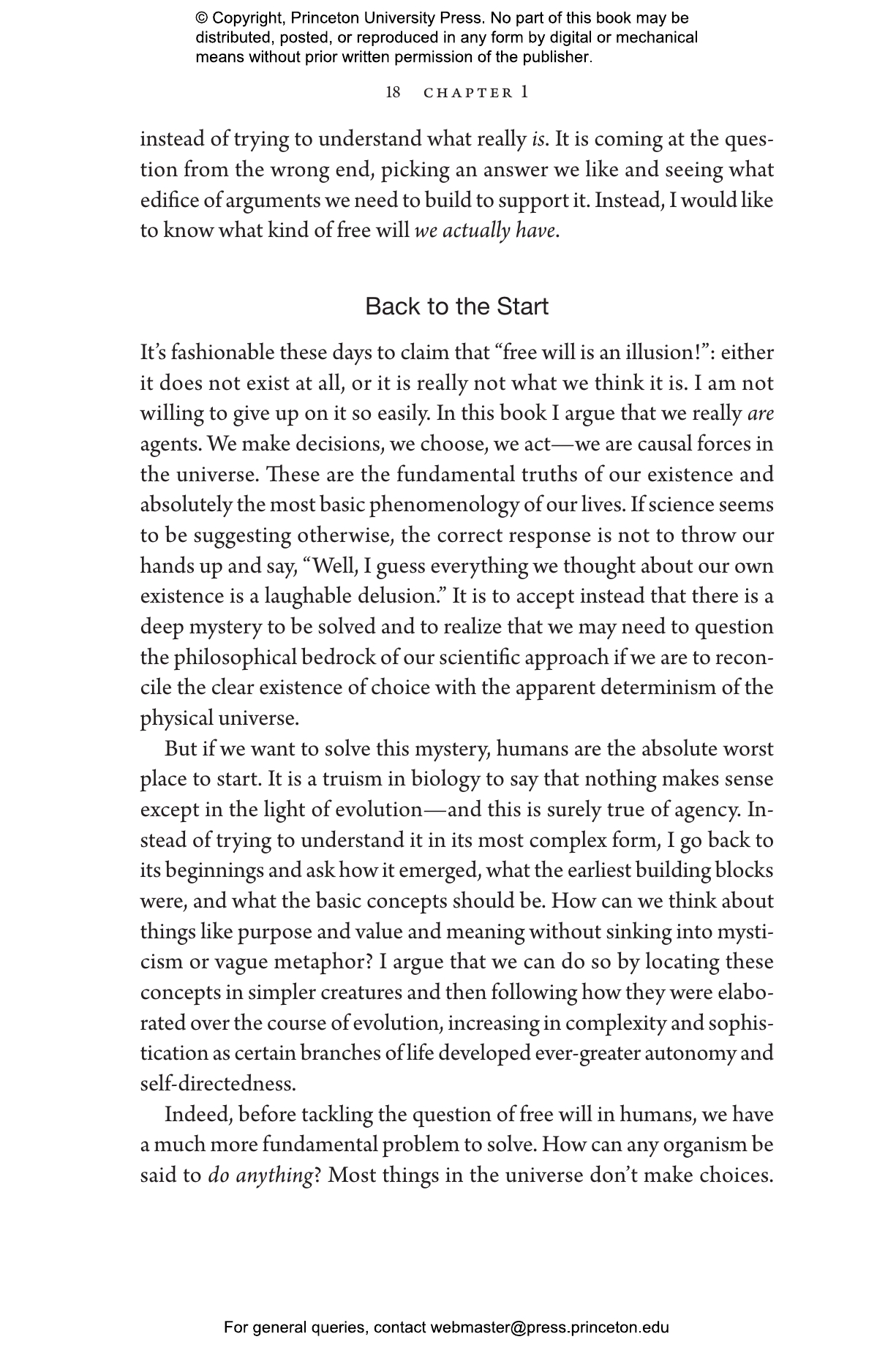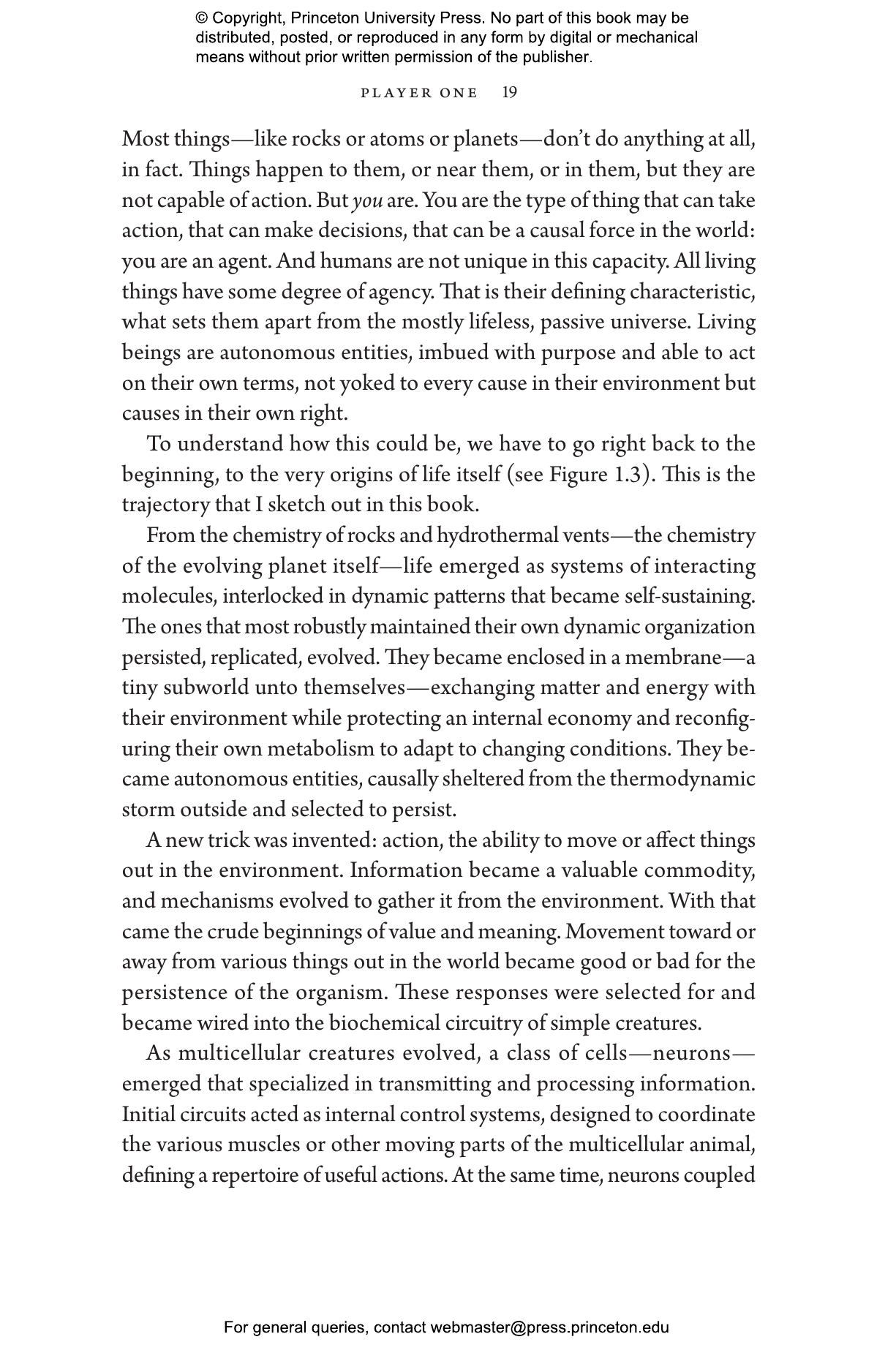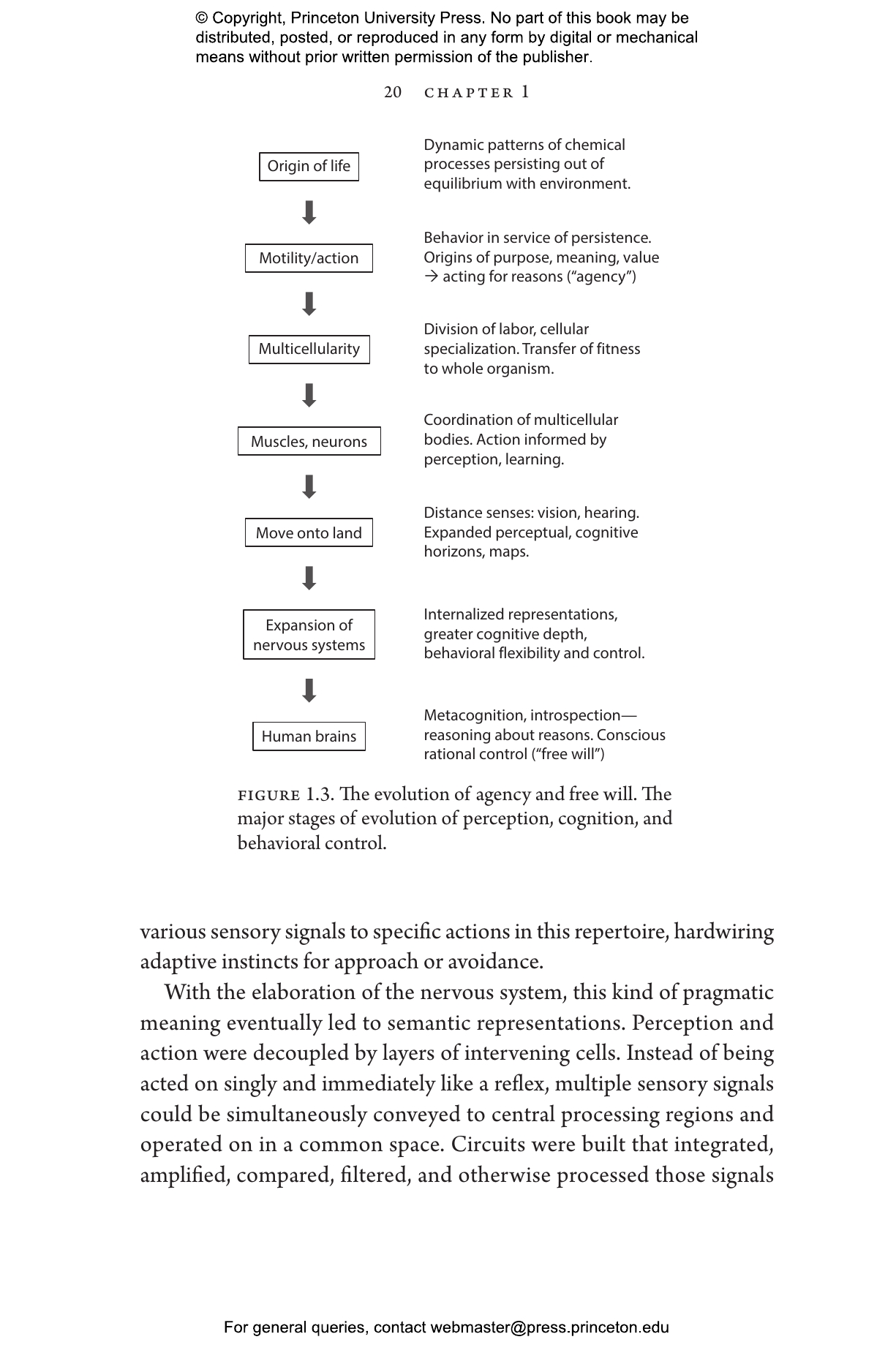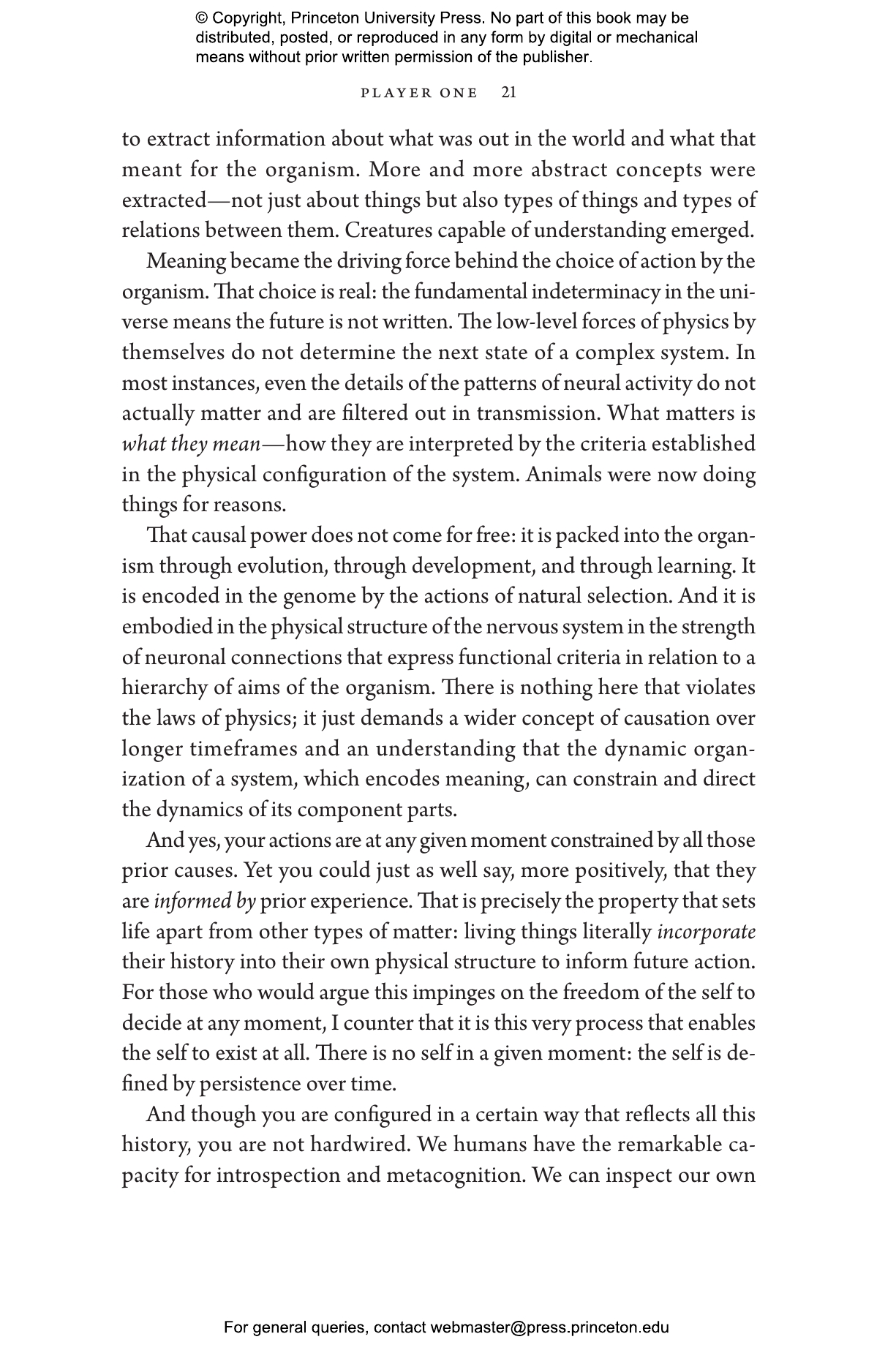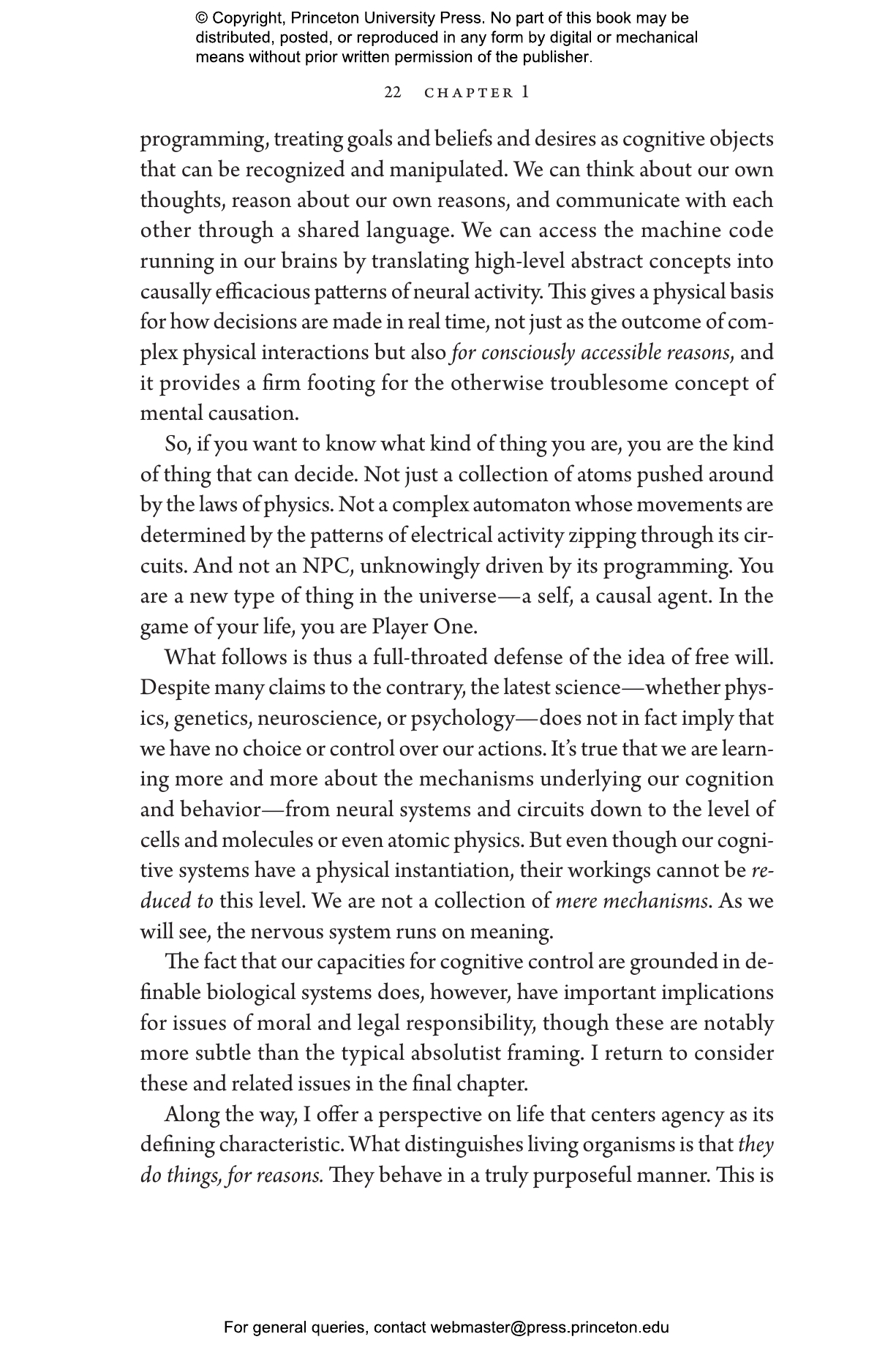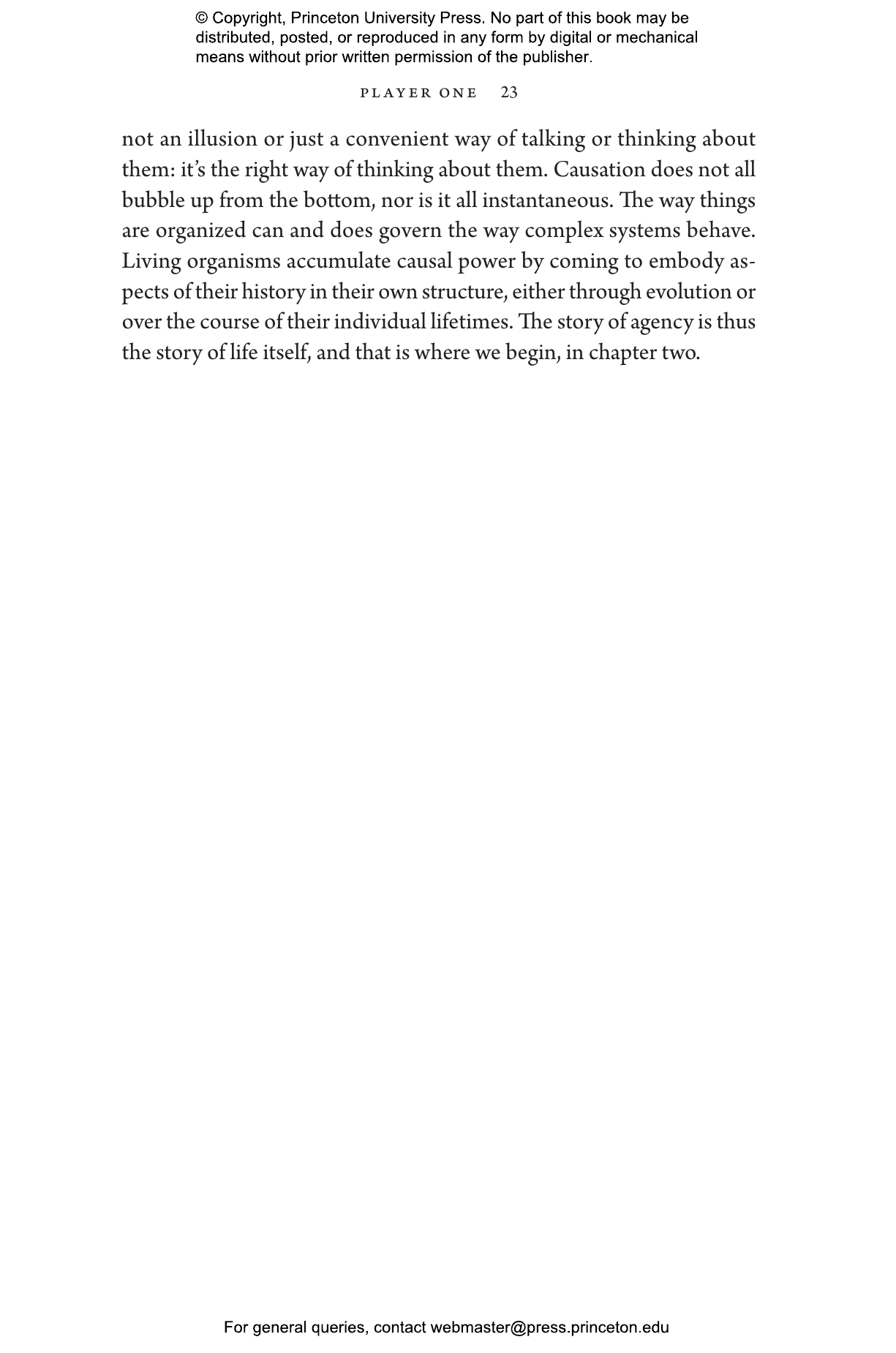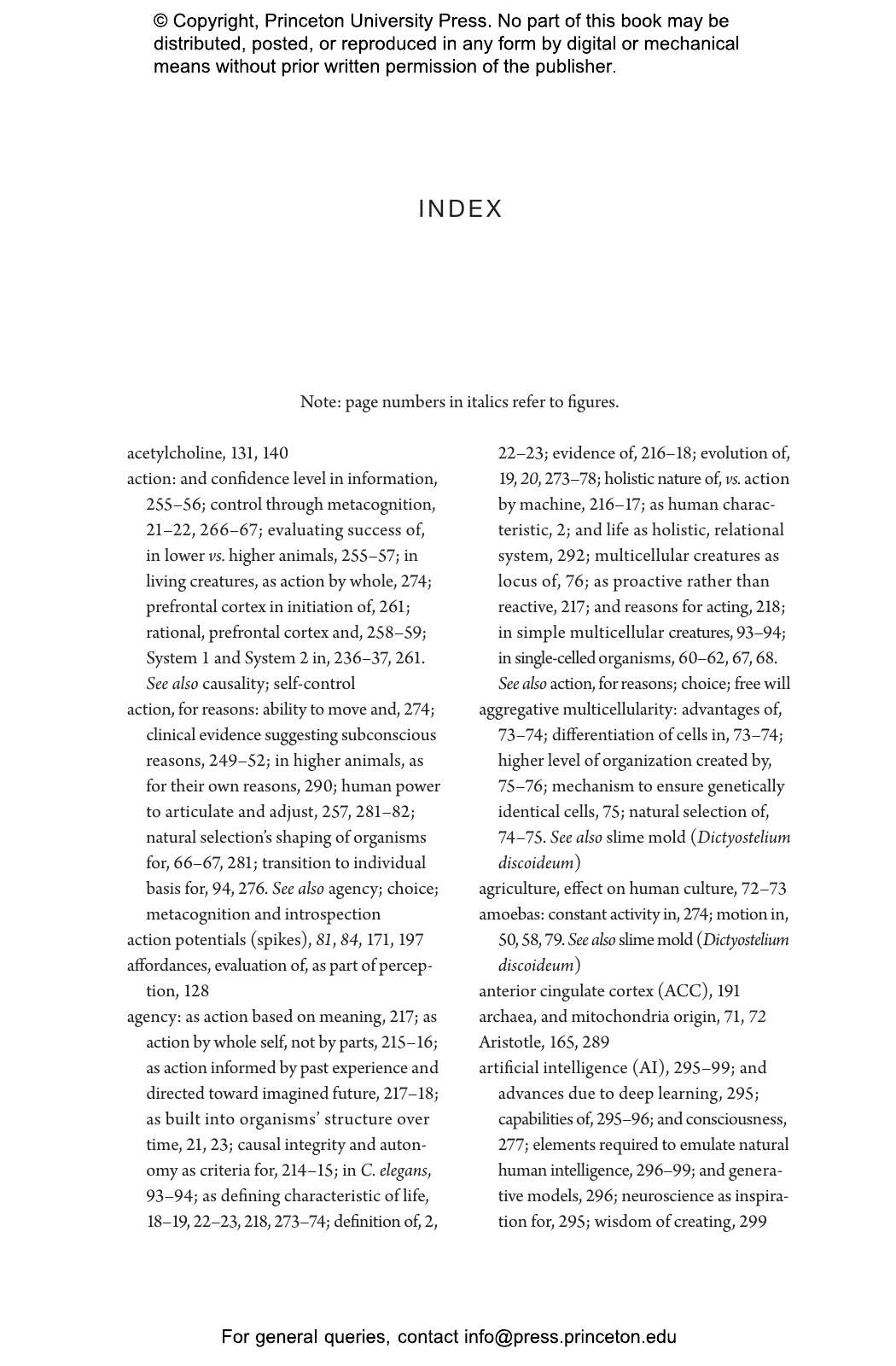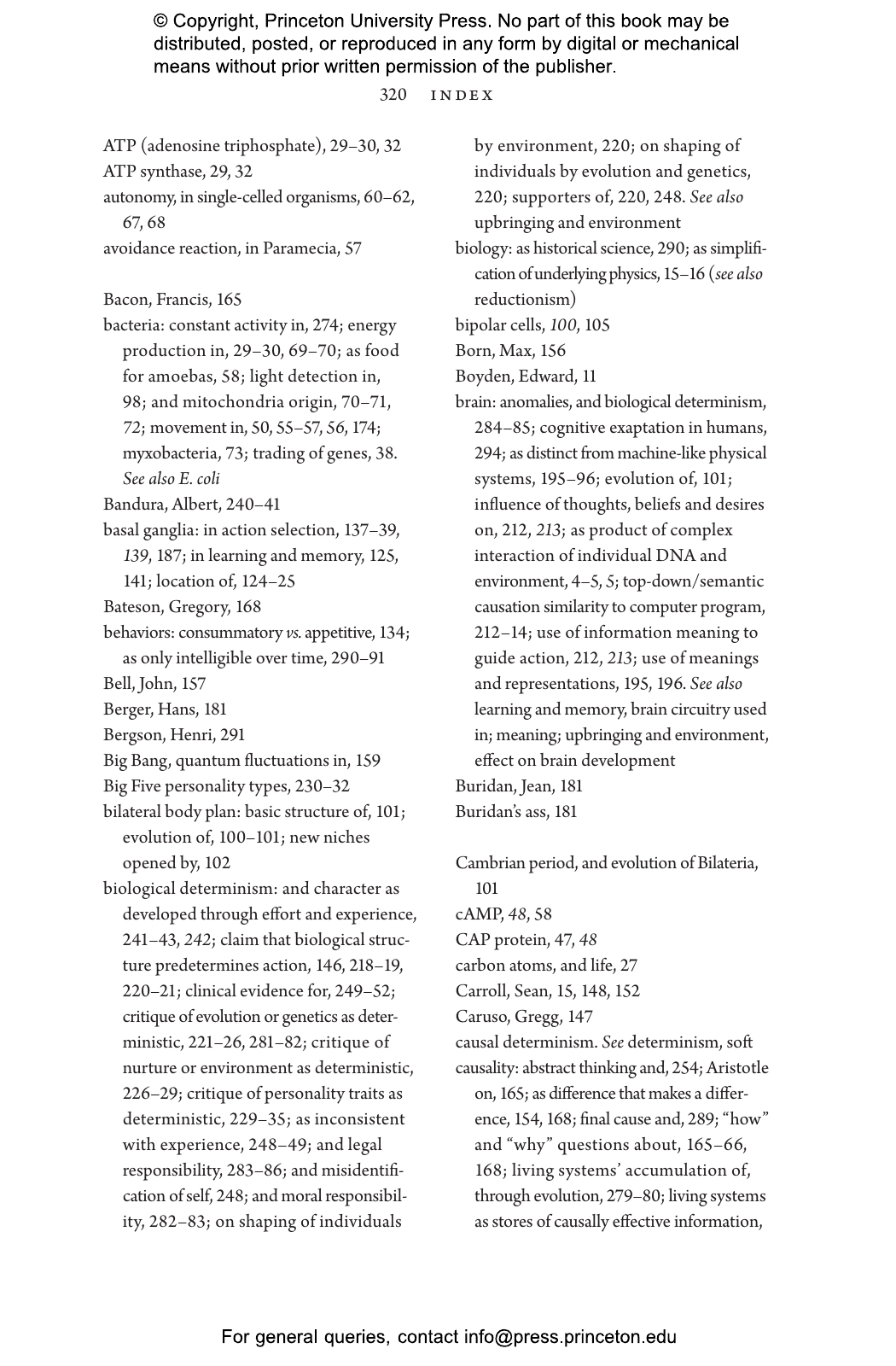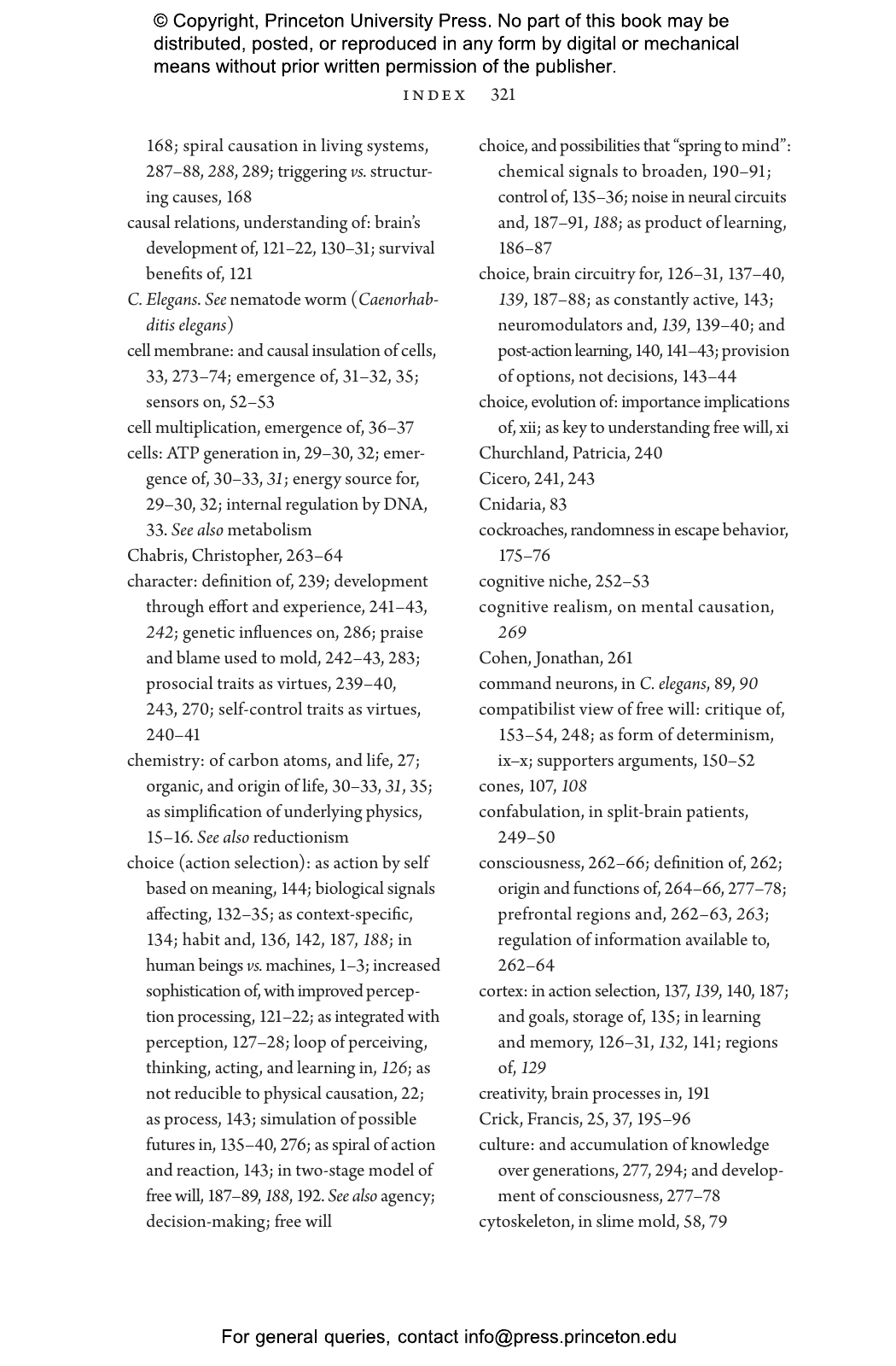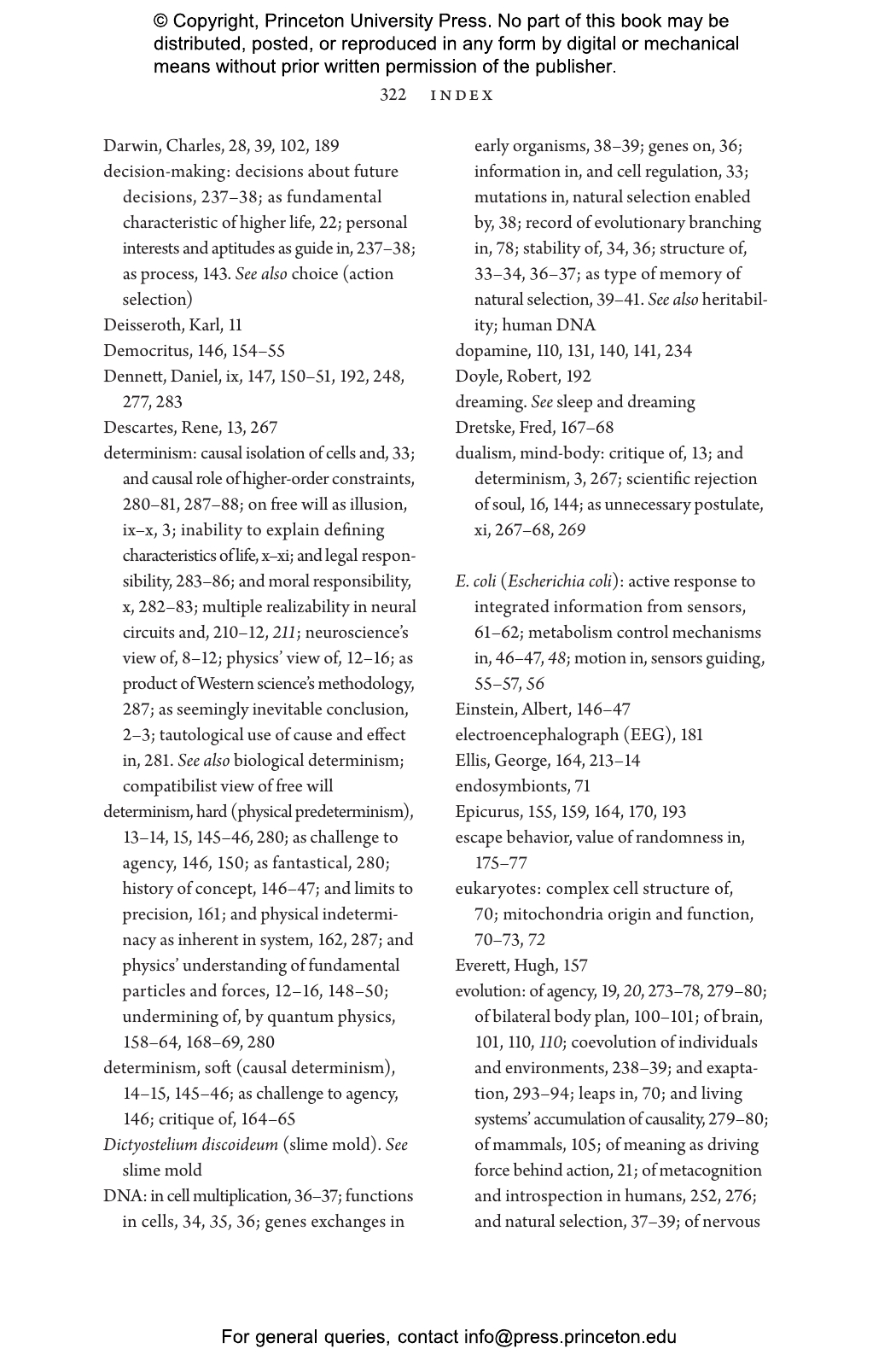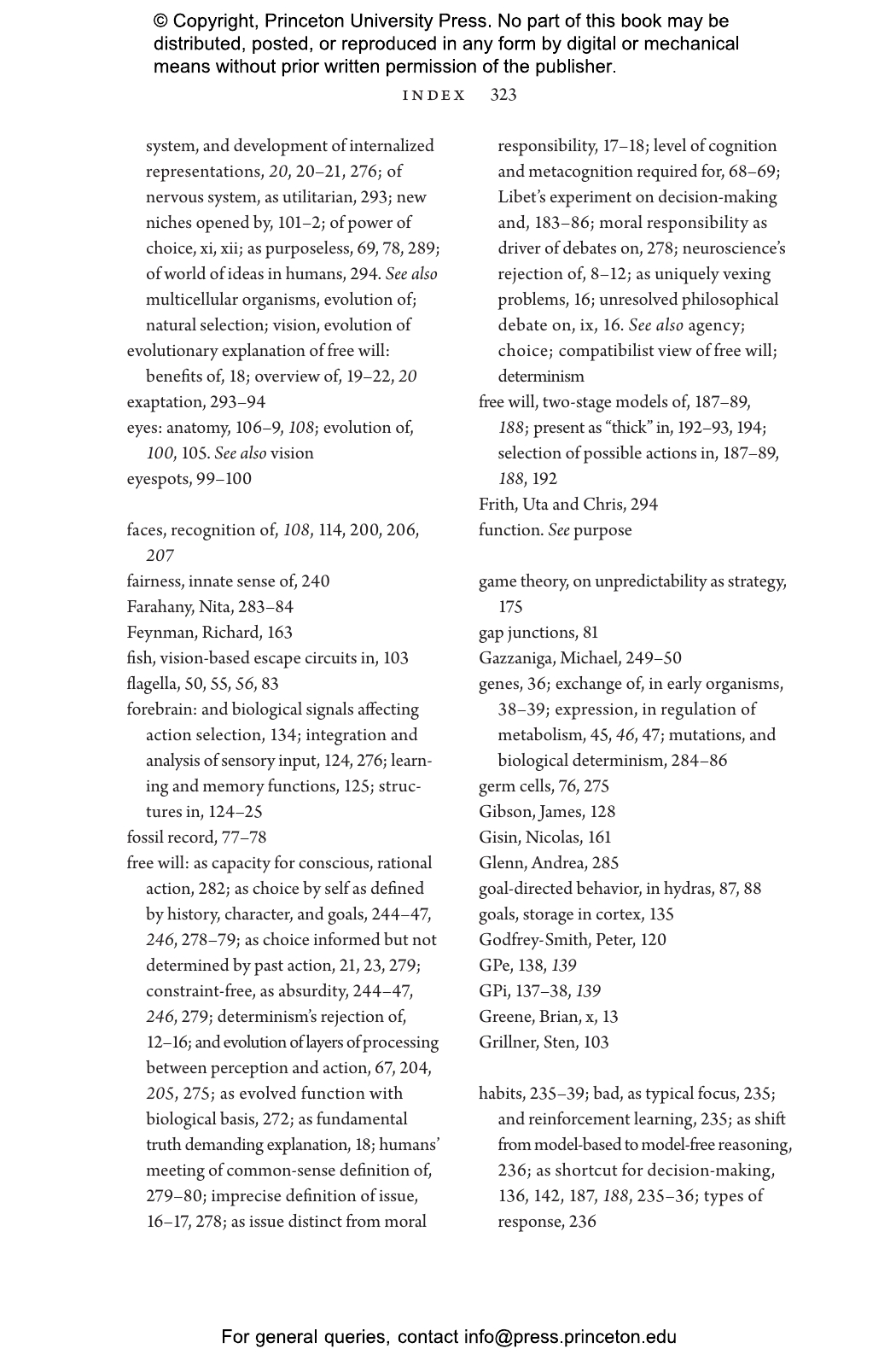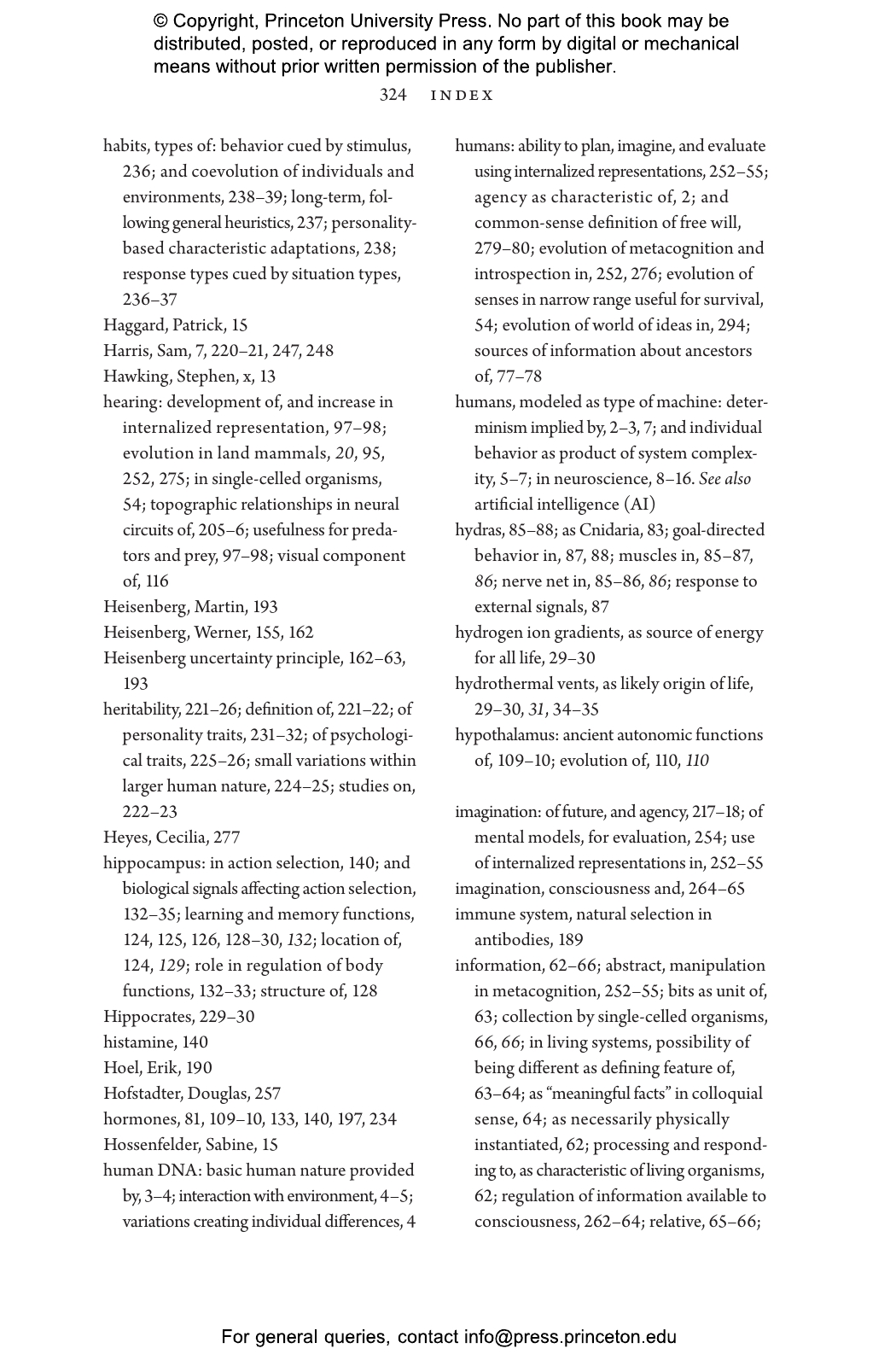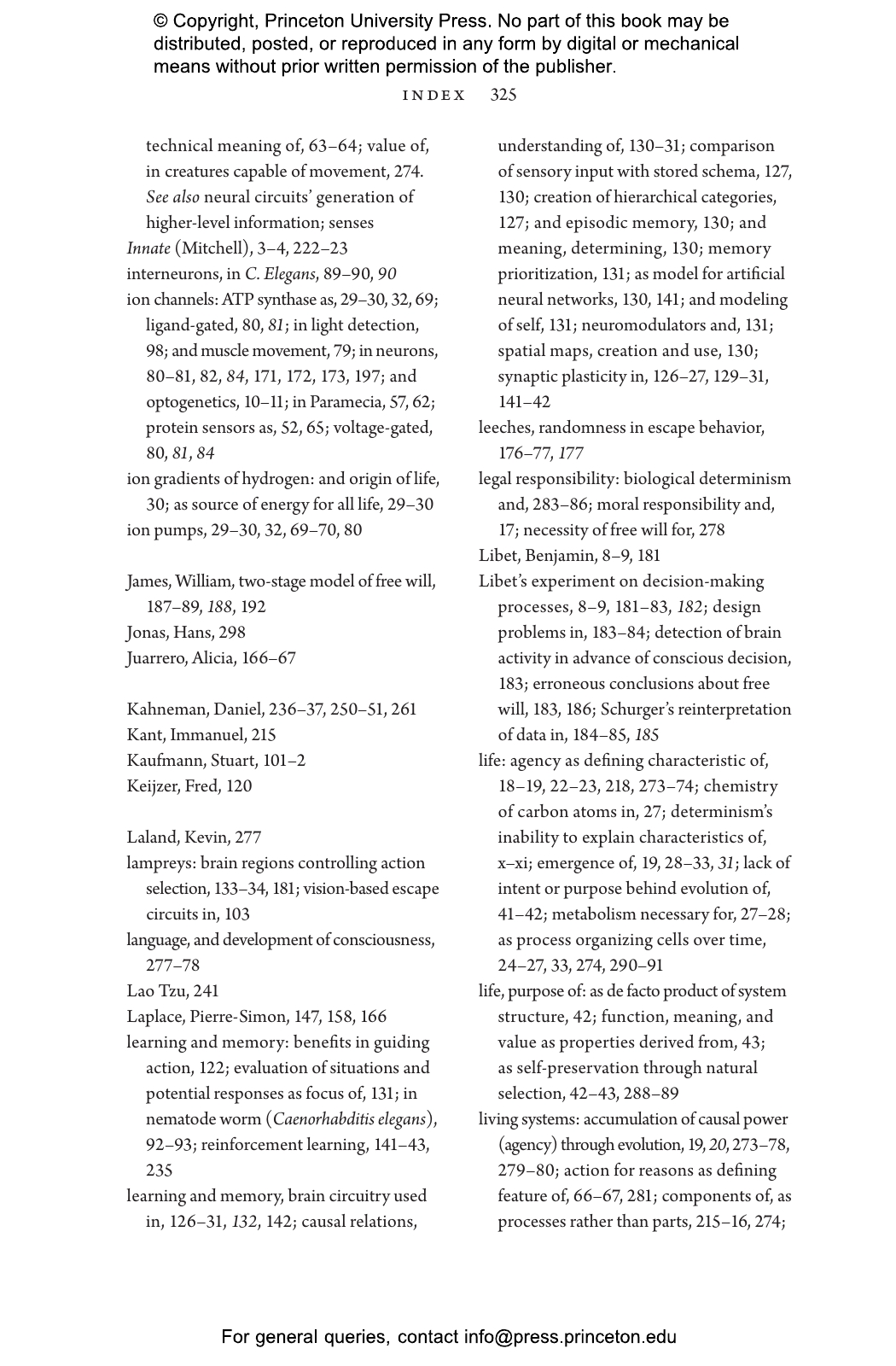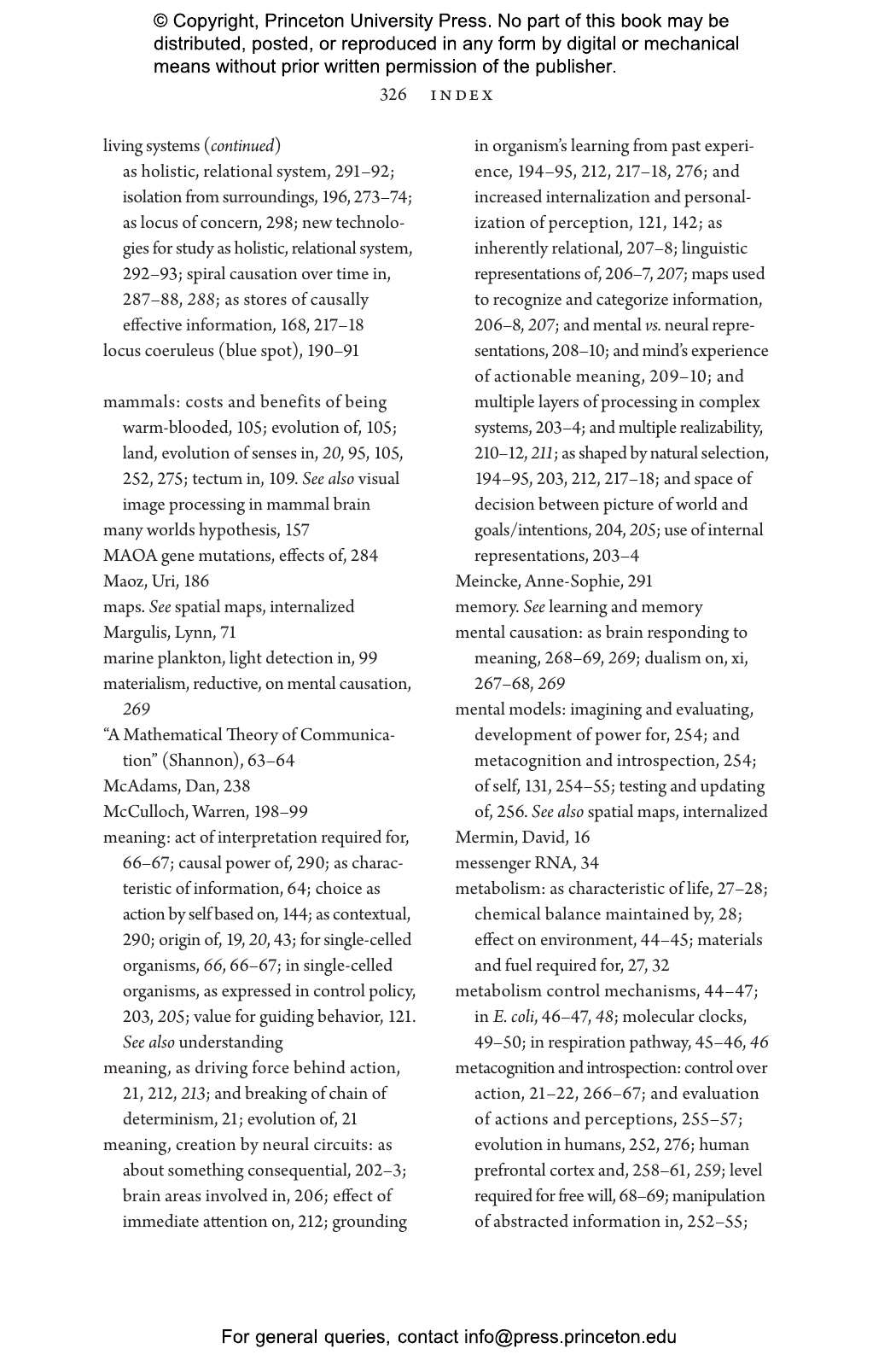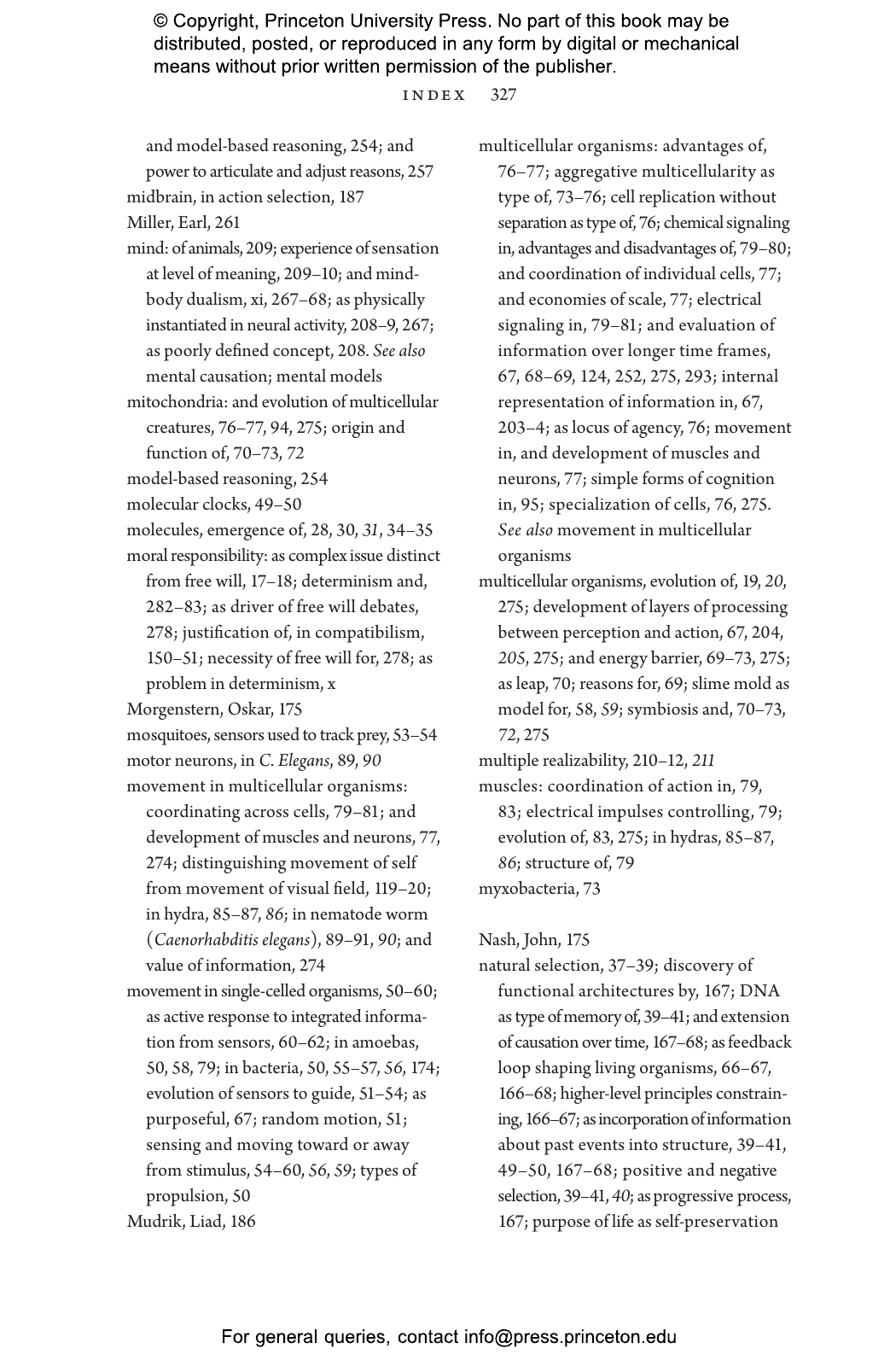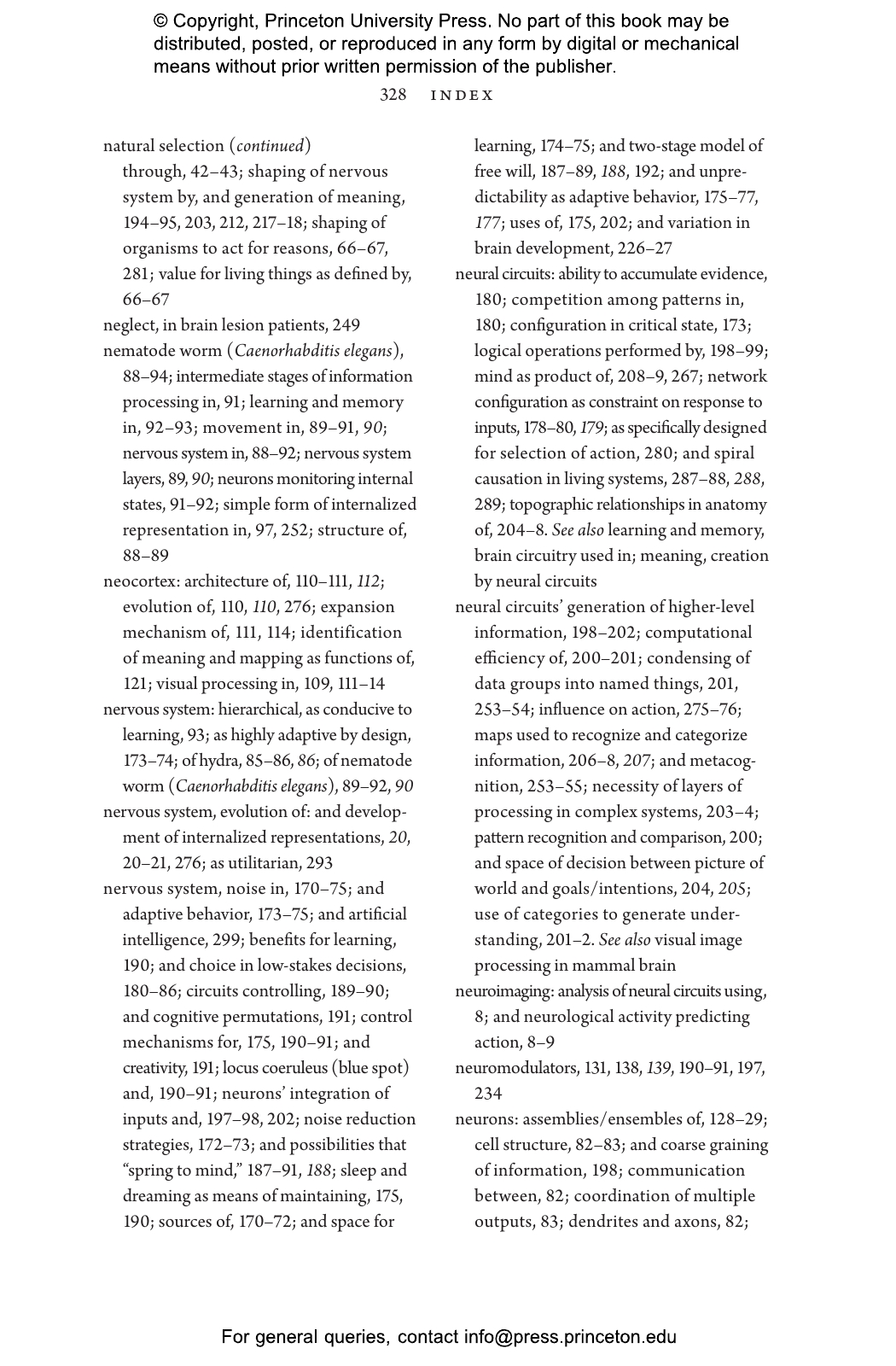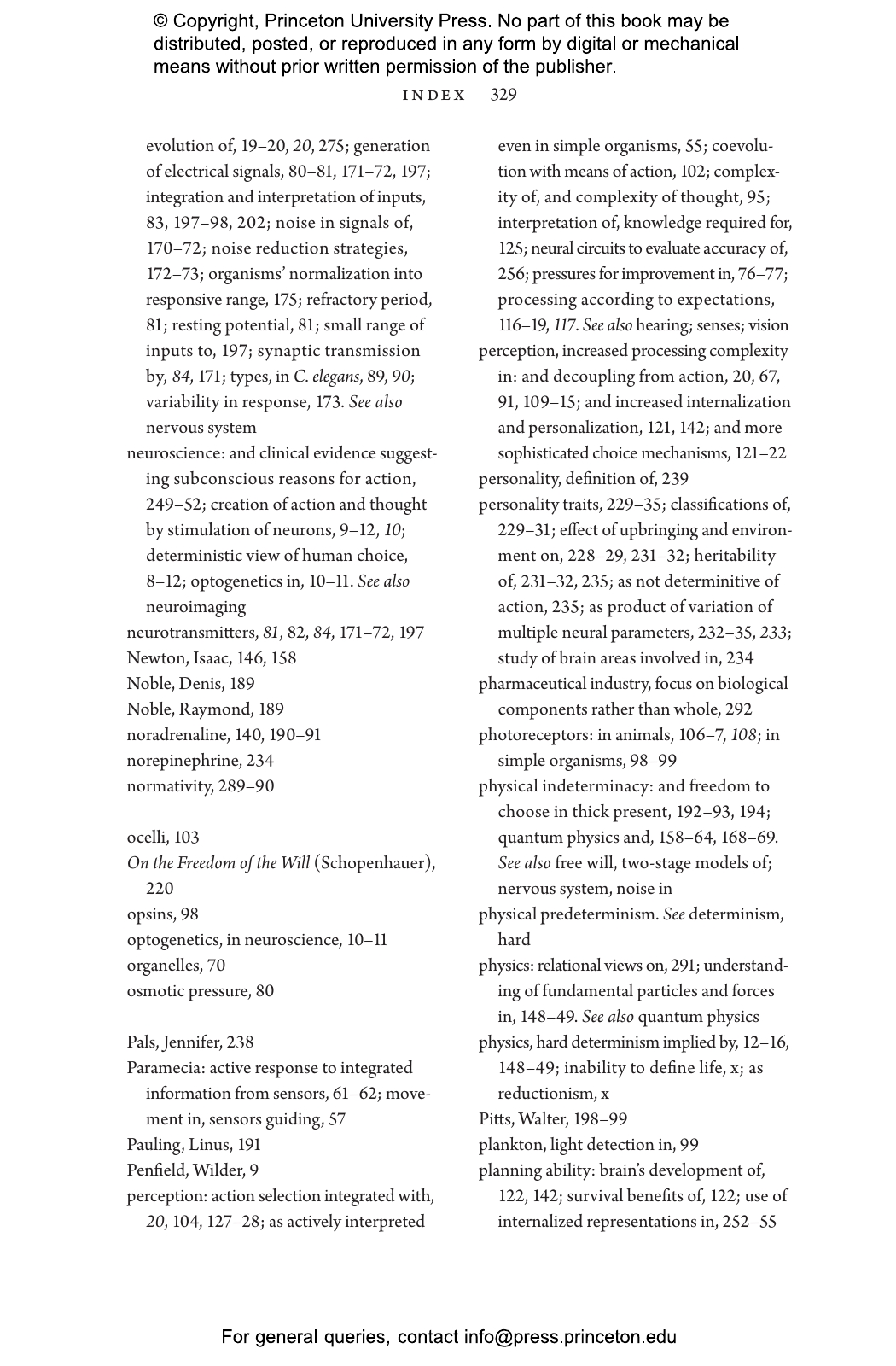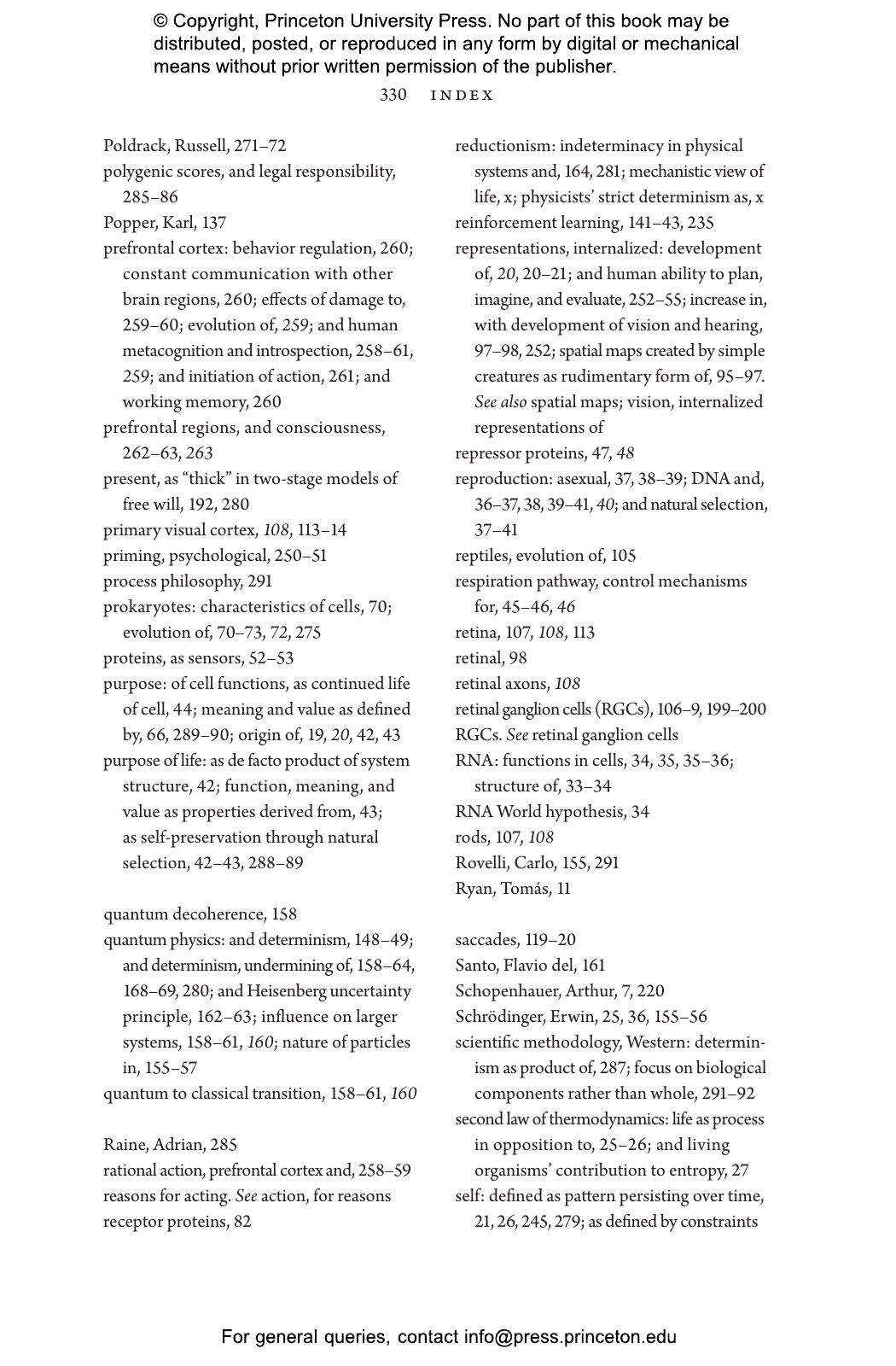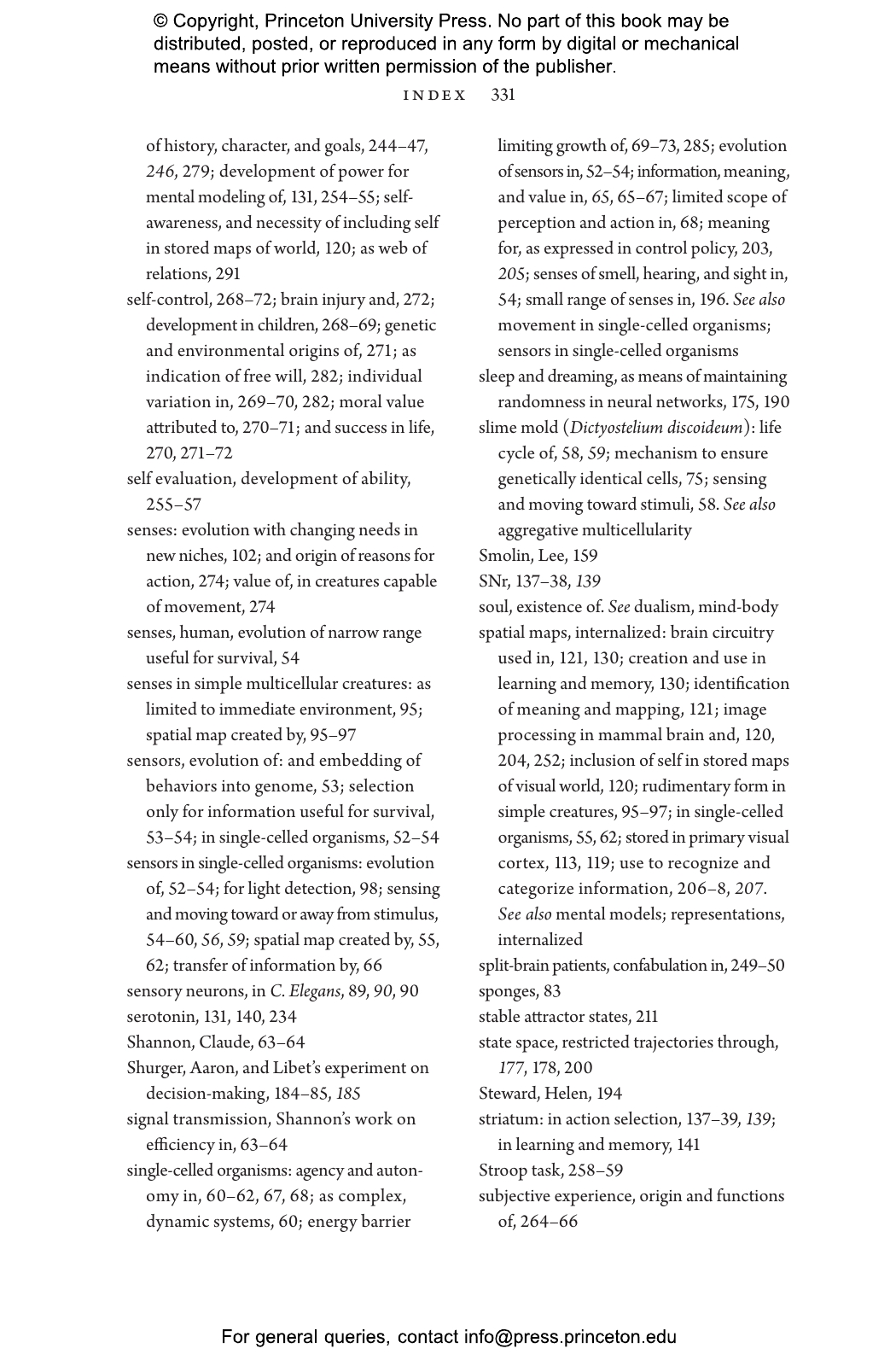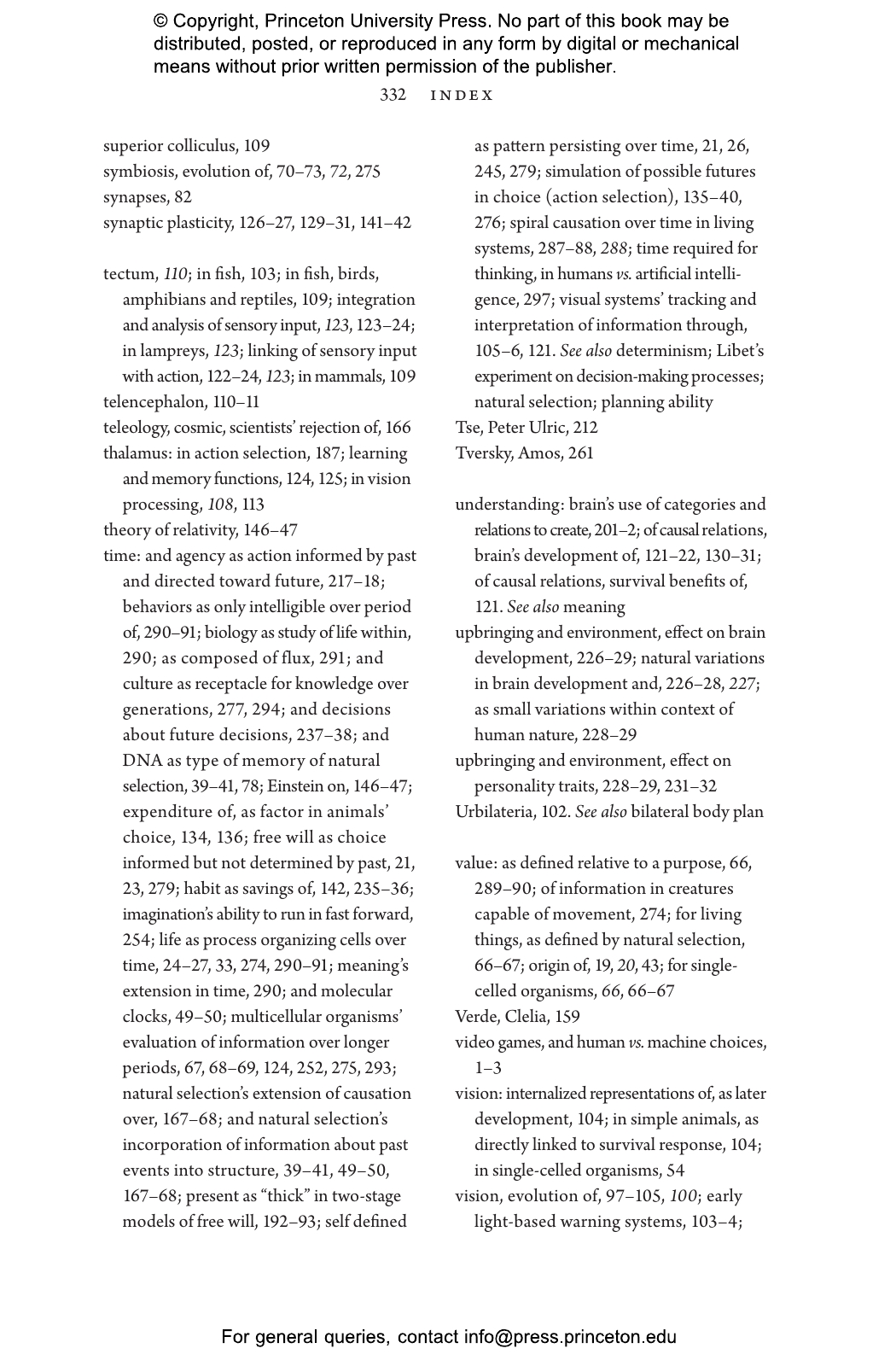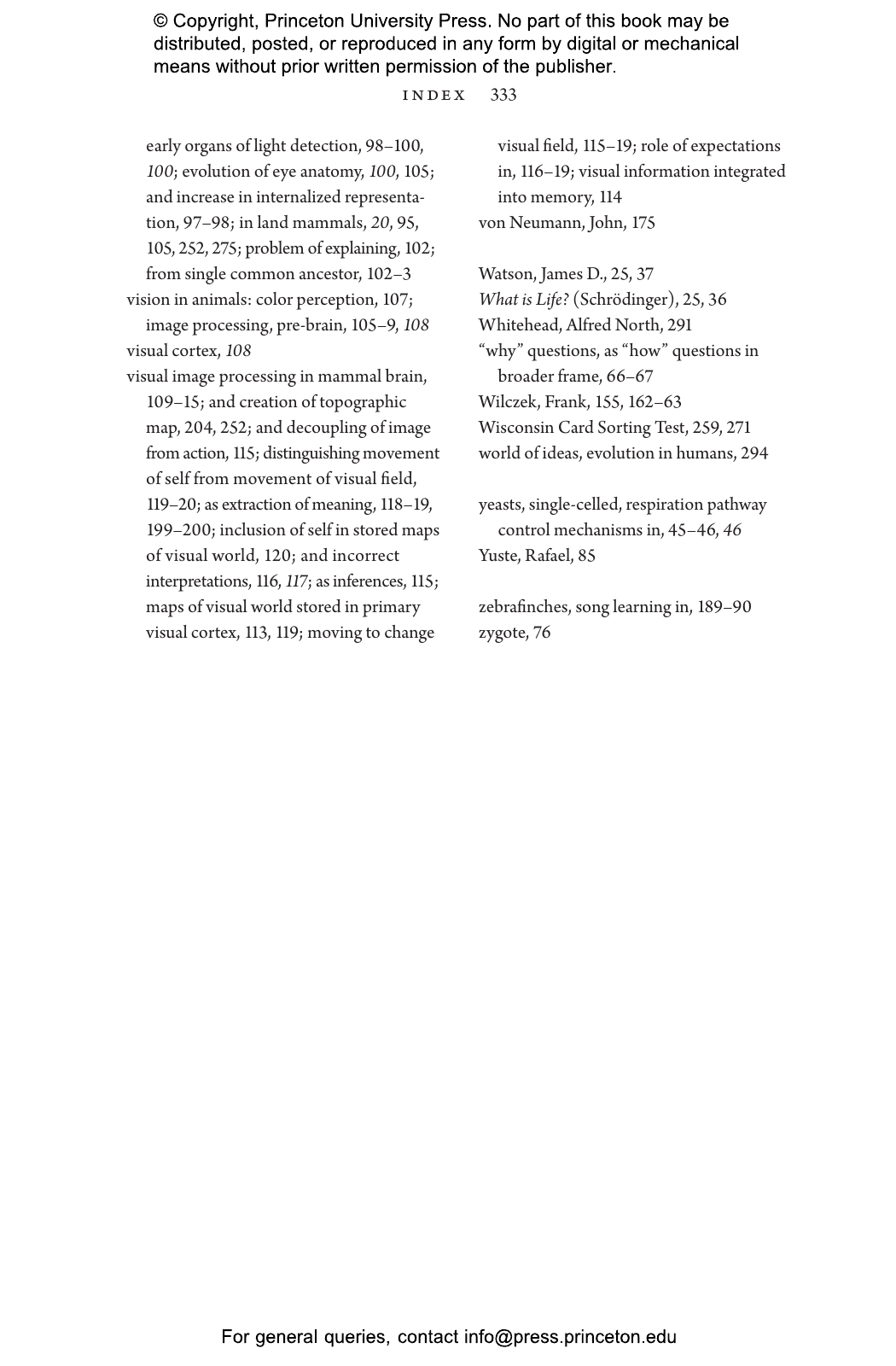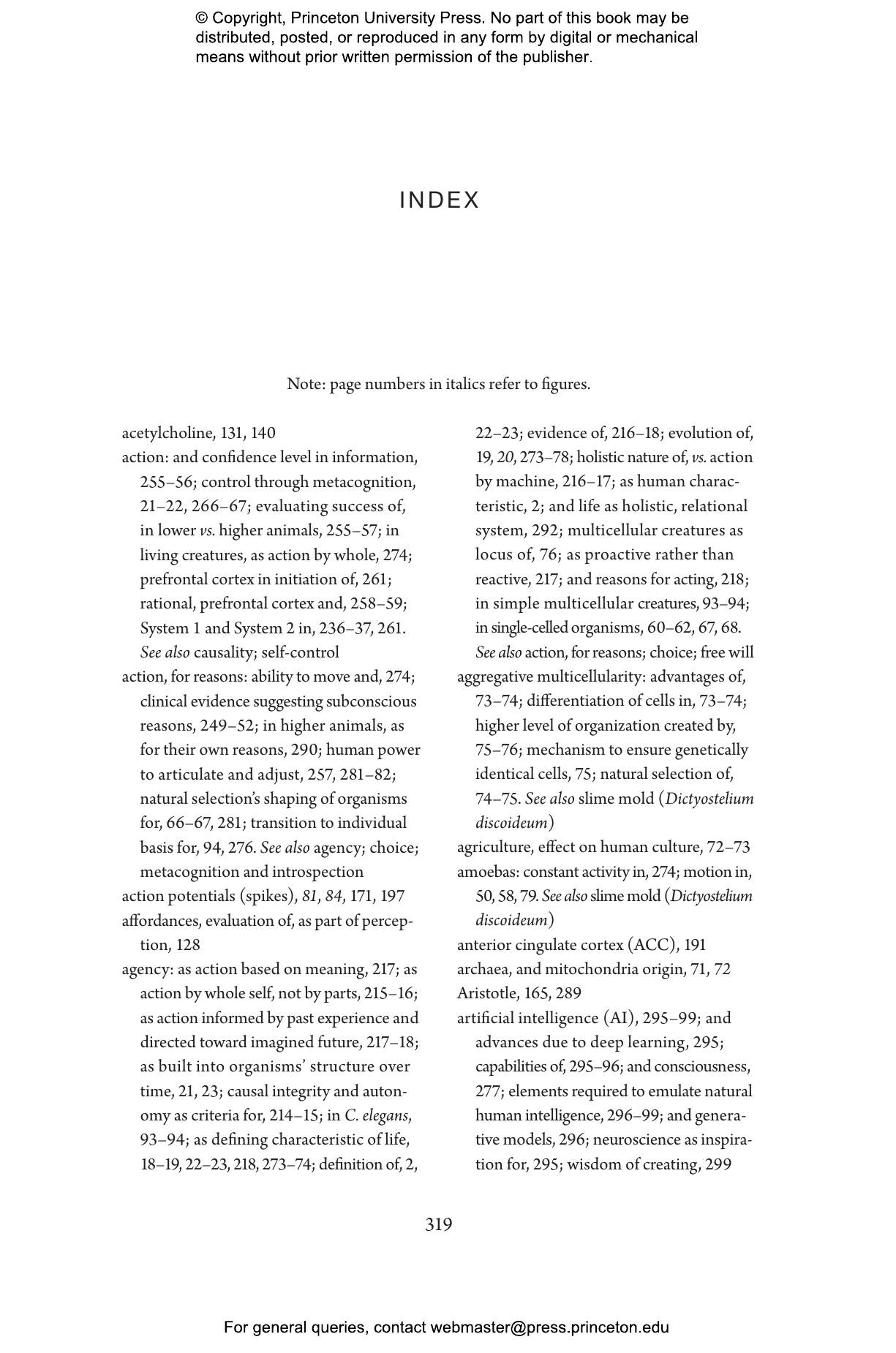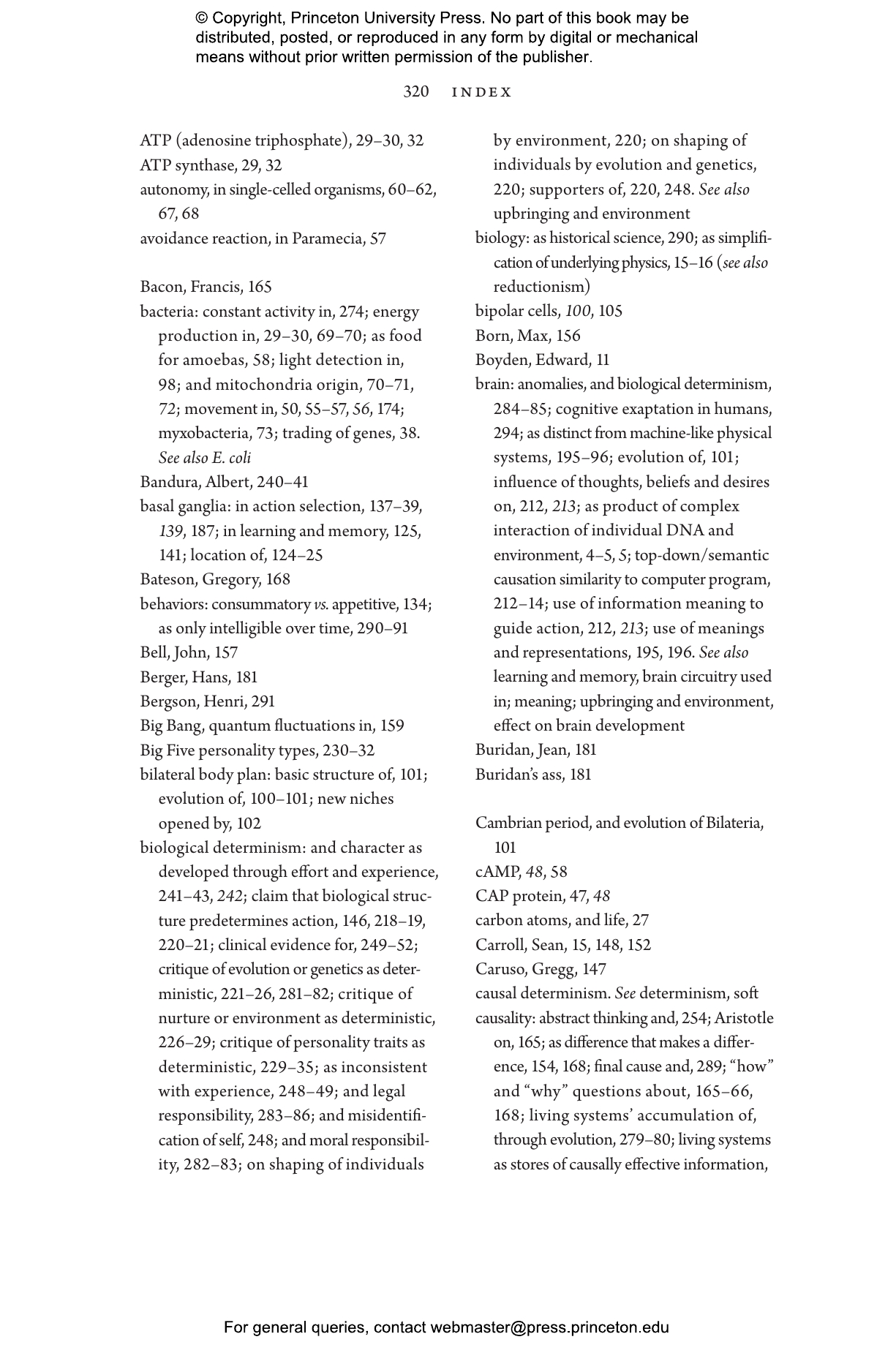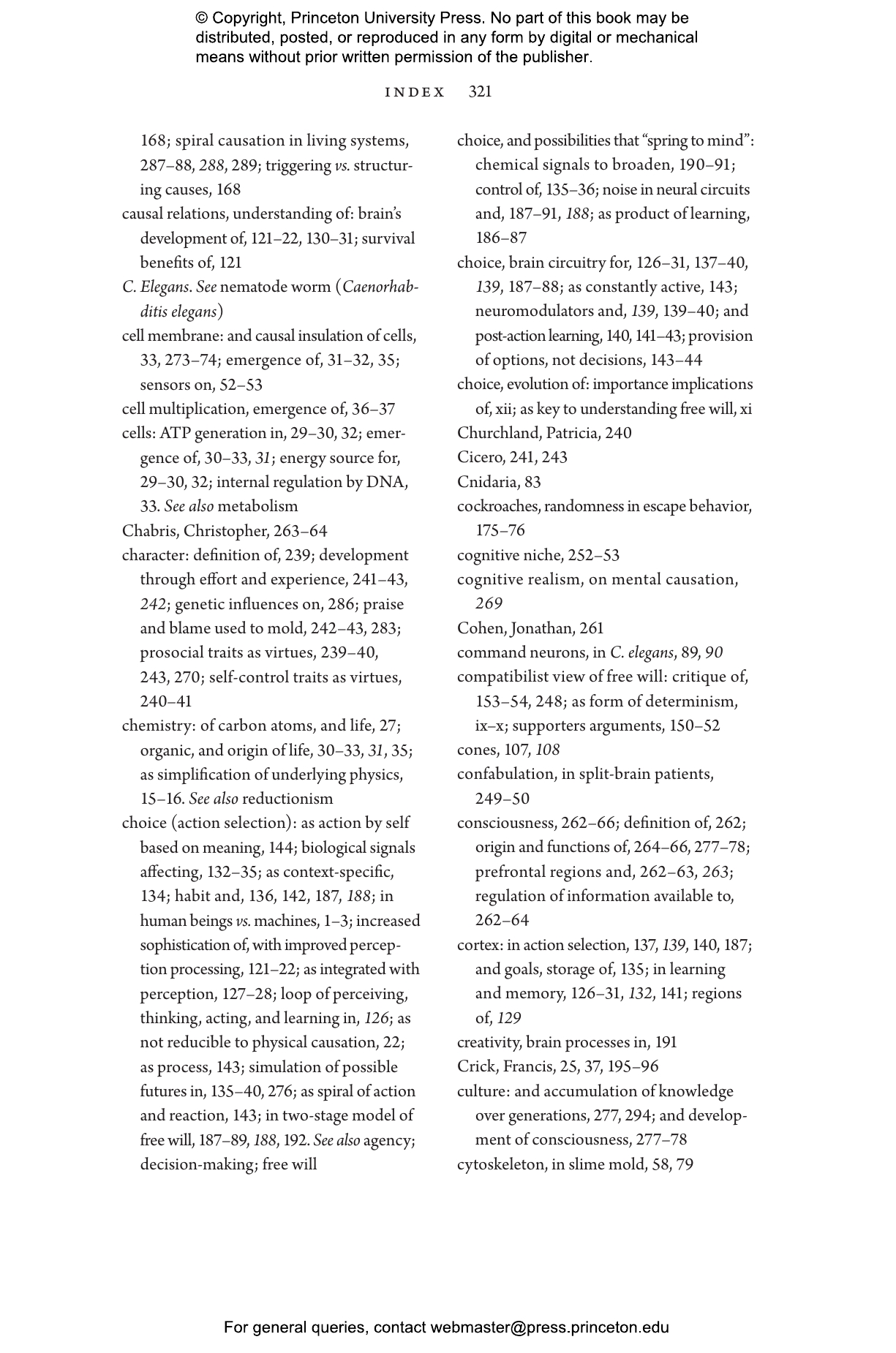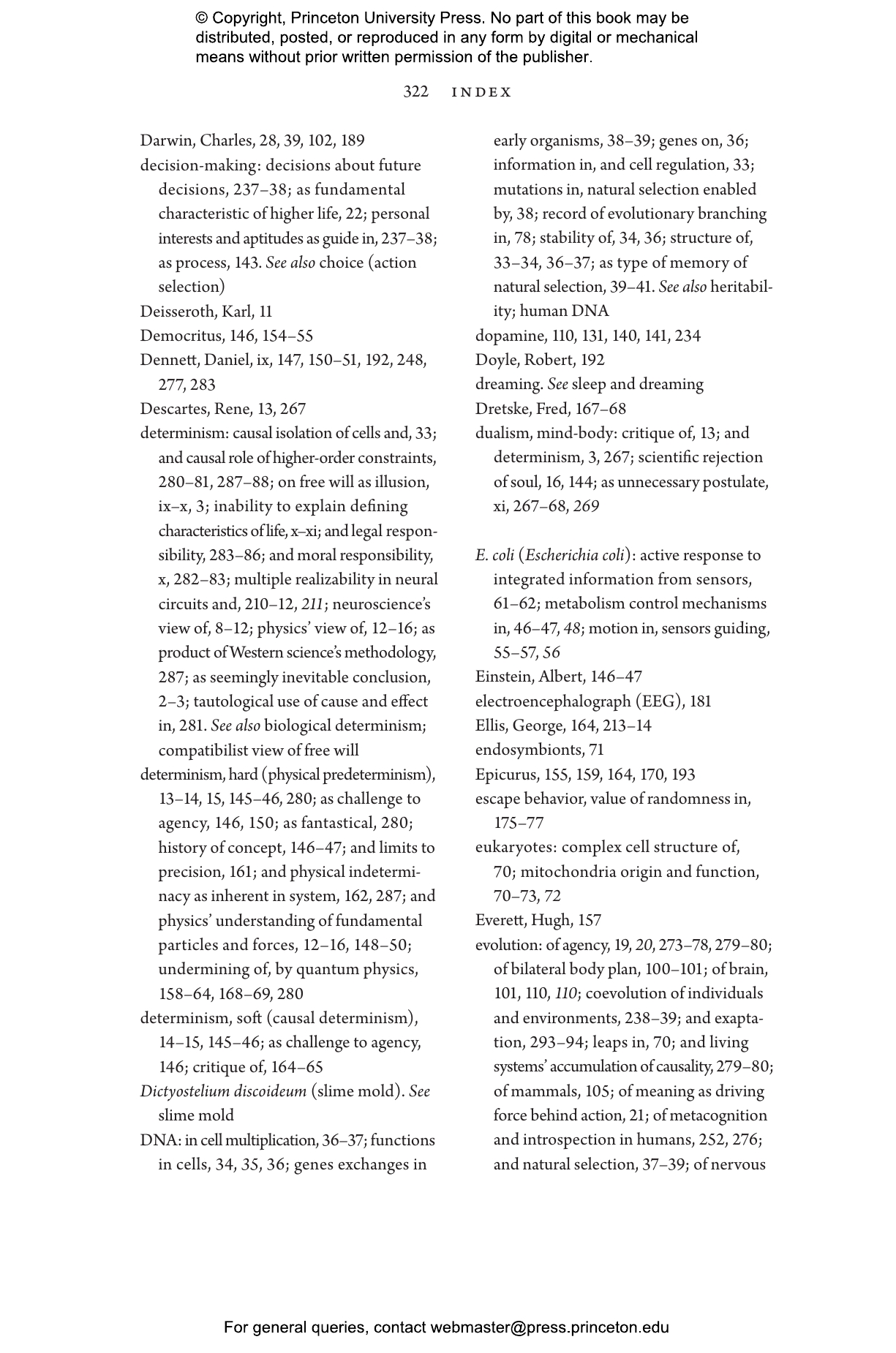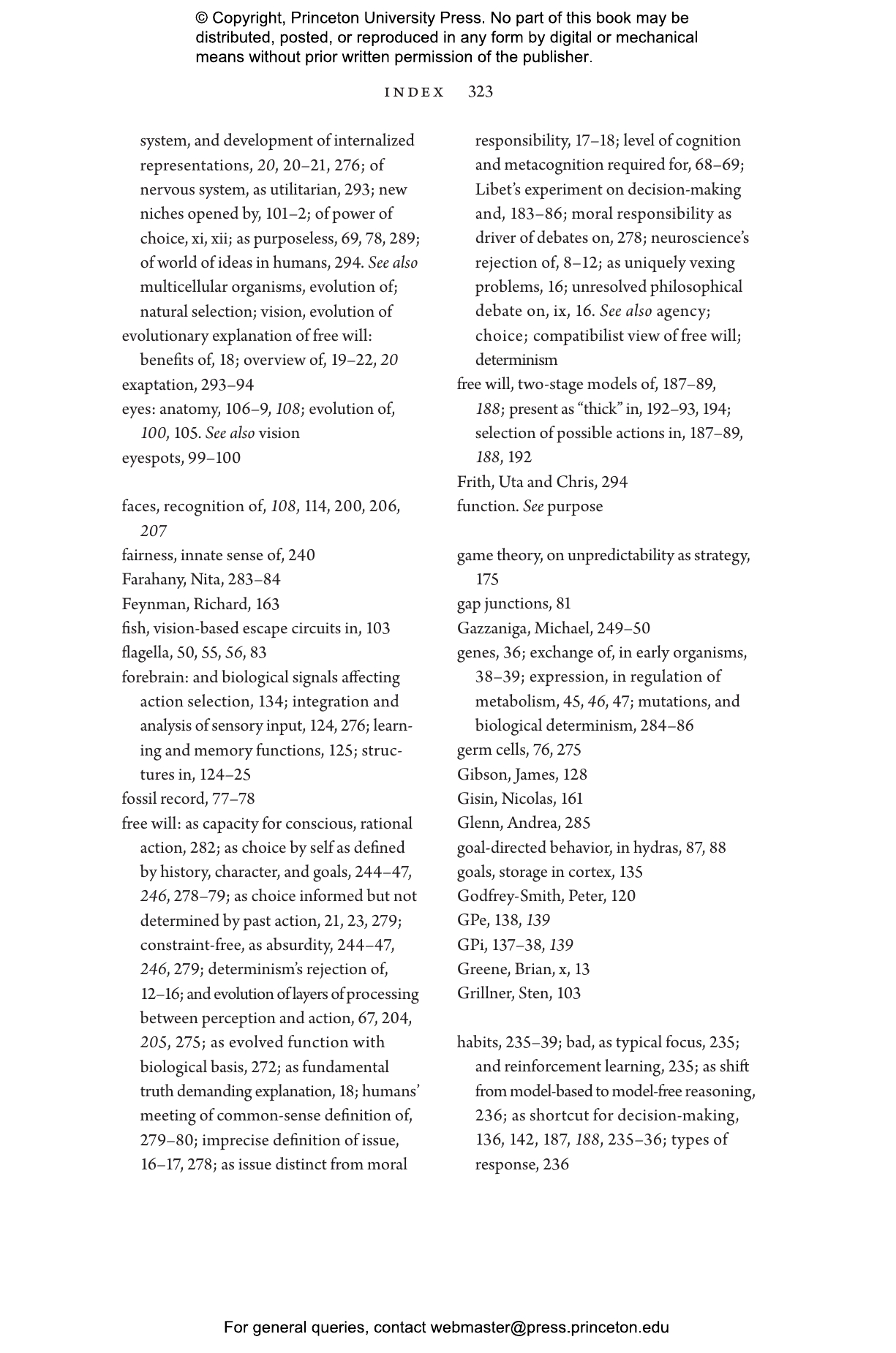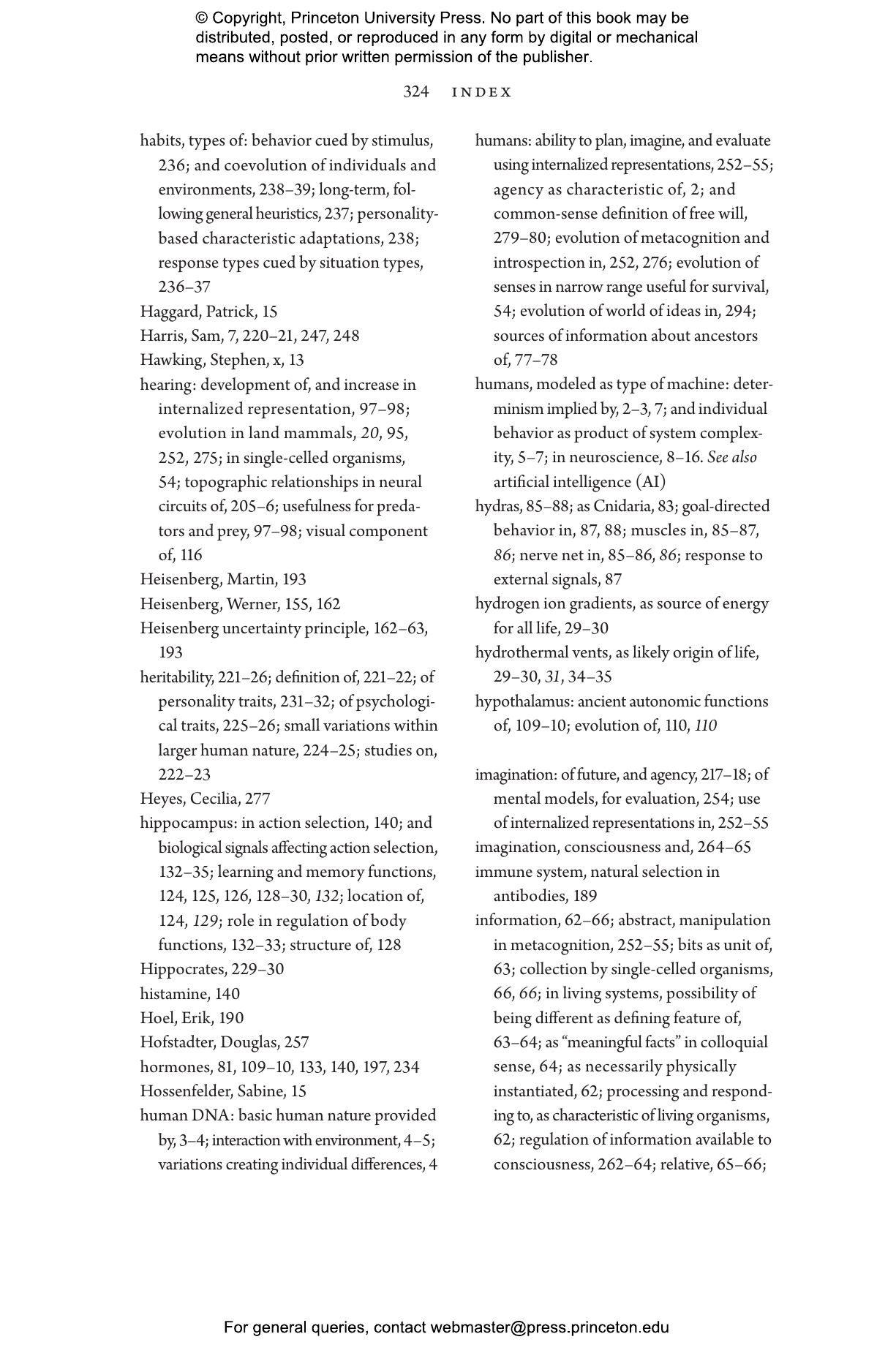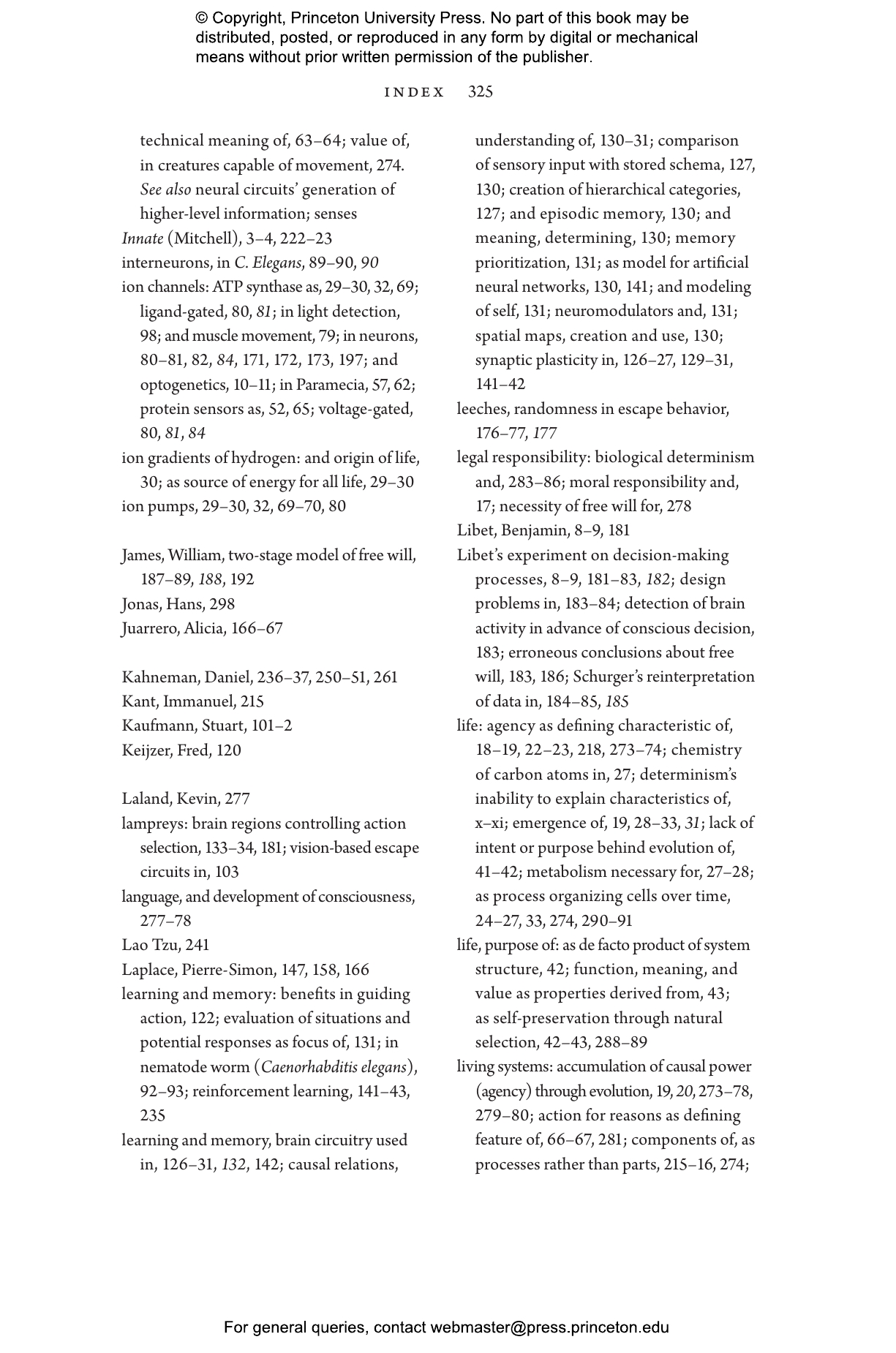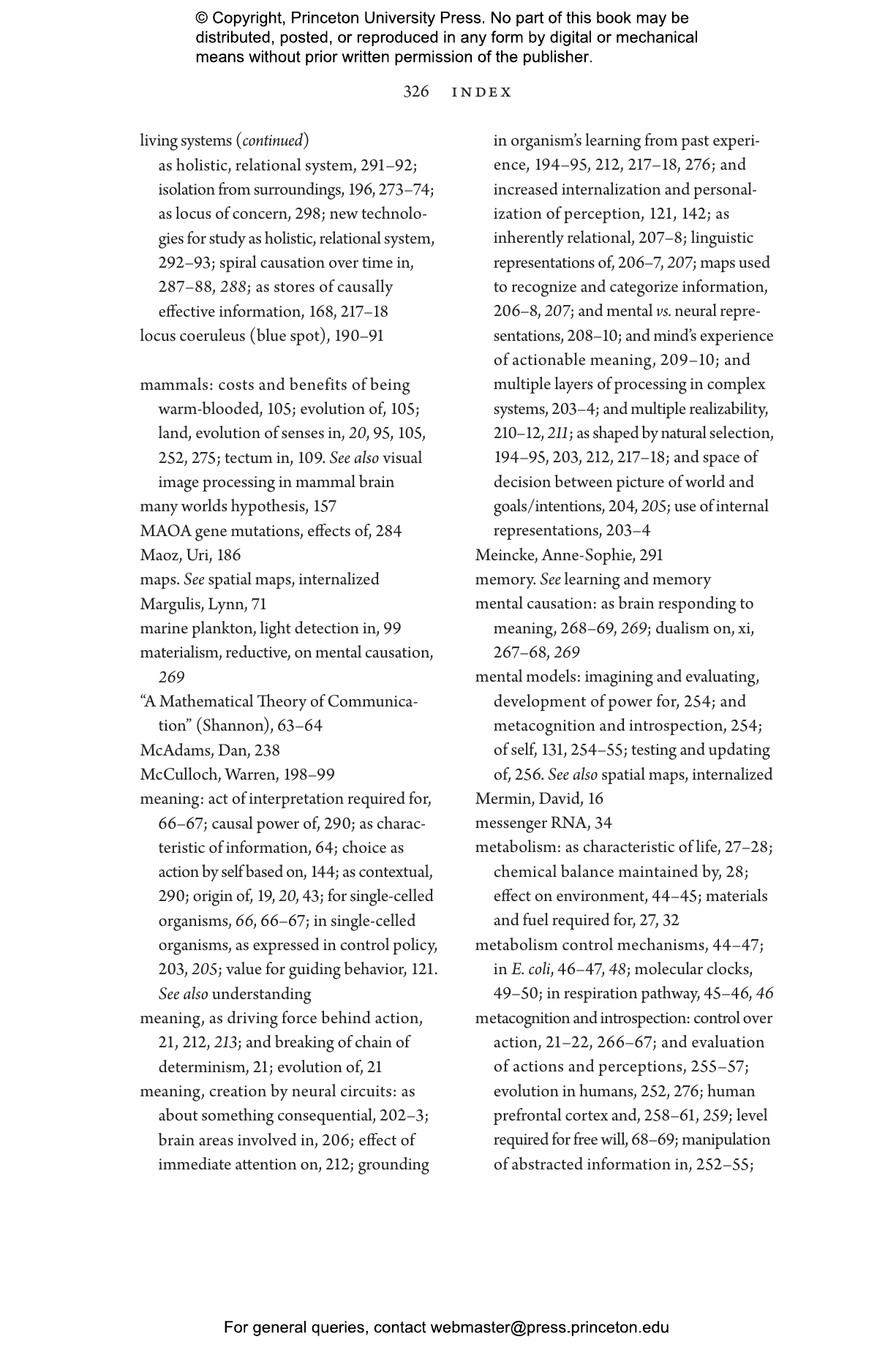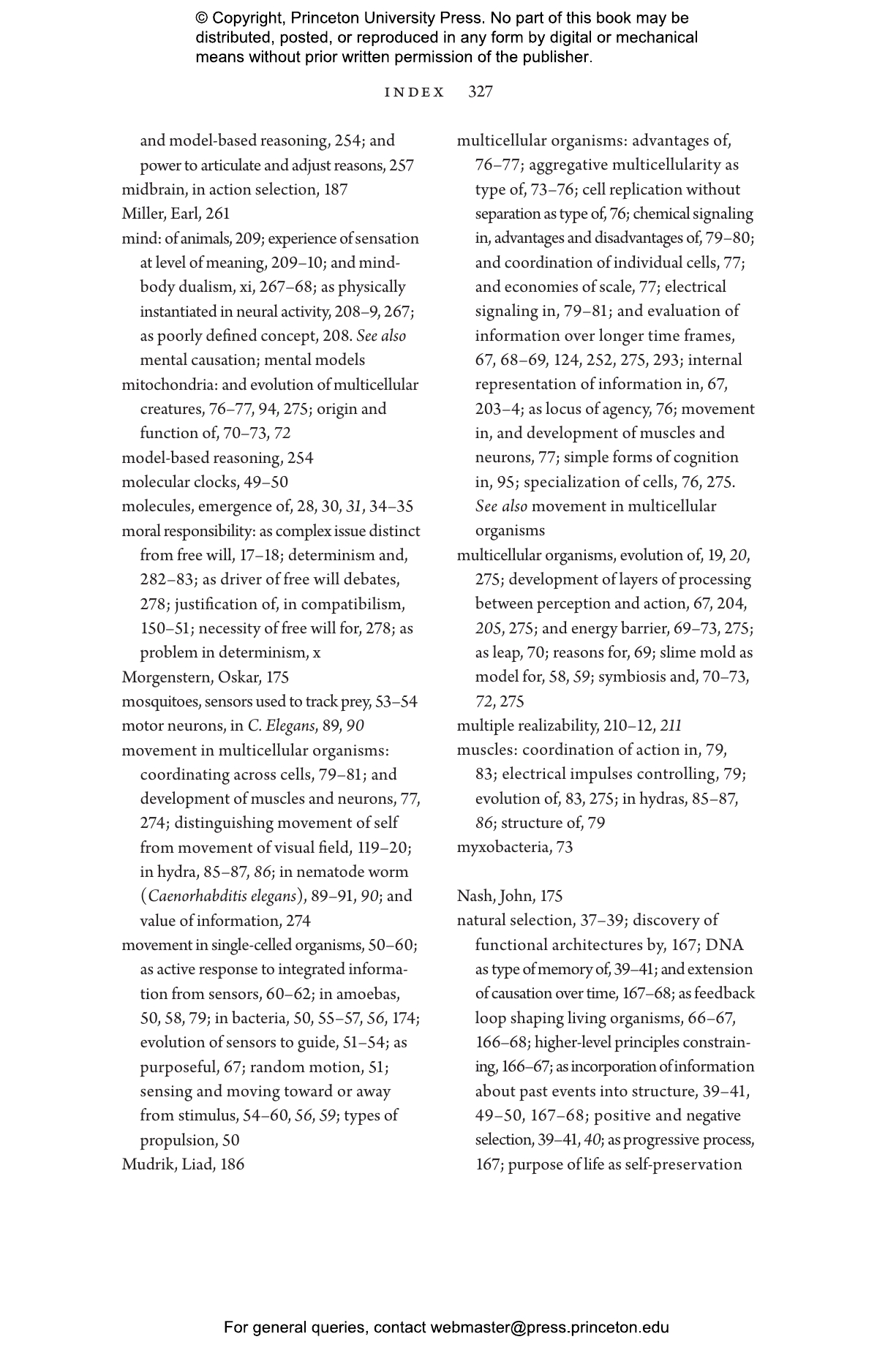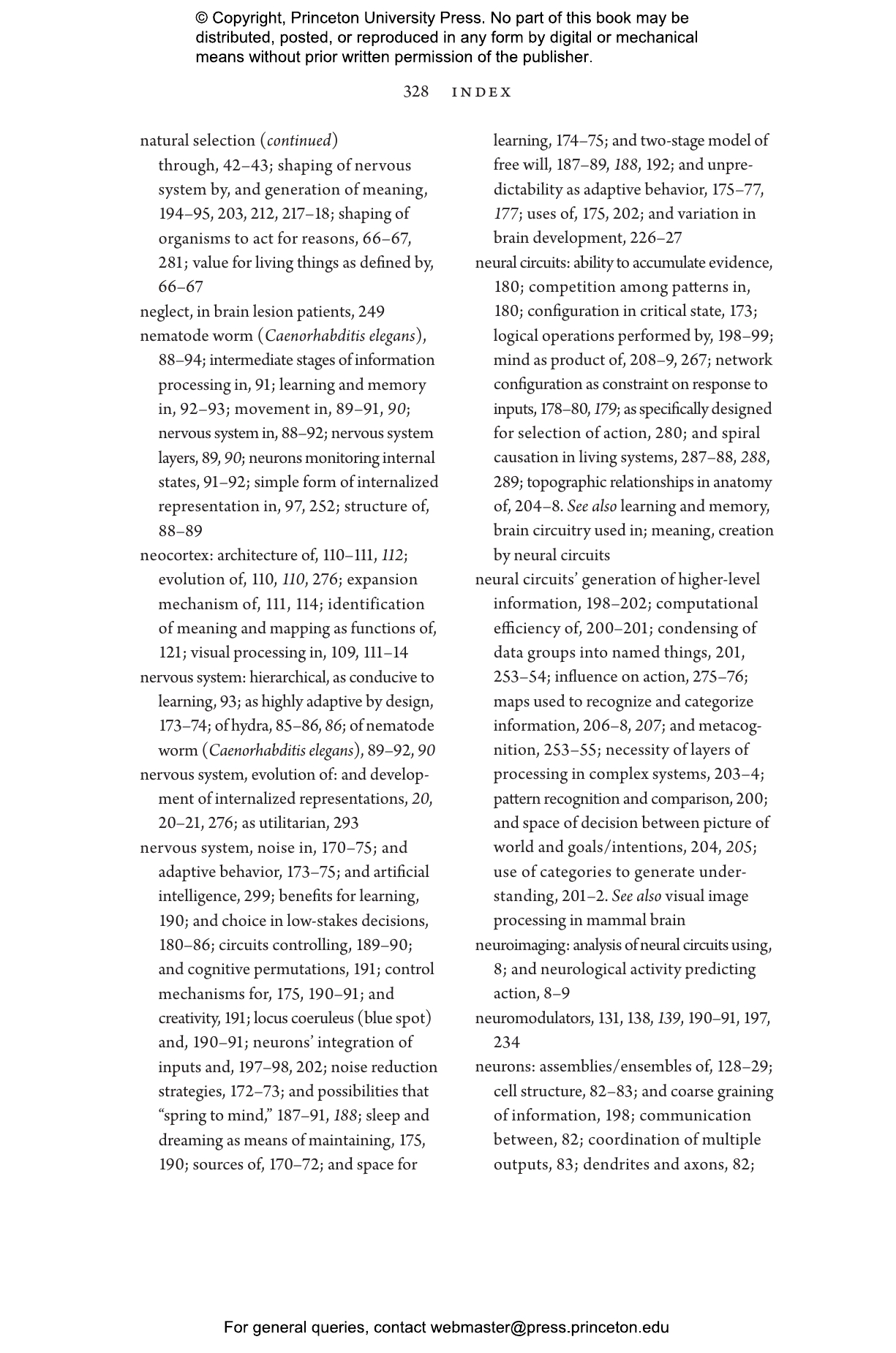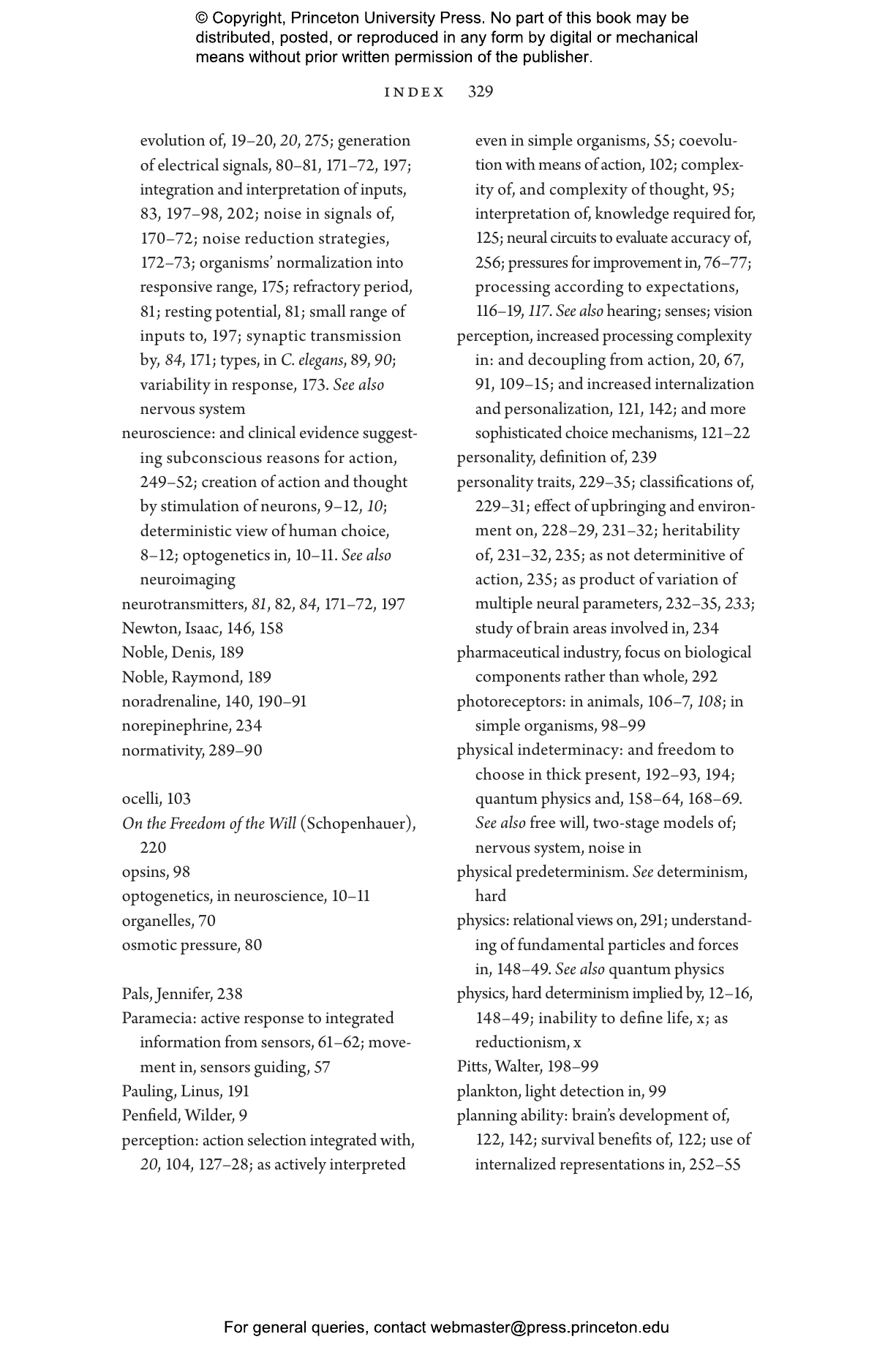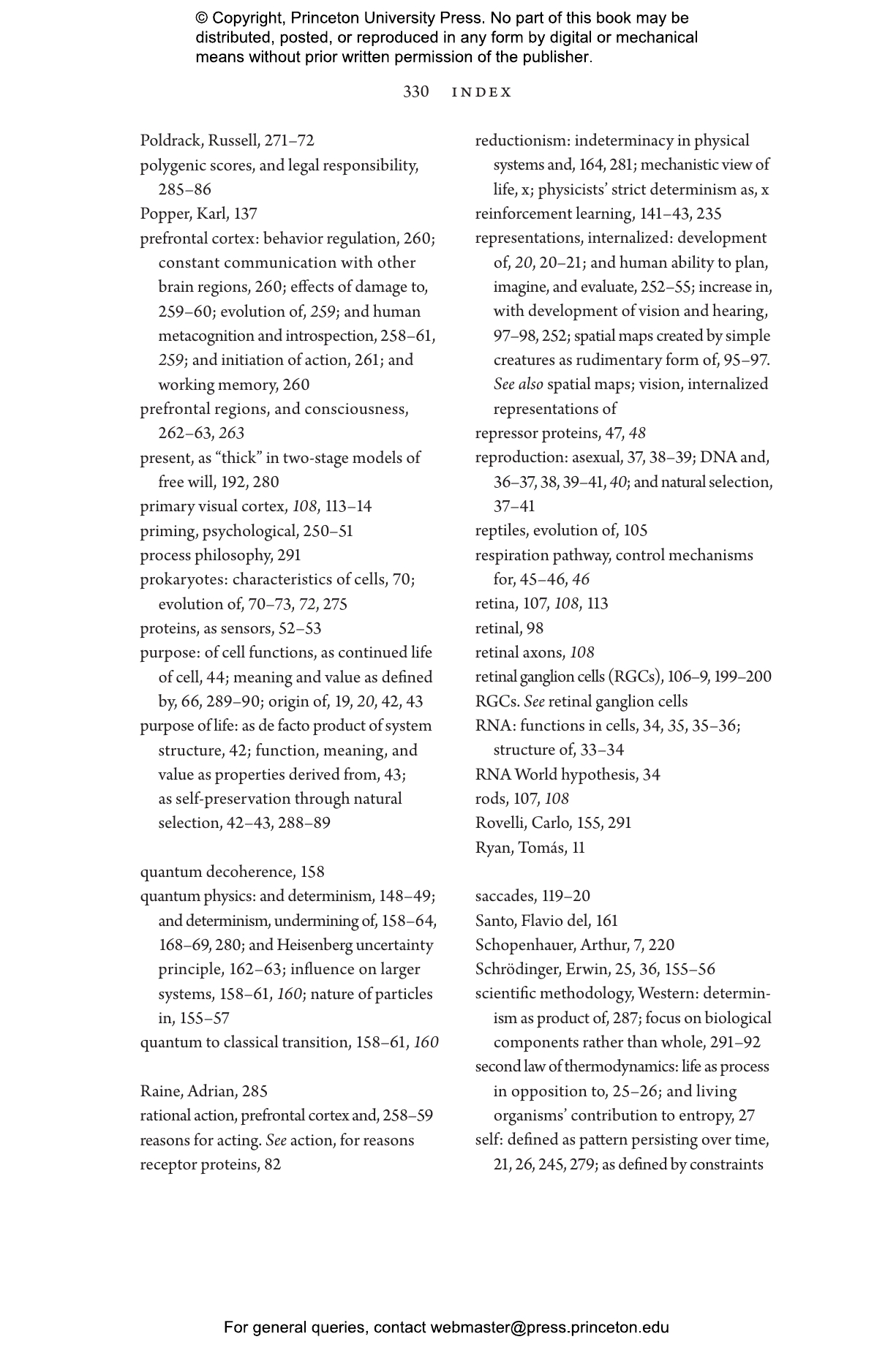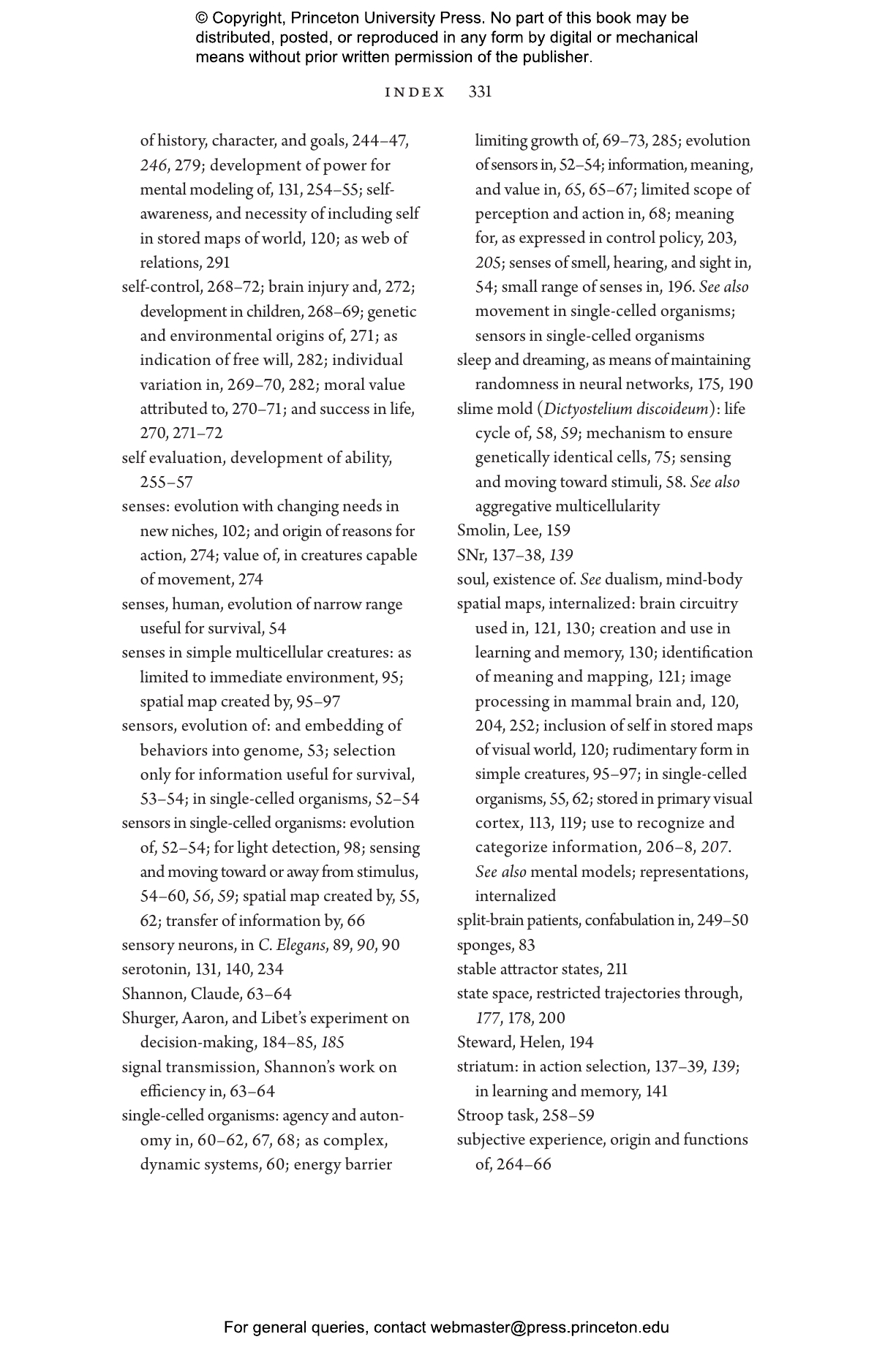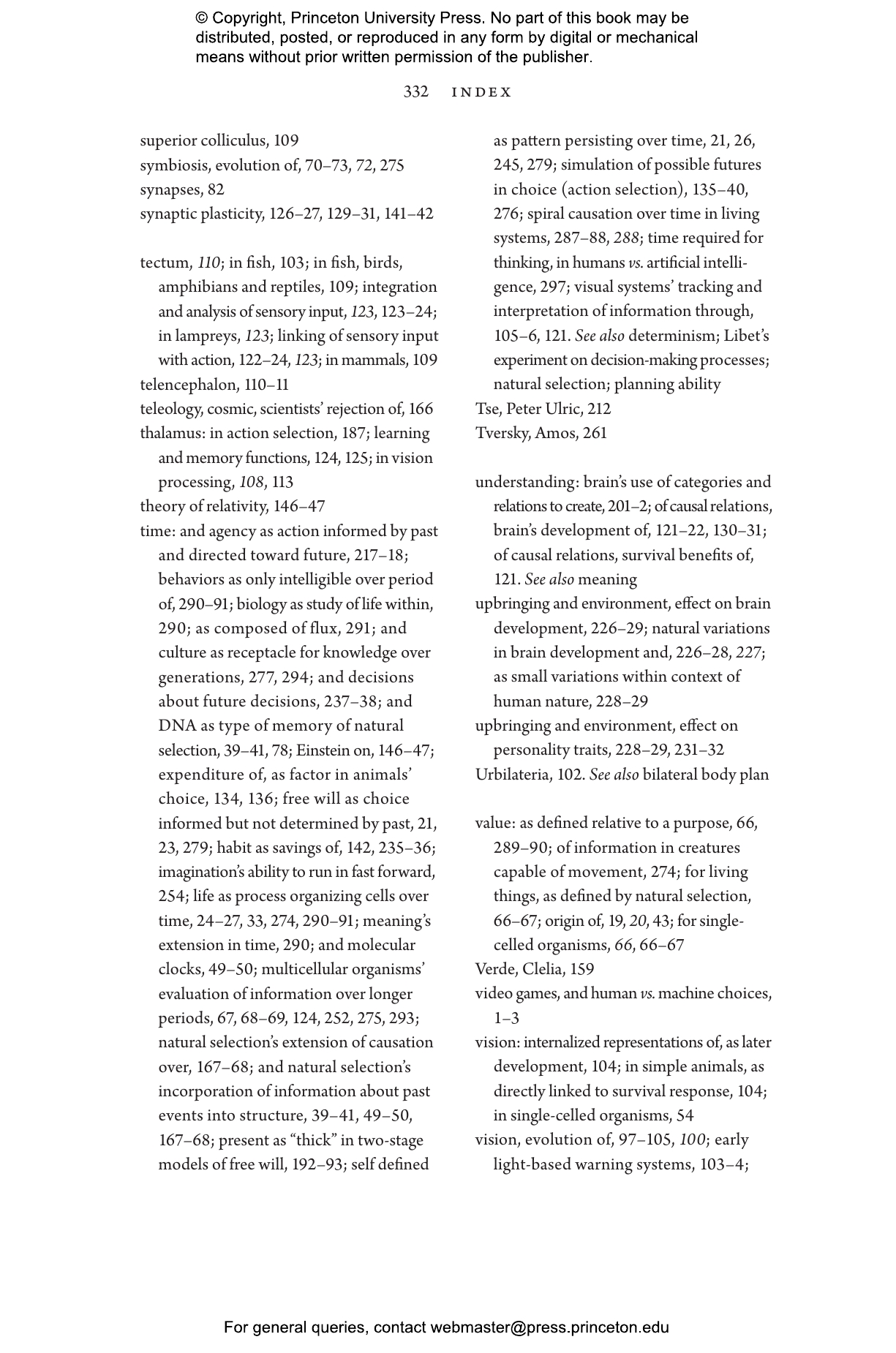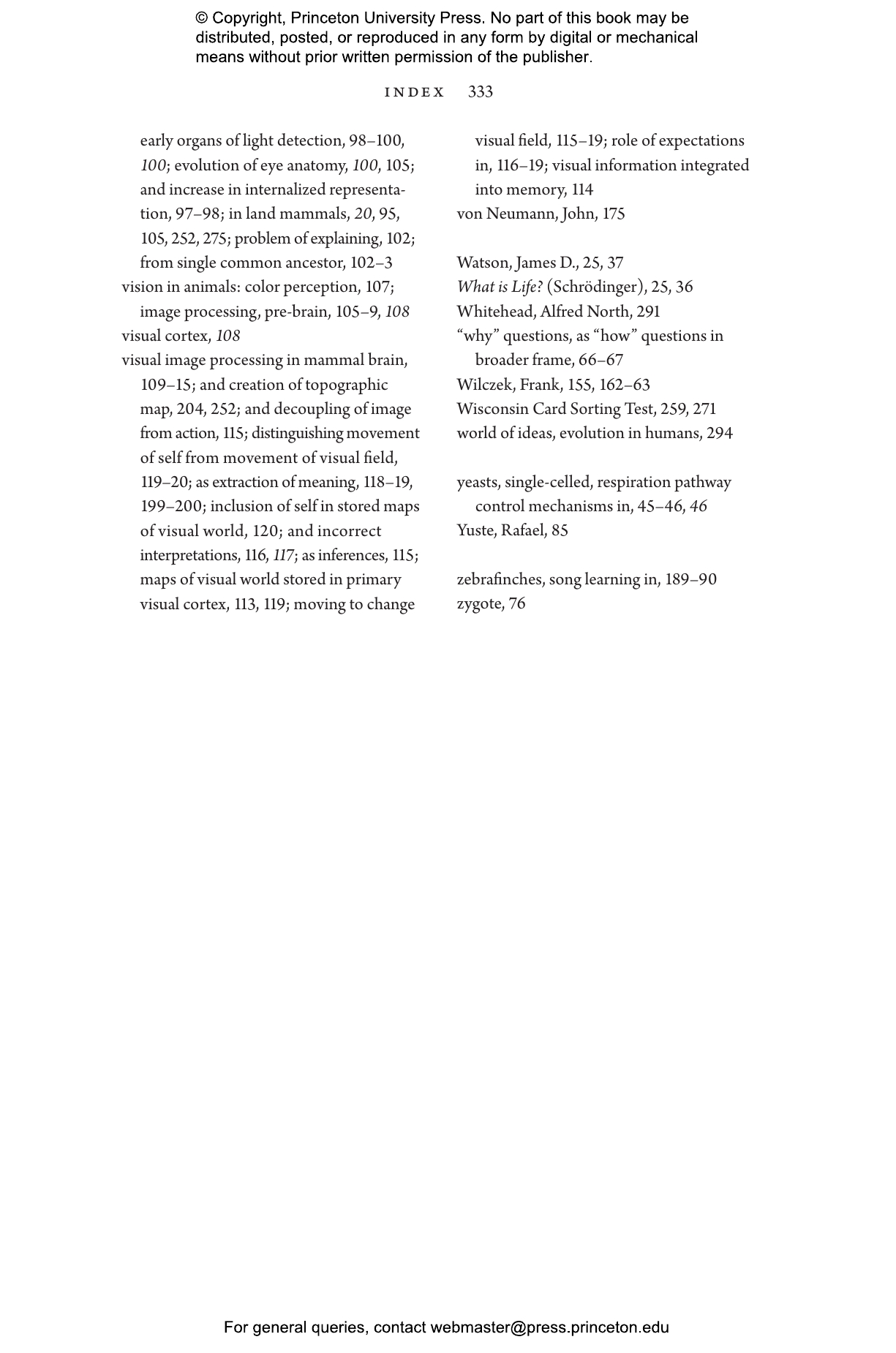Scientists are learning more and more about how brain activity controls behavior and how neural circuits weigh alternatives and initiate actions. As we probe ever deeper into the mechanics of decision making, many conclude that agency—or free will—is an illusion. In Free Agents, leading neuroscientist Kevin Mitchell presents a wealth of evidence to the contrary, arguing that we are not mere machines responding to physical forces but agents acting with purpose.
Traversing billions of years of evolution, Mitchell tells the remarkable story of how living beings capable of choice arose from lifeless matter. He explains how the emergence of nervous systems provided a means to learn about the world, granting sentient animals the capacity to model, predict, and simulate. Mitchell reveals how these faculties reached their peak in humans with our abilities to imagine and to be introspective, to reason in the moment, and to shape our possible futures through the exercise of our individual agency. Mitchell’s argument has important implications—for how we understand decision making, for how our individual agency can be enhanced or infringed, for how we think about collective agency in the face of global crises, and for how we consider the limitations and future of artificial intelligence.
An astonishing journey of discovery, Free Agents offers a new framework for understanding how, across a billion years of Earth history, life evolved the power to choose, and why it matters.
Awards and Recognition
- A New Statesman Best Book of the Academic Presses
"A highly original and very persuasive book. . . . Carefully argued and fair-minded but forceful in its conclusions, Free Agents is interdisciplinary research at its best."—Joe Humphreys, Irish Times
"An eloquent defense of our common-sense understanding of the mind. . . . Excellent."—Andrew Crumey, Wall Street Journal
"[Mitchell] makes a powerful case that history of life, in all its complex grandeur, cannot be appreciated until we understand the evolution of agency—and then, in creatures of sufficient complexity, the evolution of conscious free will. . . . [Free Agents] builds an argument that is methodical and crisp, and it cuts through years of disputation like a knife through cotton candy."—James Gleick, New York Review of Books
"Mitchell’s naturalization of free will shows that it need not be some mysterious non-physical force, but instead a cognitive phenomenon in which all manner of influences . . . are integrated into decisions to act, formulated with varying degrees of conscious awareness (of genuine will, you might say). 'You' don’t generate free will; rather, the mental processes of deliberation are a part of what makes you."—Philip Ball, Times Literary Supplement
"Humans are not, says Kevin Mitchell, the playthings of predestination. Millennia of evolution means that our nervous systems have given us the wherewithal both to imagine and to predict. Mitchell explains how this power came about and why it matters."—New Statesman
"Monumental."—Saleem H. Ali, Forbes
"Provocative."—Publishers Weekly
"A masterly exposition."—George Scialabba, Hedgehog Revew
"Two popular books. . . have breathed new life into the ancient debate over whether we have free will. In Free Agents, Kevin Mitchell argues that we do, and in Determined, Robert Sapolsky argues that we don’t. To be blunt, on the big issue at hand – Mitchell is right and Sapolsky is wrong. . . . [H]ow can the information in our brains come together to form a coherent and causally potent self? Mitchell offers a strikingly lucid evolutionary story of how such a self emerged."—Oliver Waters, Three Quarks Daily
"Mitchell's compelling and absorbing book acts both as a synthesizing primer about evolution and a powerful argument for free will. Its importance and quality are undeniable. A bold, brilliant must-read that should reach a large audience."—Kirkus Reviews, starred review
"Mitchell persuasively develops a more modest conception of free will that entails the evolved ability to make real choices in the service of our goals—that is, to act for our own reasons. This carefully argued, information-dense book will put a dent in any intellectual predilection toward determinism that some readers may have. It certainly did mine."—Ronald Bailey, Reason
"A challenge to neuro-reductionism. . . . As Mitchell explains the growth of agency across 12 penetrating and fluent chapters, they read not like a series of academic lectures but rather a stimulating conversation where a reader’s next question is anticipated and answered."—Peter Sterling, Current Biology
"A sophisticated, scientific response to determinism. . . . [A] provocative and special contribution to the discourse on free will."—Stetson Thacker, Holodoxa
"Ground-breaking. . . . A significant contribution to the free will debate."—Paradigm Explorer
"Mitchell’s retelling of life’s history turns out to be a fascinating exercise with relevance far beyond the free will debate. . . . Free Agents is a tightly argued and compelling case in favour of free will. Mitchell proves himself an able wordsmith who crams profound ideas in short sentences that benefit from reading and unpacking slowly. . . . A spectacular read."—Leon Vlieger, Inquisitive Biologist
"Intriguing."—Choice Reviews
“Not only is this a work of subtle philosophical enquiry and of groundbreaking insight, but it is also an elegantly written book, a work that achieves a rare balance of complexity coupled with clarity. Provocative, enlightening, hope filled, Free Agents deserves to be read and debated.”—Linda Hogan, Professor of Ecumenics, School of Religion, Trinity College Dublin
“Does free will exist or is it an illusion? This captivating book explores the science behind the existence of free will. Writing elegantly about the complexities of this area of research, Mitchell provides a deeper understanding of the concept of free will and its brain basis, and explores the implications for consciousness, moral responsibility, the law, and AI.”—Sarah-Jayne Blakemore, author of Inventing Ourselves: The Secret Life of the Teenage Brain
“Brilliant, powerfully argued, and important, Free Agents shakes up the age-old debate about free will by emphasizing what humans share with all organisms—all forms of life, even the simplest, make choices and have agency. Applying that insight and putting humans in an evolutionary context, Kevin Mitchell’s innovative account is required reading for anyone interested in this fundamental question. Highly recommended!”—Matthew Cobb, author of Life’s Greatest Secret: The Race to Crack the Genetic Code
“At long last, a fresh approach to the free will question that is both sensible and scientifically plausible: no fudging, no hand-waving, no philosophical flimflam. Mitchell brilliantly delivers the goods, drawing on a deep understanding of evolutionary biology, neuroscience, and physics. He has an uncanny knack for rendering a complex story easy to grasp without dumbing things down. A literary gem that is downright fun to read.”—Patricia S. Churchland, author of Conscience: The Origins of Moral Intuition
“Mitchell argues that the dictates of biology and evolution have resulted in a brain intrinsically capable of self-guided action, and he suggests mechanisms that allow and even impose increasing agency on thought and behavior. Sometimes whimsical, always brimming with knowledge, Free Agents is a lively and challenging defense of free will from a neuroscientist’s viewpoint.”—Cori Bargmann, Rockefeller University
“Kevin Mitchell brings clear thinking and scientific rigor to a vital topic that leaves many people confused, caught between the preposterous alternatives that either humans are robots or that every time we make a decision, a miracle occurs.”—Steven Pinker, Johnstone Family Professor of Psychology, Harvard University, and author of How the Mind Works
“If you believe that free will is an illusion, you will change your mind after reading this irresistible book. Mitchell tells the epic story of the evolution of life from its origins to the emergence of purposeful behavior as you have never heard it before. He forcefully counters reductionism and makes a compelling case for agency as the central condition of living beings.”—Uta Frith, coauthor of What Makes Us Social?
